#horse music creators keep winning
Explore tagged Tumblr posts
Text
kept hearing people mentioning the new fortnite emote had music from a hazbin hotel fansong so i had to check for myself and yeah it sure is.
youtube
youtube
#post fresh from the muffin1 bakery#fortnite#hazbin hotel#horse music creators keep winning#but when will we have a true horse song in mainstream media? im waiting for discord to drop on a random thing#congrats on livingtombstone for having a song in fnaf movie and to blackgryph0r for being in fortnite#Youtube
0 notes
Text
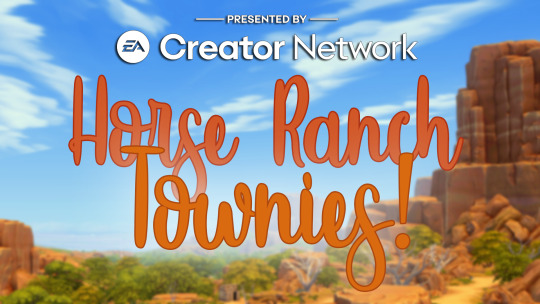
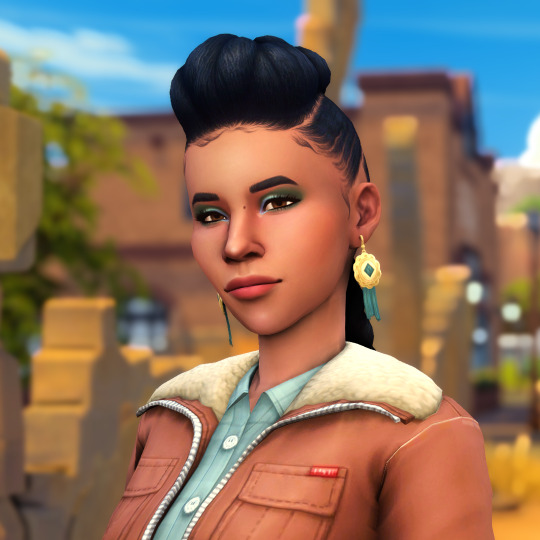
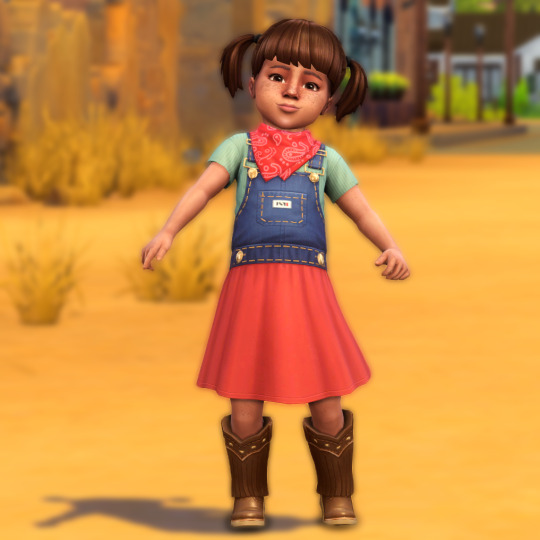
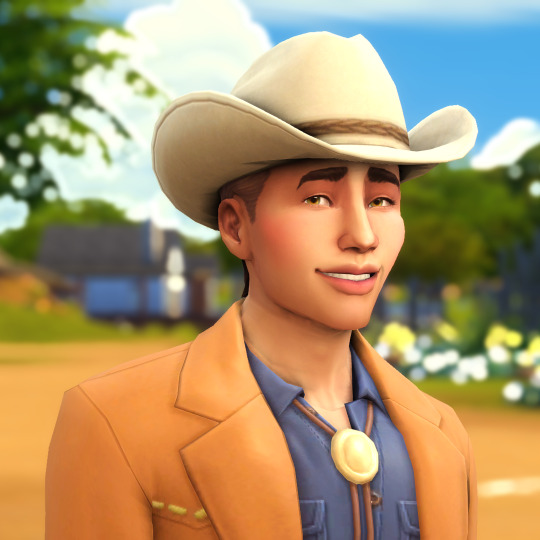

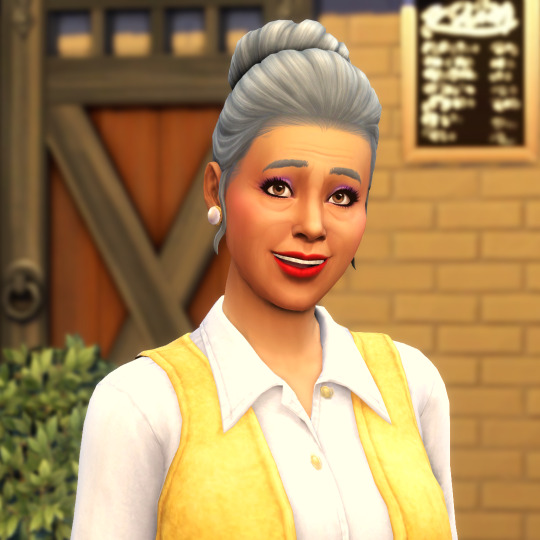


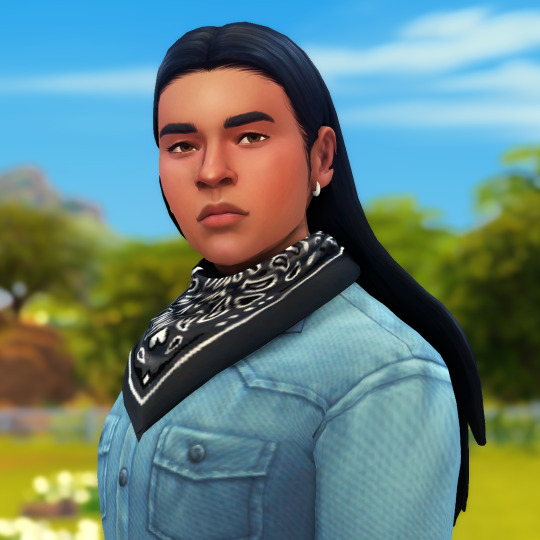
Seven Sims and a Unicorn
Thanks to the EA Creator Network I was able to get the new Sims 4 Horse Ranch Expansion Pack a little earlier and right away got to making a bunch of townies to go with the lore and existing pre-made Sims in Chestnut Ridge.
Below the cut you’ll find:
The Sims Download Link
Sims’ Backstories and Traits
CC Links and Credits
All Sims have all 8 Outfits using only HR and Basegame
Have fun! ♥️ 🦄 ♥️
CC Links: Freckles//Lashes (make sure to download all 3 versions!)
Please Note:
There is CC included in the Download Files, make sure to put it in your Mods Folder along with the CC linked above!
You need a No EA Lashes mod for the Sims to look exactly like they do in the pictures!
The Unicorn has my Default horse eyes, please be aware of this in case you're using other horse Defaults
Credits:@tamosim@vibrantpixels@vegantrait@rheallsim Thank you so much for your generous TOUs! ♥️♥️♥️
DOWNLOAD
Sims' Backstories (from left to right and top to bottom):
Issi Miashintubbee (loves the outdoors/loyal/rancher) Tula Miashintubbee (silly)
Issi comes from a long line of ranch owners and was supposed to take over her parents' ranch and business and get married to the father of her daughter Tula. To her family's shock and surprise one day she decided she was tired of everyone's expectations and the path already decided for her and packed her stuff and set off with Tula into the unknown to find out what it is that she really wants. Will she find her fortune in Chestnut Ridge? And what does Tula think of all this?
River Dempsey (loves the outdoors/perfectionist/horse lover) Milla Dempsey (bookworm)
River, widowed and possibly looking for love, is a passionate horse breeder and father who would like nothing more than to impart said passion for riding and horses on his daughter Milla. After all, there are competitions coming up! To his great disappointment Milla is all about books and hopes to one day become a published author. It's not that she doesn't like horses but she would much rather think up stories and spend her free time browsing the library.
Yona Kitegista (cheerful/outgoing/foodie)
Yona has run the Oak Barrel Bar as long as anyone can remember and she takes great pride in making the most popular nectar in town. If only there weren't those two youngsters, Marissa and Dani, who seem to have quite the touch at making new and exiting flavors of nectar. Her old friend and childhood sweetheart Don Gooseman is convinced hers is the best around but Yona isn't sure she won't have to change up her longstanding recipe to keep up with the competition!
Jaxen Tracey (creative/music lover)
Jaxen is Marissa's brother and the newest addition to the household, although Dani isn't too sure what to think of this, since things have been a little tense between her and Marissa lately. And now Jaxen is here, playing that music of his rather loudly! Marissa and Dani can tell that he is quite talented but his electro beats are a bit of a sore thumb among the blues lovers of Chestnut Ridge. All the while, Jaxen isn't so sure either what to make of his new surroundings. Will he eventually don the country fashion, get on that horse and become a blues lover?
Arabella von Rosenberg (intelligent/brave/friendly) Charley Bullhorn (rancher/romantic/familyoriented)
Why does Charley have a pink, sparkling unicorn, you wonder? No one knows, but he sure is proud of his beautiful, prize-winning Arabella. The two have travelled all over the country from shows to competitions but now Charley feels like it's time to settle down and find a permanent place to stay. Some may think he's a bit of a ladies man but actually he's a bit shy and secretly wants to have a big family. Can charming Arabella help him find the love of his life? And maybe Arabella too might find a new equestrian friend?
275 notes
·
View notes
Text
Amy Lee on the moment Evanescence shockingly beat 50 Cent to the Best New Artist Grammy in 2004: "I had my shoes off when they called our name"
Amy Lee has discussed the famous moment Evanescence shocked the world by beating 50 Cent to 2004's Best New Artist Grammy
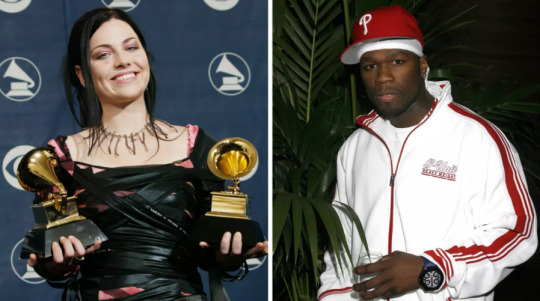
Evanescence singer Amy Lee has discussed the legendary moment the band beat hot favourite 50 Cent to the Best New Artist award at the 2004 Grammys, in one of the category's biggest ever upsets. Rapper 50, who had released his chart-smashing debut album Get Rich Or Die Tryin' the year prior, was widely favoured to win the award.
On the night of the ceremony, however, which took place on February 8 at the Staples Center in Los Angeles, Evanescence beat out 50 (real name Curtis Jackson), as well as fellow nominees Fountains Of Wayne, Heather Headley and Sean Paul.
“I was pretty sure that we weren’t going to win, at least not Best New Artist," Lee explains in an exclusive interview in the new issue of Metal Hammer, out this Thursday. "I thought for sure that would be 50 Cent. We were 100% the dark horse. I felt like, 'People don’t know who I am'...I’m a 21-, 22-year-old kid, trying to dress up like a grown-up and I had my shoes off when they called our name. I don’t normally wear heels. They’re very uncomfortable.”
Elsewhere in the interview, Lee talks about the challenges Evanescence faced in their early days.
“The fight for credibility was the most frustrating in the beginning," she notes. "It was the mentality of labels to tell, especially newer artists, that they need to have writers. I fought for way too long after the success of [2003 debut album] Fallen to say I can write my own music. I constantly had to fight off men that were like, ‘No, you want me to do it? You want this guy to do it? You want my friend to do it?’ And the reason that they wanted them to do it was because that’s where the money was. That’s where the power was. Everybody else wanted to be able to say they did that when I did that. It took a long time to get respect for being a creator and not just the frontwoman, the pretty face standing in front of the guys doing the real work.”
“Some of it was surreal. Concerts went from clubs to arenas in a couple of months," she says of the band's unbelievable rise to fame "There was a lot to be excited about, but there was a lot of hard stuff going on in the background. Not just drama about what we were doing, but also my brother [Robby, who died in 2018 following complications with epilepsy] was sick, and it was a scary time to be out on my own. And I did, in a lot of ways at that time, feel alone.”
Evanescence walked away with two Grammys at the 2004 awards, also bagging the win in the Best Rock Performance category. You can read the full version of Amy Lee's interview only in the next issue of Metal Hammer. Keep an eye on Magazines Direct(opens in new tab) for access to a limited amount of online copies when it goes on sale on Thursday (April 27).
17 notes
·
View notes
Text
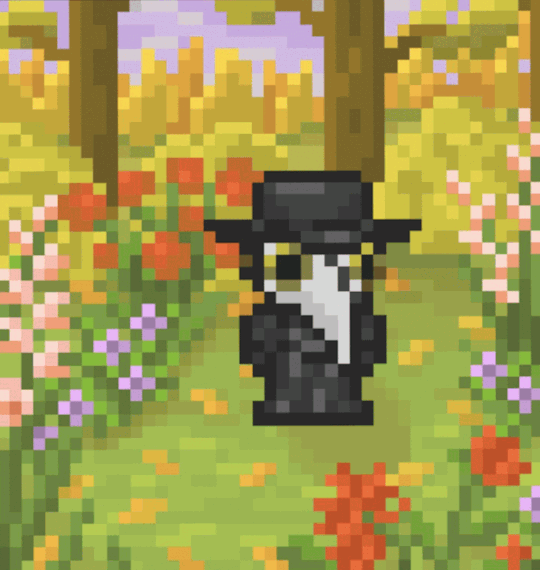
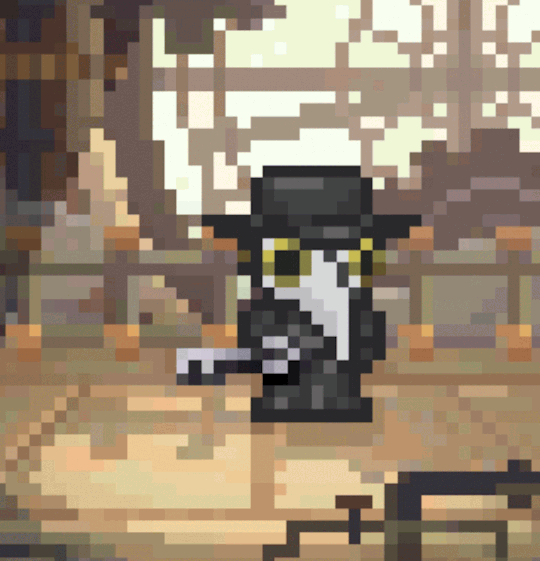
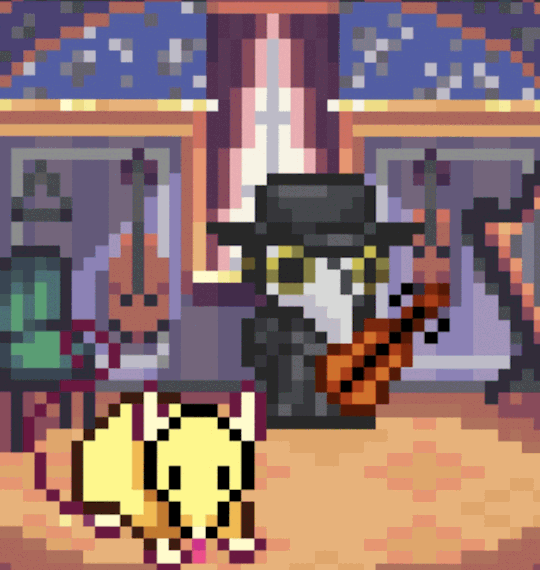
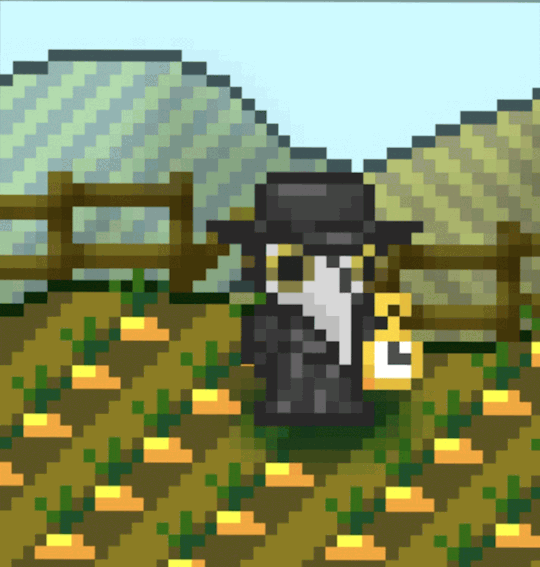
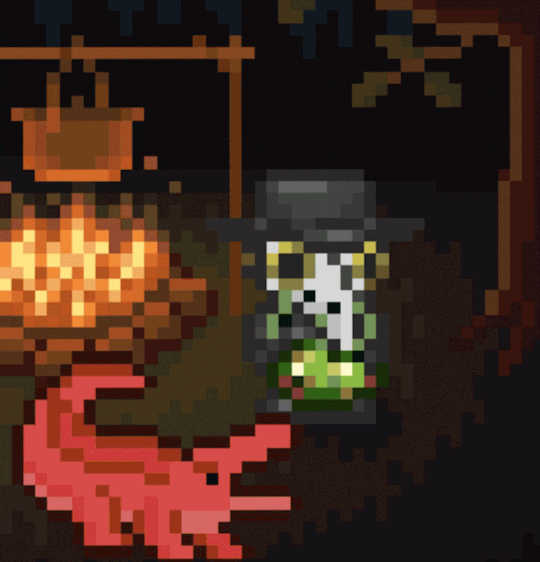
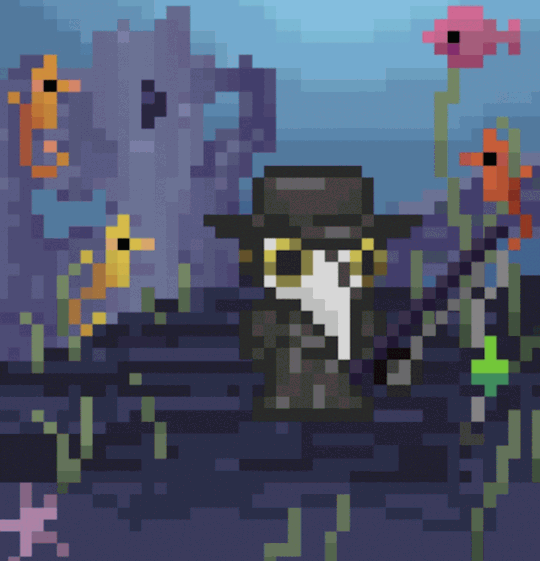
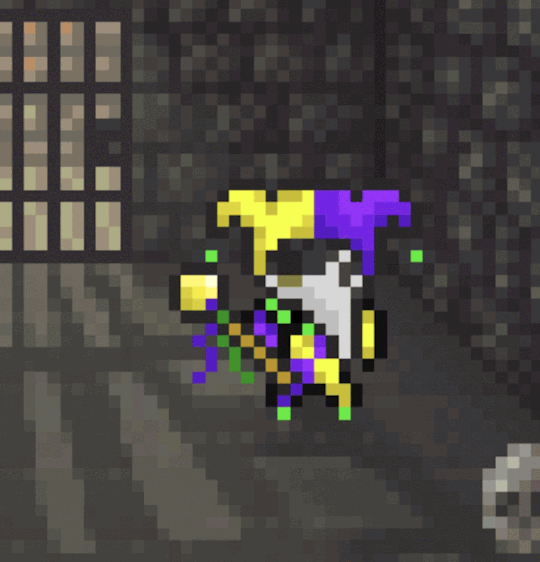
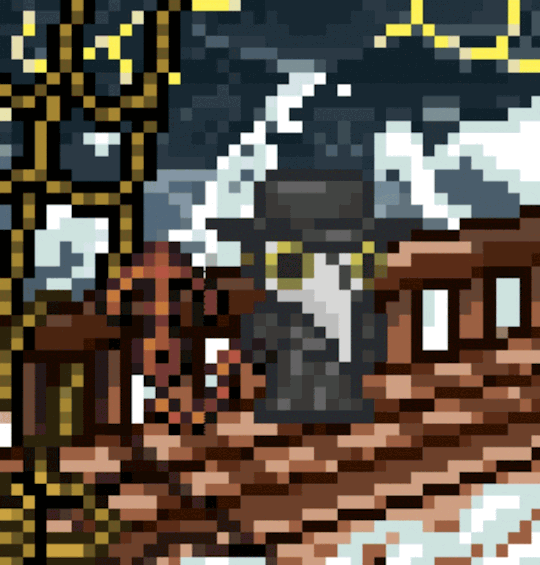
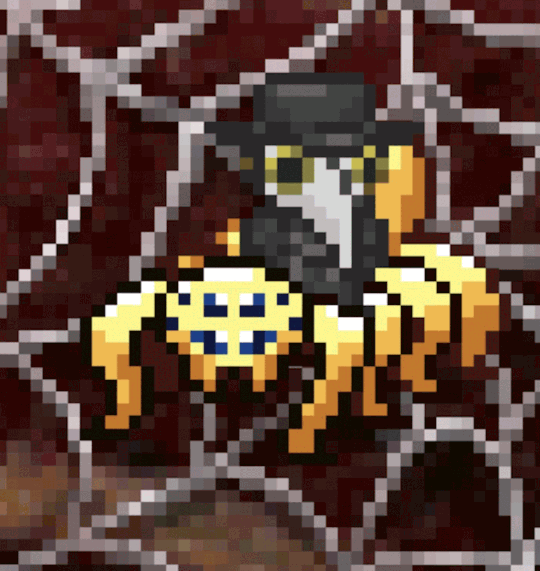
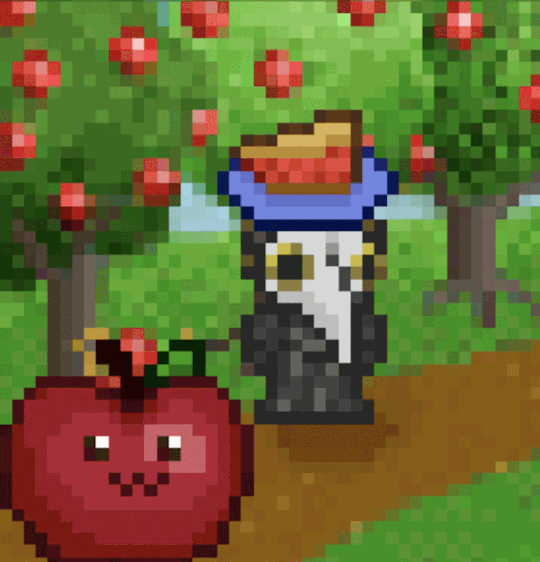
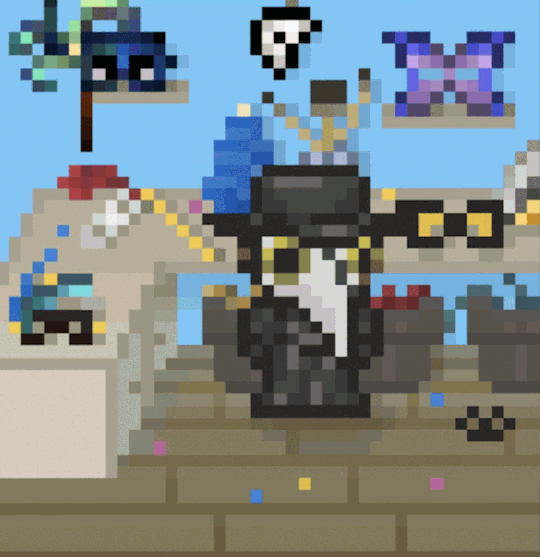
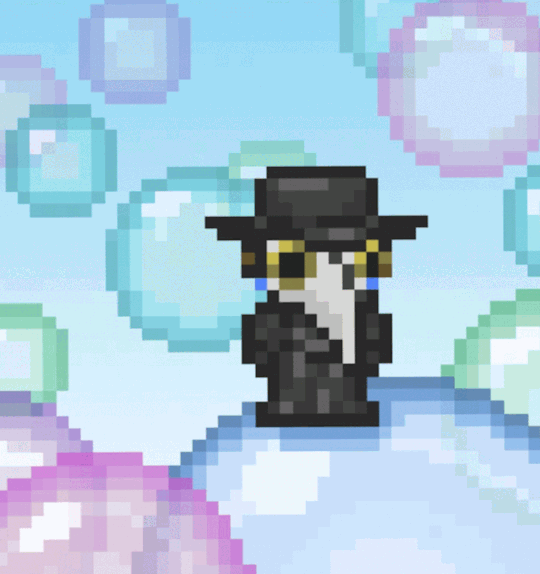
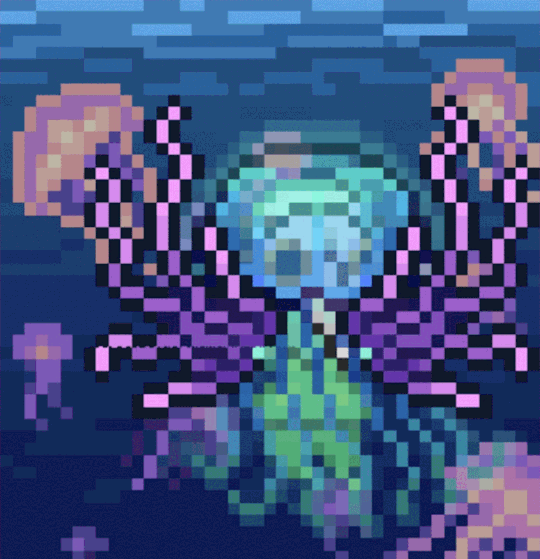
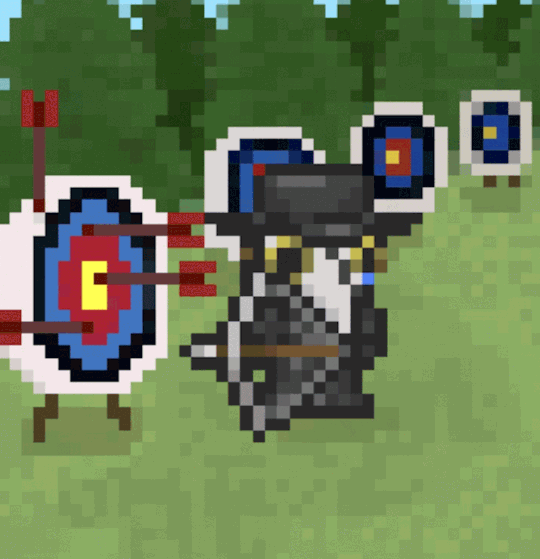
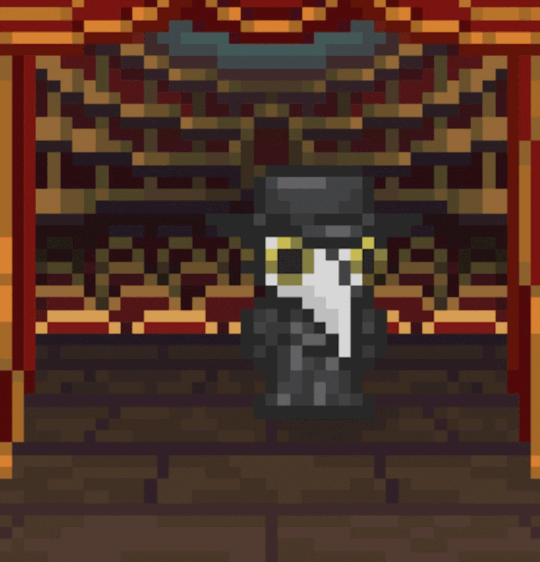
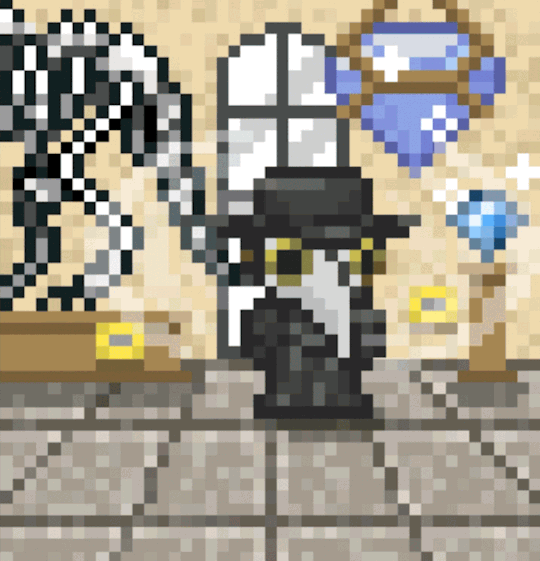
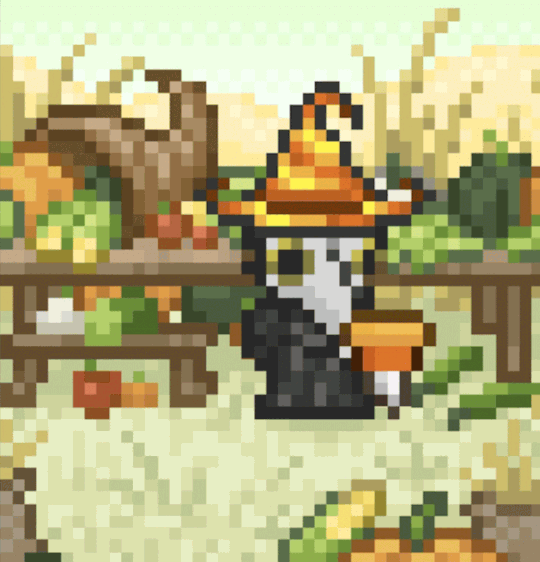
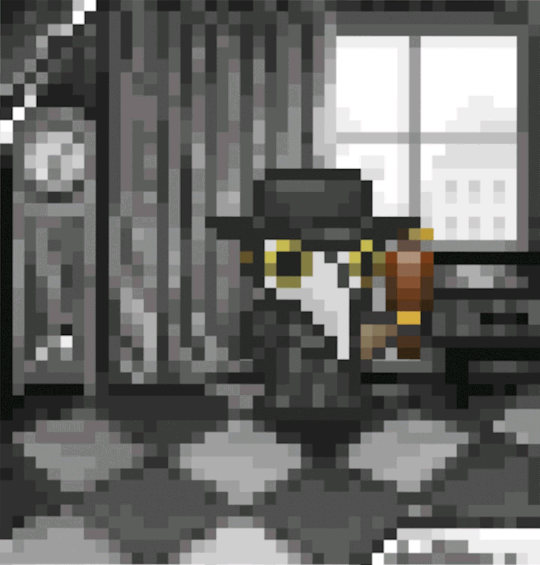
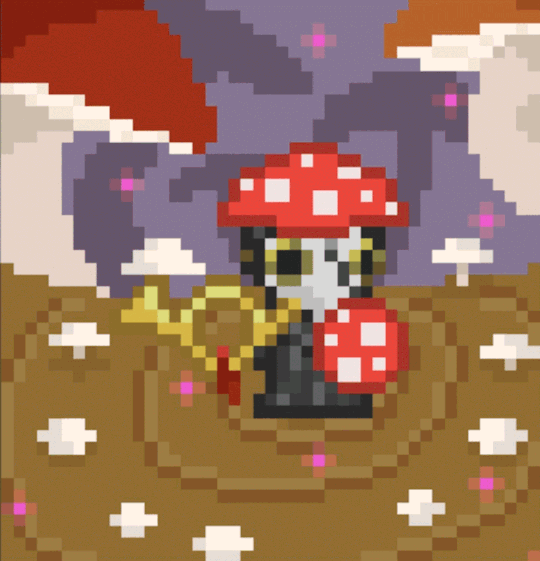
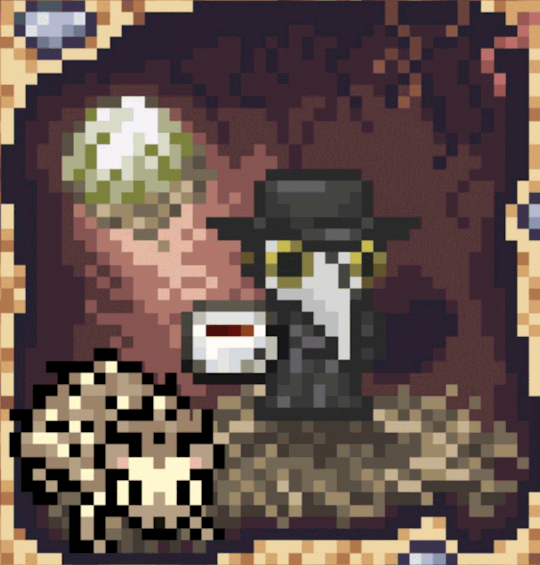
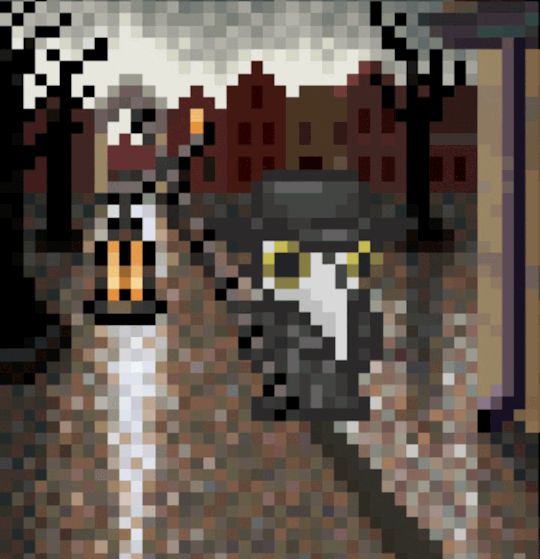
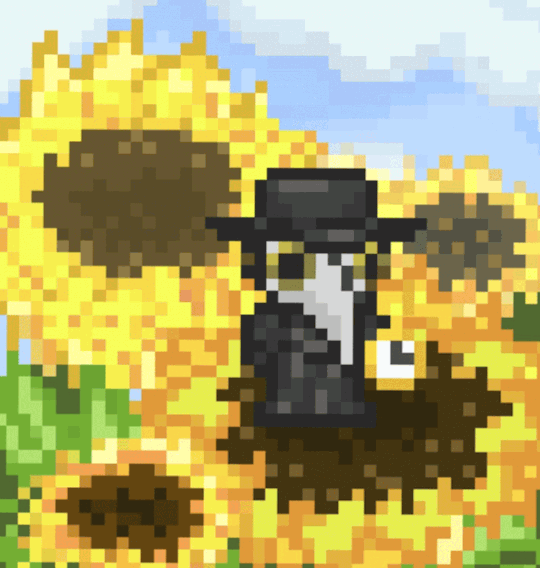
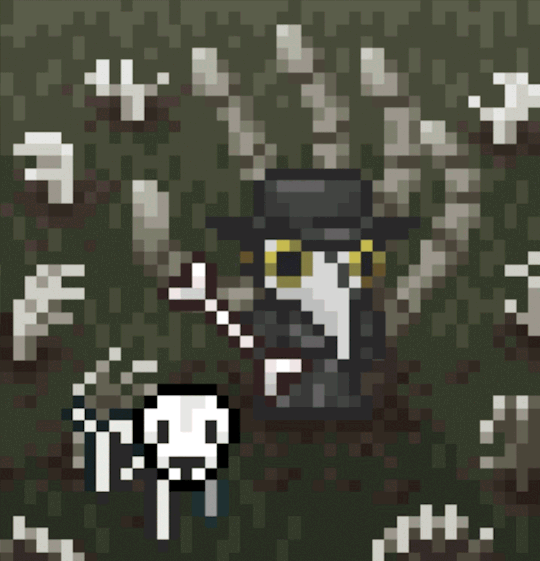
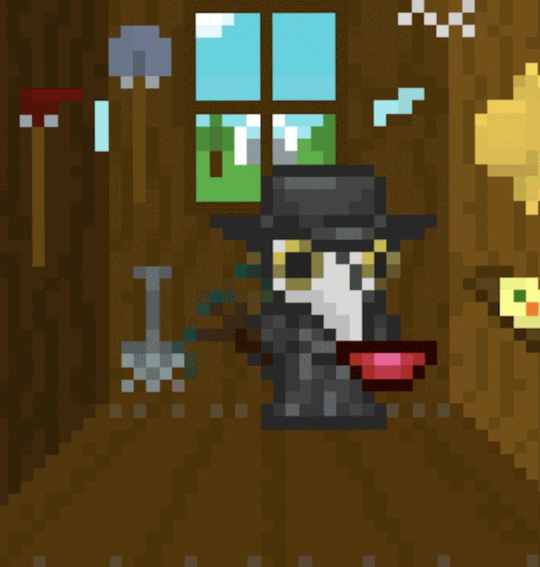
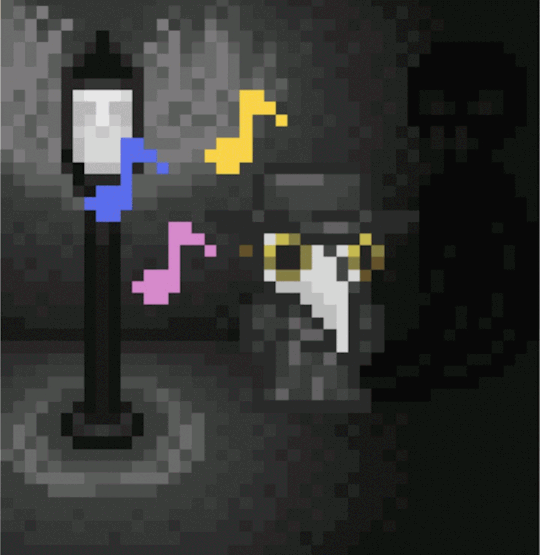
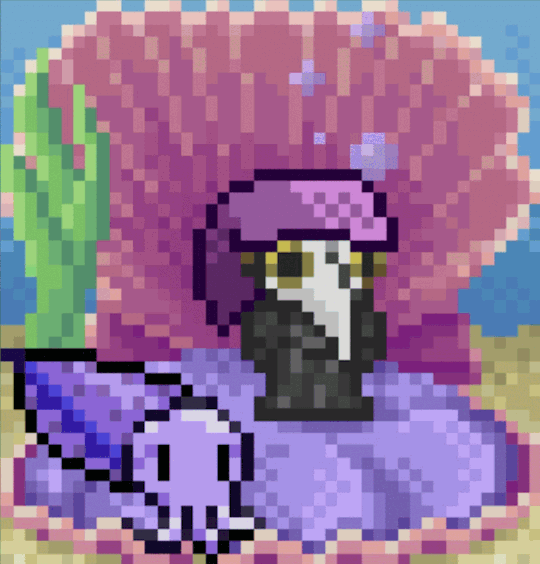
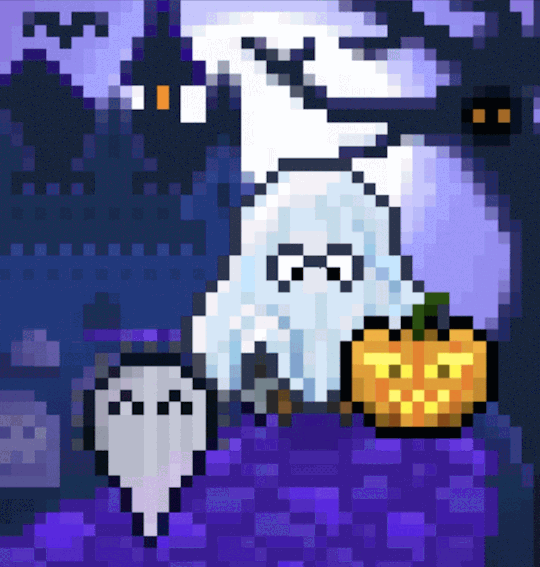
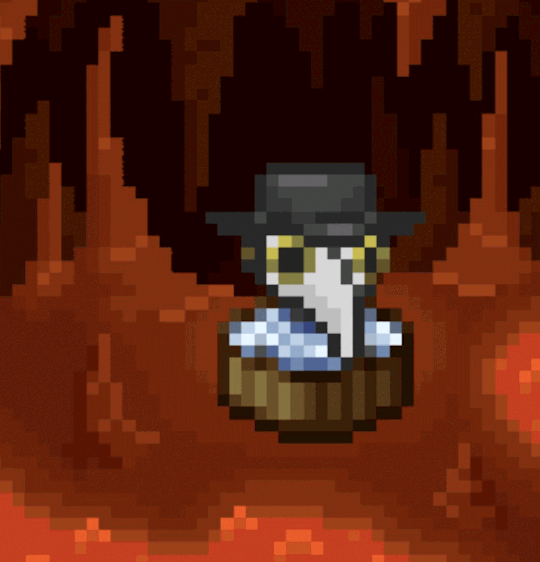
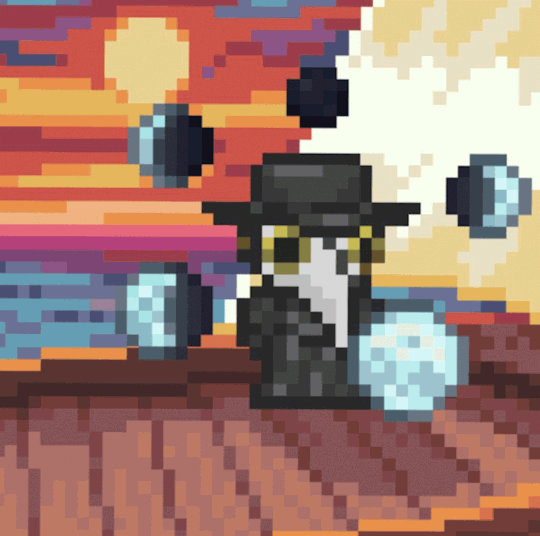
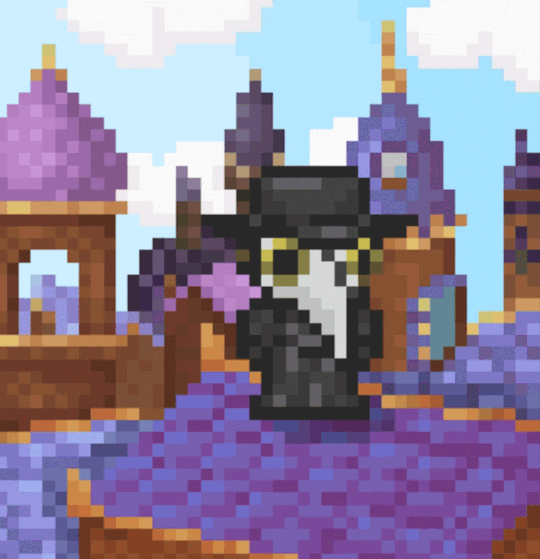
Plaguetober 2022 GIF roundup! Final GIF can be found here. (Have to link due to Tumblr image number restriction). Prompt list by the extremely excellent @plaguefairy. Captions below the readmore. (All credit to the original pixel art asset creators over at @habitica.)
Plaguetober Day 1: Garden -- Nothing could exceed the intentness with which this scientific gardener examined every shrub which grew in his path: it seemed as if he was looking into their inmost nature, making observations in regard to their creative essence, and discovering why one leaf grew in this shape and another in that, and wherefore such and such flowers differed among themselves in hue and perfume. Plaguetober Day 2: Key -- Dr Athanasius considered himself an unofficial steward of the old mechanism, though it involved a considerable climb, requiring much stealth, ever since he first obtained the key. Plaguetober Day 3: Familiar -- Whenever Dr Athanasius took up any of his instruments, Her Abdicated Former Majesty the Erstwhile Queen of Sweden (Erstwhile for short) was always sure to come running. Plaguetober Day 4: Clover -- This is number eight, and the doctor’s at the gate… Plaguetober Day 5: Rotten -- It might smell terrible to you, but it’s undeath-sustaining ambrosia to my hungry little friend here.
Plaguetober Day 6: Find -- After a bit of tricky fishing, he finally found it: The elusive Bone White Hippocamp! Her playful sea-horse woos her soft commands/Turns his quick ears, his webbed claws expands/His watery way with waving volutes wins/Or listening librates on unmoving fins. Plaguetober Day 7: Jester -- In prison cell and dungeon vile/Our thoughts to them are winging. When friends by shame are undefiled/How can I keep from singing? Plaguetober Day 8: Knot -- Now dash’d upon the billow/Our op'ning timbers creak/Each fears a wat'ry pillow/None stop the dreadful leak/To cling to slipp'ry shrouds/Each breathless seaman crowds/As she lay/Till the day/In the Bay of Biscay, O! Plaguetober Day 9: Conundrum -- When one finds oneself in a sticky situation, it can sometimes be advisable to transform one’s foe from an adversary to a steed. Plaguetober Day 10: Pie -- The venomous apples of the outer peninsula required some careful handling, but their flavor was truly beyond compare.
Plaguetober Day 11: Reveal -- I draw down/The open eye/That helped me see/Through the disguise. What’s concealed/Becomes revealed/And I am free.
Plaguetober Day 12: Circle -- Omnia nodis arcanis connexa quiescunt.
Plaguetober Day 13: Everlasting -- If the T. dohrnii jellyfish is exposed to environmental stress, physical assault, or is sick or old, it can revert to the polyp stage, forming a new polyp colony. It does this through the cell development process of transdifferentiation, which alters the differentiated state of the cells and transforms them into new types of cells. Theoretically, this process can go on indefinitely, effectively rendering the jellyfish biologically immortal.
Plaguetober Day 14: Impale -- In retrospect, perhaps Dr Athanasius should have ascertained that the range was clear before attempting to collect his arrows. Plaguetober Day 15: Play -- Govern these ventages with your fingers and thumb, give it breath with your mouth, and it will discourse most eloquent music. Plaguetober Day 16: Reminiscing -- Dr Athanasius in the Musaeum Kircherianum in Collegio Romano, the place of his creation, depicted next to the innermost segment of the speaking trumpet from which he had been lately disconnected. Plaguetober Day 17: Maize -- Dr Athanasius suddenly realized that he had gone all-in on precisely the wrong sort of corn for the Autumn Festival and strove quickly to obliterate the evidence of his faux pas. Plaguetober Day 18: Crime -- The cheaper the crook, the gaudier the patter. Plaguetober Day 19: Jovial -- Fly agaric didn’t tend to have quite the same effect on Dr Athanasius as it had on others of his acquaintance, but he enjoyed the occasional nibble just the same. Plaguetober Day 20: Awaken -- I was only wakened when I had reached the last light sleep which dissolves of itself, and it must have been very light, for it was an almost inaudible whistling noise that wakened me. Plaguetober Day 21: Chatter -- Ordinarily, Dr Athanasius thought of himself as a sort of elevated flaneur, creeping along the rooftops of the city, the chatter and hum of its citizens in his ears. But occasionally he walks the streets themselves, on those rare wet nights when the city is quite, quite empty and quite, quite still. Plaguetober Day 22: Lost -- Try as he might, Dr Athanasius could not reconstruct the plans for his Father’s sunflower clock. The secret to its mechanism seemed to have been forevermore lost. Plaguetober Day 23: Greet -- Dr Athanasius’s reanimated lion adored taking walkies in the Lichgate of the Belimbed, because there he always found a friendly hand to greet him, pat him, throw his bone, and offer him skeletal scritches. Plaguetober Day 24: Cobweb -- Once his friends the cobs were done with them, Dr Athanasius collected their webs for use in his armamentarium. They were particularly useful for staunching excessive bloodflow. Plaguetober Day 25: Melancholy -- Whenever Dr Athanasius felt a bit down, he pulled out his trusty copy of D'Urfey’s Pills to Purge Melancholy, and his heart was immediately lighter. Plaguetober Day 26: Rest -- You wouldn’t think a 17th Century automaton would dream, but you probably wouldn’t think a candle would stay lit in a giant clamshell either. Plaguetober Day 27: Sheet -- That old sheet that Dr Athanasius had stumbled across turned out to have some unexpected properties. Plaguetober Day 28: Cabinet -- Dr Athanasius inherited several things from his Father’s renowned Cabinet of Curiosities, among them the Ira Dei Dragon Balloon and the (slightly singed) Vesuvius Basket. Plaguetober Day 29: Embark -- Fortified by a draft of Cosmiel’s celestial liquor, Dr Athanasius prepares to essay the heavens. Plaguetober Day 30: Music -- Since his disconnection from his speaking trumpet, Dr Athanasius has lacked the power of speech, but from his perch atop the ramparts of the city, he strives always to embody the principles of the Musurgia Universalis. Plaguetober Day 31: Goodnight -- And so the Dr Athanasius who lives in dreams – perhaps only in dreams; perhaps not – bids farewell to him that has harbored him.
#plaguetober2022#plaguetober#plaguefairy#habitica#8-bit paper dolls#dr athanasius#kircher's automaton#plague doctor#plaguecore#plaguesona#plague doctor mask#kircher's automaton dreams 8-bit dreams
31 notes
·
View notes
Text
Bill Longbow Creator Post
(Auctions #1038, #1039)
Creator’s previous works: Here!
Link to GDrive Folder of WIP Summaries/HCs/Plot Bunnies Creator is Offering: Here!
you can contact the Creator before bidding at:
email: [email protected]
Likes: Just about anything. Got a soft spot for 1940 AUs, small Steve, mechanic Tony doing mechanic things, fantasy AUs and all AUs. Canon wise I've gotten no further than 2012 happy Avengers family, and Jarvis always lives!
Do Not Wants: Humiliation, scat, watersports. Woobyfying, major character death, reader insert, second person pov, character bashing.
Preferred Charities of the Creator: Any
Full Charities List
___
Auction #1
Type of fanwork: fanfiction
Fandom: Marvel: MCU
Pairing(s): Stuckony or any of its sub pairings
Character(s): Steve Rogers, Bucky Barnes, Tony Stark
Rating: Up to Explicit
WIPs/Prompts: Bucky's first heat Fandom: MCU Pairing: Tony/Bucky Rating: G or T Warnings: a/b/o verse Summary: Tony in his lab working, music loud. Suddenly there's the ws trying and doing a good job of breaking his non breakable glass wall, and Tony thinks he's about to die and dons the gauntlet he's working on. Turns out Bucky's in heat. Sad bottom accidental subbing steve armour porn Fandom: MCU Pairing: Steve/Tony Rating: E Summary: rewriting of Avengers 1 where the stand off between Tony and Steve on the helicarrier leads to angry armour porn Stranger danger Fandom: MCU Pairing: stucky into stuckony Rating: E Warnings: none Summary: Stucky invite Tony into their relationship for a one night stand but then keep running into him Camboy verse, any prompt Fandom: Mcu Pairing: Steve/Steve/Tony/Bucky or any subpairing Summary: any prompt Link: https://archiveofourown.org/series/1704391 Cyber superhusbands Fandom: MCU Pairing: Steve/Tony/Jarvis Rating: unclear yet, depends on the prompt Summary: Jarvis starts hugging Tony, and later Steve too when he confides how sad he is Just one kiss, part 2 Fandom: MCU Pairing: Steve/Tony Rating: any Summary: "I wouldn't go there if I were you," came a voice from the shadows. He startled but tried to not let it show. "With all due respect, that's none of your business," Steve countered, glancing to the side where the voice came from, while trying to keep an eye on the mouth of the alley as well. It was the shortest route to his nana’s house. It was also strictly forbidden to travel the dark alleys by himself. A little red riding hood AU To infinity and beyond Fandom: MCU Pairing: Tony/Bucky Rating: M or E Summary: Tony has the worst night of the year. Standing alone on the porch of the costume party in his self made Buzz Lightyear suit he's feeling very sorry for himself, but then Bucky arrives and turns his life upside down. If you can't say no, (but do) part two. Fandom: MCU Pairing: Stuckony Rating: E Warnings: part one was explicit non con with a very dubious consent inner monologue, second part will be less none and more dubious probably Summary part 1: Tony has to abandon his car in the woods at night, because there might've been a tiny car accident, due to maybe, possibly falling asleep at the wheel for a bit. Luckily, he stumbles upon a house where the owner is more than willing to see to Tony's every need. Including those dark fantasies Tony sometimes enjoys in the privacy of his own head.
Starting Bid: $15
Creator Notes: Short fic, somewhere between 3 and 10 k.
Current Bid Spreadsheet: Here.
Please check what the current bid is at before bidding.
Bids might take a few minutes to load.
Bidding ends on November 28th 11:59:00pm CST. The highest bid before that deadline will win the auction.
Bidding Form: Here.
Please check the Bid Spreadsheet and bid higher than the previous bid.
You will not be notified if you have been outbid. Only the winner will be notified after bidding ends.
___
Auction #2
Type of fanwork: fanfiction
Fandom: Marvel: MCU
Pairing(s): Stuckony or any of its sub pairings
Character(s): Steve Rogers, Bucky Barnes, Tony Stark
Rating: Up to Explicit
WIPs/Prompts: Warlord Steve Fandom: MCU Pairing: Steve/Tony, Rating: E Warnings: torture, attempted non con Summary: Tony gets taken as a tribute to horse warlord tiny Steve High stakes Fandom: MCU Pairing: Tony/Bucky Rating: probably E Warnings: a/b/o verse, ownership of people, probably dub con Summary: Bucky won Tony in a poker match, but forgets about it in the trenches. Back from the war he's down one arm, unemployed and depressed, and suddenly finds he has an apartment plus inhabitant. Inspired by the Barnes General motors fic, but then with heaps of angst and h/c Never again is what you swore (sad dad Bucky sad doc Tony) Rating: MCU Pairing: Tony/Bucky Rating: M or E Summary: Tony's been a pediatrician long enough to know he shouldn't get attached to the patients, it's unprofessional and too much heart ache lies that way. But there's just something about Steve's father that makes him want to stay near. Pollen cheating fic Fandom: MCU Pairing: Steve/Bucky, Steve/Tony, Endgame Stuckony Rating: E Warnings: cheating Summary: when Tony is away on a business trip Steve comes under the influence of a sex pollen and seduces Bucky. Steve comes clean when Tony comes back. Angst, guilt and hurt ensues, before they all get together somehow. I'm still hazy on that part...
Starting Bid: $20
Creator Notes: Longer fic. Starting with 10k up to who knows, probably up till max 25k depending on the prompt
Current Bid Spreadsheet: Here.
Please check what the current bid is at before bidding.
Bids might take a few minutes to load.
Bidding ends on November 28th 11:59:00pm CST. The highest bid before that deadline will win the auction.
Bidding Form: Here.
Please check the Bid Spreadsheet and bid higher than the previous bid.
You will not be notified if you have been outbid. Only the winner will be notified after bidding ends.
#Bill Longbow#marvel#mcu#stuckony#stony#stucky#winteriron#bucky barnes#steve rogers#tony stark#fanfiction#charity auction#fandom event#wtf philippines relief#WTF creator post#1038#1039
9 notes
·
View notes
Text
30 REASONS WHY THE LAMBS ARE STILL SCREAMING!!!
- Celebrating 30 years of The Silence of the Lambs Movie -
The Silence of the Lambs is a pop culture phenomenon, who’s influence is still being felt today. It is considered one of the best horror/terror/thriller movies of all time!
Released in 1991 on February 14th, The Silence of the Lambs evoked a blood curdling Valentine’s Day scream!
Happy Valentine’s Day
1991-2021
Author – Harris worked the cop beat for a Texas newspaper and had an interest in the macabre, often freelancing for Men’s Magazines (Argosy, True), writing about some of the most gruesome stories.
1. Thomas Harris – As the author of The Silence of the Lambs and creator of Hannibal Lecter, none of this would be possible without Harris. He’s an impeccable researcher, studying the cases of the most notorious serial killers at the time. Harris was seen at parts of Ted Bundy’s Chi Omega trial taking notes.
Actors
2. Jodie Foster – Foster’s portrayal of rookie FBI in training agent Clarice Starling, is a spot on performance. Foster shows Starling’s vulnerability and how her abandonment issues and need to advance in the FBI, bring her under Lecter’s spell.
3. Anthony Hopkins – Hopkins portrayal of Hannibal Lecter left an indelible mark that still haunts us 30 years later. Thomas Harris wrote Lecter...Hopkins brought him to life. The duality of Lecter, which Hopkins plays to perfection, leads you into a false sense of security...that perhaps he’s not that bad...until he lets loose on the police officers during his escape from custody.
4. Scott Glenn – Glenn plays the head of the Behavioural Science Unit at Quantico, Jack Crawford aka the Guru by his agents. Crawford uses his father like status to entice Starling to interview Lecter thus hopefully gaining access, which Lecter had denied other agents.
5. Ted Levine – Levine‘s portrayal of Buffalo Bill has a creep factor that is impossible to put out of your mind, especially when the song Goodbye Horses by Q Lazzarus plays...and he dances...
6. Anthony Heald – Heald’s portrayal of Dr. Frederick Chilton oozes contempt and arrogance, which doesn’t make you feel a bit sorry him when he becomes Lecter’s meal.
7. Brooke Smith – The all American girl who’s kidnapped by Buffalo Bill and held in a pit for the harvesting of her skin. Catherine Martin is a clever one though and hatches a plan to escape using Precious the dog as a hostage.
8. Frankie Faison – The only actor to appear in 4 of the 5 Hannibal Lecter movies. Barney Matthews survives Lecter with his politeness as Lecter abhors rudeness. Lecter believes whenever feasible, one should eat the rude.
Art/Symbols/Theme
9. Basements – The basement is an underlying theme in The Silence of the Lambs: The BSU of the FBI work out of the basement at Quantico; Hannibal Lecter is kept in the basement of the Baltimore State Hospital for the Criminally Insane and Buffalo Bill’s sanctuary is the basement of the former Mrs. Lippman's house.
10. Death Head Hawk Moth/Transformation – The theme throughout The Silence of the Lambs is transformation. The Moth represents Buffalo Bill’s transformation from a pupae/chrysalis/cocoon into a beautiful butterfly.
11. Salvador Dali/Philippe Halsman – In Voluptas Mors/Voluptuous Death (1951), the most scandalous photo of it’s time was the brainchild of Dali and Halsman. Dali arranged seven naked women into a macabre skull. This skull is used as the marking for the Death Head Hawk Moth on the poster for The Silence of the Lambs, which has become synonymous with the movie.
12. Cannibalism – Lecter doesn’t keep trophies in the usual sense, he eats his victims ensuring they will be part of him forever and leaving no evidence behind.
13. Sketches – Hannibal Lecter is a gifted artist and uses his talent to escape the confining basement walls of The Baltimore State Hospital with sketches of the Palazzo Vecchio and the Duomo as seen from the Belvedere in Florence.
14. Music – Hannibal Lecter has an appreciation for the finer things in life like classical music in particular Goldberg’s Variations Aria. Catherine Martin rocks out to Tom Petty’s American Girl and Buffalo Bill dances to Goodbye Horses by Q Lazzarus.
Behavioural Science Unit – It was a new age of criminal behaviour which needed a new type of agent...a profiler.
15. FBI – The Federal Bureau Of Investigation was formed to combat the criminal Mob element by J. Edgar Hoover. It was only upon Hoover’s death that the FBI started exploring other avenues to catch a new type of killer, the serial killer. After Hoover’s death the FBI would start to hire female agents, which would spur Harris to write a story about an up and coming female agent in training.
16. John E. Douglas – Douglas is the real Jack Crawford, an agent who helped in the development of Behavioural Sciences to catch the newly ordained serial killer. Douglas was a consultant for The Silence of the Lambs movie and is an author of many serial killer/profiling books.
17. Robert Ressler – Crawford is also based on Ressler who was in charge of developing the BSU and was instrumental in the creation of profiling serial killers by interviewing them behind bars. Ressler is responsible for writing some of the best profiling books.
Production
18. Jonathan Demme – It’s Demme’s vision as Director of The Silence of the Lambs which is the magic that has cemented The Silence of the Lambs in the minds of all who watch and re-watch and re-watch...
19. Orion Pictures – The little studio that took a big chance. Unfortunately The Silence of the Lambs wouldn’t save Orion from bankruptcy and they’d be bought out by MGM, who would acquire their movie catalogue.
20. Ted Tally – The man who would turn Harris’ novel into a great screenplay, hitting all the major marks. Tally would pass on the Hannibal screenplay; being lured back for the Red Dragon screenplay.
21. Dino De Laurentiis – If not for De Laurentiis passing on the movie rights to Harris’ novel, The Silence of the Lambs, after the bad box office return of Manhunter, and for allowing Demme to use Hannibal Lecter, we wouldn’t even be discussing this 30 years later.
Quotes – The Silence of the Lambs gave us a few extremely recognizable quotes!
22. Chianti and Fava Beans – “I ate his liver with some fava beans and a nice Chianti.”
- Hannibal Lecter
23. Lotion – “It rubs the lotion on it’s skin or else it gets the hose again.”
- Buffalo Bill
24. Friendship – “I’m having an old friend for dinner.”
- Hannibal Lecter
Serial Killers – Harris based Lecter and Buffalo Bill on some very real killers...
25. Ed Gein – Buffalo Bill is part Gein for without the crimes of Ed Gein, Buffalo Bill wouldn’t exist. It was Gein’s skinning of corpses and his two murder victims that would inspire Buffalo Bill...
26. Gary Heideck – If Buffalo Bill is part Gein, he’s also part Heideck, who’d kidnap women and then tortured them in a pit in his basement.
27. Ted Bundy – Buffalo is also part Ted Bundy, who would lure his victims with injuries like an arm in a cast; he would seem vulnerable seeking help with books or a canoe and in Buffalo Bill’s case a chair.
28. Ed Kemper – What do Hannibal Lecter and Ed Kemper have in common? A high IQ., a fondness of co-eds and a love of cars.
29. Alfredo Balli Trevino – Harris met Trevino in a Mexican prison, mistaking him for a doctor who worked in the prison; Trevino was actually an inmate working in the prison.
Trevino was convicted of murdering then dismembering his lover. It was this encounter that would set the tone for Lecter.
30. Alonzo Robinson – Lecter has been compared to many serial killers over the decades, many of who’s crimes are too late to be included in The Silence of the Lambs novel (1988). It was most likely the story of Alonzo Robinson/James Coyner/William Coyner that planted the seeds of a cannibal killer in the young mind of Thomas Harris.
Influence – Every Serial Killer book written after The Silence of the Lambs was released in theatres, has a reference to it...even BTK referenced Buffalo Bill in his essay to FBI Profiler, John E. Douglas, among an impressive list of serial killers...Ted Bundy, Son of Sam, Ed Kemper, Steven Pennell and Gary Heideck.
Conclusion: Thomas Harris’ first Lecter novel, Red Dragon, turns 40 in October, so Hannibal Lecter has been part of our literary world for 40 years. Although Manhunter was released in 1986 as the first film featuring Lektor (spelling in the movie), it was Demme’s The Silence of the Lambs that will be remembered as bringing Lecter to the masses. Even though Hopkins would play Lecter two more times in Hannibal (2001) and in the remake of Manhunter, Red Dragon (2002), it’s Hopkins Oscar winning portrayal in The Silence of the Lambs that we will always remember and keep the lambs screaming...
Shannon L. Christie
3 notes
·
View notes
Text
Masquerade
The next part of @kruk-art‘s Awan Cormac fic. Writing the final parts of this finally!
Infiltrating GeniTech’s party, the rangers attempt to change the board’s mind about the riot, but things on the inside aren’t as calm as they initially seem.
Spoilers ahead for Rebirth, as usual.
__________________________________
You glance nervously to your left, as a whole platoon of soldiers clad in articulated carapace armors scrambles through the corridors ahead of you.
In your mind, GeniTech’s Arcology is now the Trojan fortification, the rioters are the greek, and the lot of you are a an improvised rebellious third party refusing to let history repeat itself, hidden inside the wooden horse Ortega asked you to build. All you can do is hope it won’t get burnt before crossing the gate.
“You’re clear.” the guard announces. “Excuse me for the delay, we didn’t think anyone would be joining this late… especially with what’s happening…”
Ortega watches him without a word, before putting his mask back on.
“...Enjoy the party” the guard states drily, opening the gate.
All of you walk past, putting your masks back on, not stopping until the elevator’s doors close. It quickly fires upwards, taking you to the upper floor, where GeniTech’s Halloween celebration takes place.
“Well done everyone,” Ortega says when it seems no guards are listening.
Elyise disabled the dampeners, Steel used your scrambler to deactivate their retinal scan and you made them think you were legitimate party guests and that everything was in order. Anathema added fake zippers and other details to your suits so they have a Halloween-costume flair to them.
This would have been pretty standard infiltration were you still at the farm, but it’s blowing your mind for completely different reasons. Most humans wouldn’t know what to say to their creator if that even existed. That’s no dilemma for you, though. The farm might have assembled you, but GeniTech came up with the very idea of you. What would you say to them, the people who invented you? What would you even…-
“Be on alert everyone,” you say coming back to earth. “Steel, will use his scanners to find board members. Elyise will deactivate the scramblers in the area one at a time. The rest, distract them with conversation until Ortega can get into position, and then…” you go on explaining.
You suggested using your powers to change the Boards mind and let the people take refuge in the Arcology, but, it was Ortega who came up with this infernal plan. You have to admit it was a really good one. You still suggested a ton of changes needed for it to actually work, and the Marshall ended up putting you in charge in return. Steel’s glare made It’s painfully obvious everyone now knows you’ve got more experience with covert operations than any of them suspected, a point you had been trying to conceal, but that can’t be helped.
“We’re here. Remember, mingle and wait for Steel’s word. Ready, Marshall?” you ask looking to Ortega, who gives a quick nod, giving this operation the go signal.
___________________________________
“...We appreciate power
I'll evade the human race, putting makeup on my face…”
You being you, the lyrics are frankly disturbing. At least that’s all you can think as you turn your back on the live band, broadcast via a hologram on the stage.
You take a drink from a passing waiter and walk up to the glass wall. The sight is magnificent from atop the central spire of the arcology, even obscured as it is now, possibly to diminish the sight of the fires and the approaching riot. As Ortega Explained, Halloween has a different meaning for the genecorps. They created superheroes and their worship. These parties are an occasion to dress up as their creations, bask in their glory, and the profits they bring. There are posters of all of GeniTechs’ sponsored heroes on the walls. Even with the dampeners online, you can almost feel the gigantic egos of everyone inside.
It’s easy to understand why won’t they just call off the party from up here. This whole building is a pharaonic monument to their vanity and pride, and they won’t let Psychopathor, the public or anyone else get in their way. They own the west coast and will prove their power to anyone who dares interfere. If there has to be a war, they have the guns, soldiers and the technology to win it. They will put the rabble back in their place, or at least that’s what they think will happen.
These people are loaded to a degree you hadn’t even considered could exist. Their impossibly expensive costumes are sometimes better than those worn by some actual heroes you’ve met. There is an Owl walking by that has a reactive armor piece that the original could never afford. You saw someone wearing your own hero persona in a skintight armored nanomesh that could have taken bullets as if they were candy. She scoffed at your own, by comparison, shoddy suit, leaving you with all manner of questions.
Are you the knockoff here?!
“Big party, huh?” someone says, holding a drink next to you. “First time to an event like this”
You turn to see The Void, drinking a colored shot next to you, only his lips visible with the mask partially pulled up.
“You too?” you say trying to strike a conversation, as you were taught to do. “I must confess, I’ve never seen a party like this before.”
“Well, I plan to see many more like this my friend,” he says with a mischievous soft smile. “Many, many more”
As he says that, you notice many things happening at once.
First, you hear Steel on your left ear, confirming a board member is in your vicinity, which means you should pull over. Before you manage a full step back from the glass wall and this man talking to you, you can feel your thoughts relaxing and the dampeners going down.
You expand your mind, ready to home in the GeniTech executive like a hornet… but instead realizing the man beside you is the real-
“Nath?!” you exclaim before bitting your tongue.
“Awan?” he says spilling his drink, glowing eyes on his mask fixated onto you in shock.
Neither of you even think, farm training actings on its own. Your hand reaches forward, trying to bend his arm backward, but knowing you’re better at judo he spins faster to avoid your grab. You took your chance and failed, and there’s no way to avoid the incoming kick that pushes you deeper into the crowd of fancy rich assholes playing armored heroes and villains.
A false Green Blast and Ophidian both curse ruining their looks, and by the time you get free of them, The Void has banished among the other costumes.
“Sidestep! Sidestep, come in?!” Steel’s voice in your ear becomes audible again. “We’ve got the executive! Hurry up”
“I… I just saw The Void,” you say
“What?!” Ortega’s voice floods the channel. “Mierda, who invited that asshole?”
“ I don’t know… He was just standing there and…”
The music goes on.
“Sidestep, are you ok? You’re looking drowsy” Ortega’s question lingers in your ears.
The room seems to be spinning with all these insane people’s minds clashing against your weak shields. You hold on to a tall table for a moment, trying to get the world back into focus.
“I’m ok. Void distracted me, and you know I have to prepare around crowds. These people’s egos are immense, taking it all in after the dampeners went off is too much… and the music’s not helping either.”
“Awan, can you still do this?” he asks
“Yes.” you say straightening up. “I’m ok. Just needed a moment, I’m fine now.”
“Ok… well then I say we go as planned... Everyone keep watch for The Void. We don’t know what’s he’s doing here and…”
The music, lights, and everything seems to go off at once, along with his communication.
Shit.
You’re not caught unaware this time and immediately switch to night vision. All the partygoers seem to be expecting something to happen. Maybe some sort of surprise?
“Use the secondary channel!” you hear Ortega’s voice again, and you quickly adjust, as everyone on the team asks what’s going on.
“Maybe it’s a surprise?” Sunstream asks “I hear these parties can go wild…”
“I don’t think so, this is all too much of a coincidence…” Sentinel says “Something is wrong, I can feel it and...”
The lights go back on, the crowd cheering as Reaper himself is now on stage, wearing his dark cloak, hood and trademark glowing spectral scythe in his left hand. Everybody loves a real legend like him, standing taller than life.
Still, the cheers die off rather quickly, as they follow his right arm, noticing that he is strangling GeniTech’s CEO with his skeletal fingers while his white skull cackles in a decidedly macabre and less than jovial tone. The scream of pain, the skin wrinkling, the hair going white, turning into a husk, a skeleton, and then finally breaking to pieces and disintegrating… It all seems far too realistic. A few people on the front row cough as they are bathed in handfuls of the floating dust, and everyone’s deathly silent by then.
“Sentinel dear, do you ever get tired of being so fucking right?” Elyise asks tiredly.
___________________________________________________
My Fanfics: https://chaniters.tumblr.com/post/181692759294/my-fanfiction-for-fallen-hero
DISCLAIMER: This is a work of fan fiction using characters and the setting of the Fallen Hero: Rebirth and upcoming Fallen Hero: Retribution games written by Malin Riden. I do not claim ownership of any characters from the Fallen Hero wold. These stories are a work of my imagination, and I do not ascribe them to the official story canon. These works are intended for entertainment outside the official storyline owned by the author. I am not profiting financially from the creation of these stories, and thank the author for her wonderful game/s, without which these works would not exist.
The song is We Appreciate Power by Grimes, which of course I do not own.
23 notes
·
View notes
Text
2019 in animation - very selected summary
So, I dunno if anyone’s noticed, but this year was crazy strong when it comes to animation, both in terms of amount and quality of it. No matter what type you liked - traditional...
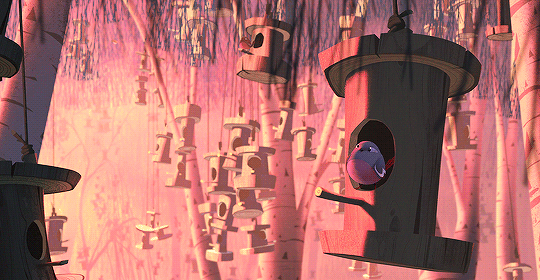
...3D...
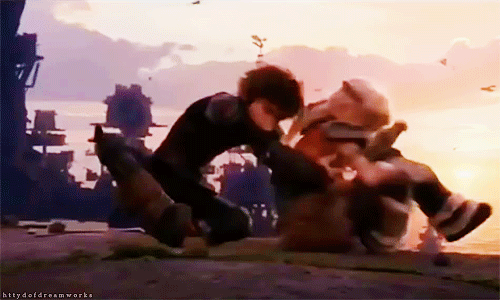
...cell-shaded...
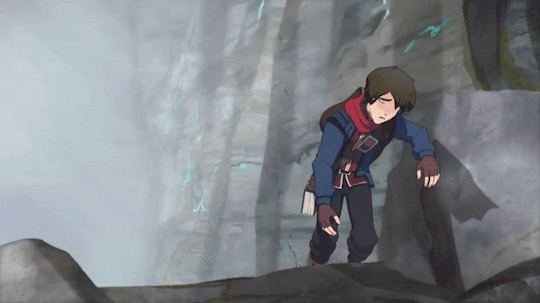
...hyper-realistic...
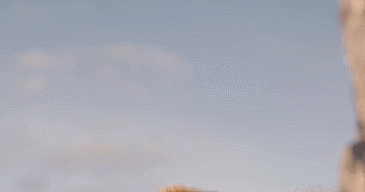
- oh, wait, wait, no, my mistake, that’s clearly live-action.
Anyway, no matter what type of animation is your favourite, this year gave you something. and I’m gonna go chronologically, listing those that I have been able to see. Keep in mind, day only has 24 hours, so I couldn’t see every new season or premiere (for example, I had no interest in OK KO, or She-Ra). Some spoilers below. And Gifs. LOTS OF gifs.
In January: we were still riding on the Spiderverse bandwagon from last year,, which culminated with an Oscar in February. And though as I’ve said, the movie would have worked better imho as a, say, Netflix series, as only two of the spider-people were properly fleshed out, I have to admit, it was a well-earned prize.
Then we were hit by the finale of Steven Universe, and while some complained about the another redemption of cosmic regime, it was an incredibly satisfying ending to a great cartoon... so much so that a whole movie and an epilogue series was made.
plus, it had a segment animated by James Baxter, so it’s automatic win..
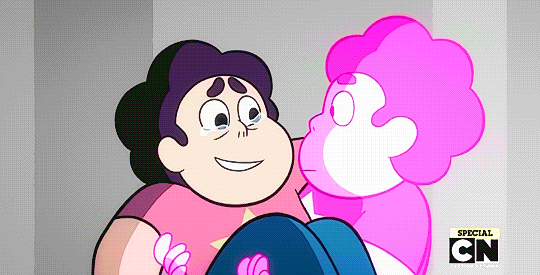
January also blessed us with a reboot of another old-forgotten property, Carmen Sandiego, with her second season arriving in October. And it proved that reboots do make sense, but only if you actually do something with it. The story was fresh, creative, and yet, similar in its serialised form to capture the imagination of viewers. Also, grappling hooks for the win.
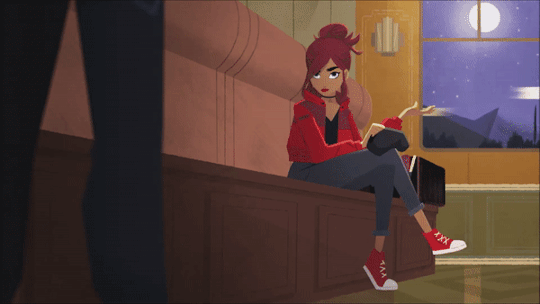
February was the month of dragons. Not only we got the conclusion of How to Train Your Dragon franchise, but Netlfix gave us second season of The Dragon Prince. While I still consider HTTYD 1 as the best movie of the franchise, as it cleverly told the story of a conflict without any obvious villain, HTTYD 3 was a satisfying conclusion, strengthened by the Homecoming special in November.
TDP S2 on the other hand, did everything season 1 did, except better. For once, the studio finally broke their piggy bank and bought a new graphics card, so the choppy 15FPS animation of S1 is gone. The story got darker, more mature, yet whimsical, and it only made us hungry for more. Luckily, S3 was just around the corner.
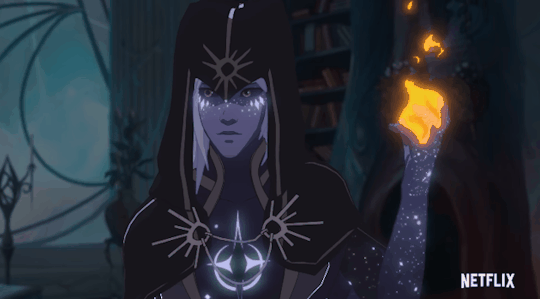
March gave us season 2 of Craig of the Creek. I have to admit, I missed out on this cartoon in 2018, and it was a humongous mistake. CotC is quite possibly the most wholesome cartoon out there, telling amazing story about a boy, his friends, and his family, glorifying the mundane adventures in the creek to truly epic proportions. The family is especially important part, I do not remember a cartoon where bonds between family members were as well written as here. Definitely a must-watch if you have missed it as well.
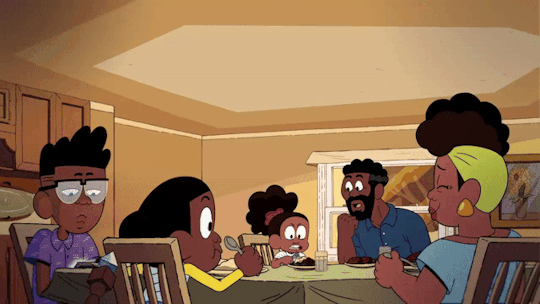
On 8th of March, the International Women’s day, DC Superhero Girls 2019, aka My Little Pony But Humans And With Superpowers, started, and it was a blast. Creator. Lauren Faust, has once again proven that whatever she touches turns into gold. The shorts were funny, clever, and changed just enough of the DC universe to feel familiar, yet show us new, interesting scenarios.
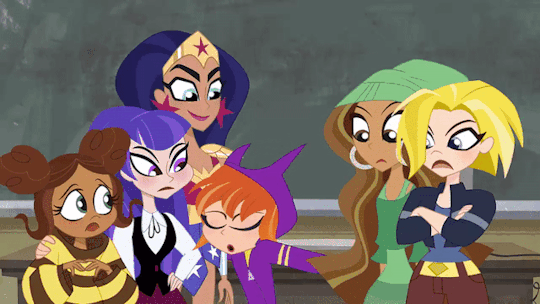
In April, Missing Link had its premiere, showing that traditional, stop motion animation not only has place in modern times, but it can deliver spectacular scenes, though of course, we expected nothing less of studio Laika.
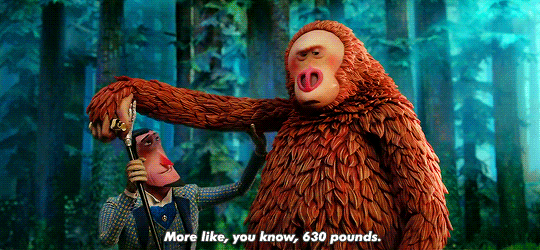
In May, one of Disney’s long-running series, Star vs The Forces of Evil had its finale, and that brings us to the first screech of the list. Many people complained about the direction the show has taken, some claiming it has gone off-track in S3, some saying it was S4 that dropped the quality. Some, like me, saw nothing wrong with it, but the finale let people dissatisfied. If anything, it was too short, and definitely could use an epilogue movie that would tie some of the remaining plot threads in something bigger than one single pan-shot.
Rest in piece, laser puppies
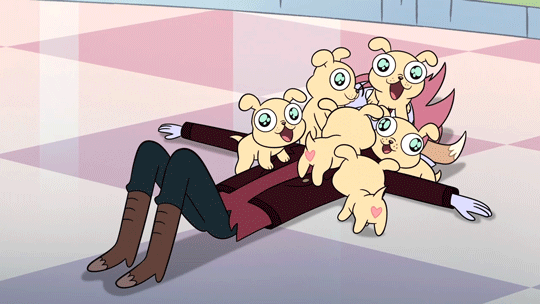
Wait, they’re alive? Well, then... rest in piece, Hekapoo and her puppies.
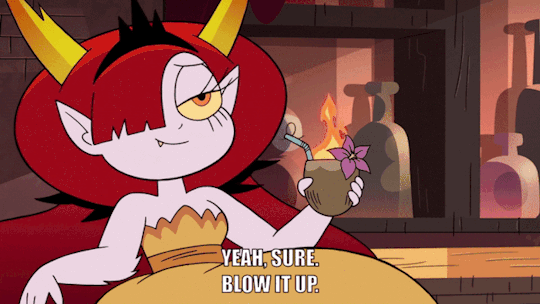
This month also presented a first contender for this Summer’s line-up, Twelve Forever. The cartoon took us into wild, bizarre land of imagination, and offered quite a few very mature lessons about growing up and acknowledging one’s responsibilities. It also provided much needed representation, both in terms of colour and sexuality.
Sadly, amidst scandals with its creator, the show was canned, though it’s also Netflix’s fault for not marketing it enough.
A-and maybe the show was just a tad too... creepy....
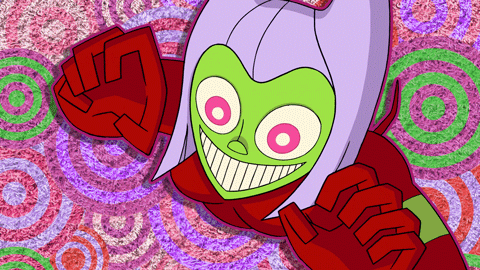
Also somewhere in May some Games might have been lost and some Thrones burned, but no one cares about it anymore. i think it was popular for a while, though.
However, 12 Forever was just a start. June gave us Amphibia, my personal top-bingeable cartoon of the year. Disney has hit a jackpot, giving us an incredibly creative fantasy show with rich mythology and enough emotional conflict to create fantastic storytelling. The only slight complain was the scheduling, as episodes aired daily, meaning the season was over by the end of the month. But honestly, the amount of humour and adventures with Anne in the forg world we got compensates that thousandfold. Book 2, coming in 2020, can only makes thing more interesting.
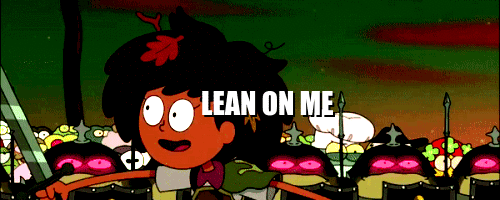
Going for a hat-trick, in August we got the premiere of a cartoon that I was betting would be my personal favourite, Infinity Train... Until I learned of its schedule, even weirder than Amphibia’s. While Amphibia took a right turn, and gave us 20 episodes, a perfect amount for both plot and filler stories, Infinity Train... turned out to be a mini-series with just ten episodes, airing daily, two per night. And that, in my opinion, was a fatal mistake. Not only we now know that the story is not over, as Season 2 arrives in January, but the short episodes and its density gave very little time to leave an impact on us. If it was at least spaced out, then maybe I wouldn’t be so judgemental, but for me it was a blow that deflated the balloon I was clinging to since 2016 pilot. Still, there is more to come, and the story was more than interesting, so we’ll see if I get used to the pocket mini-story arcs.
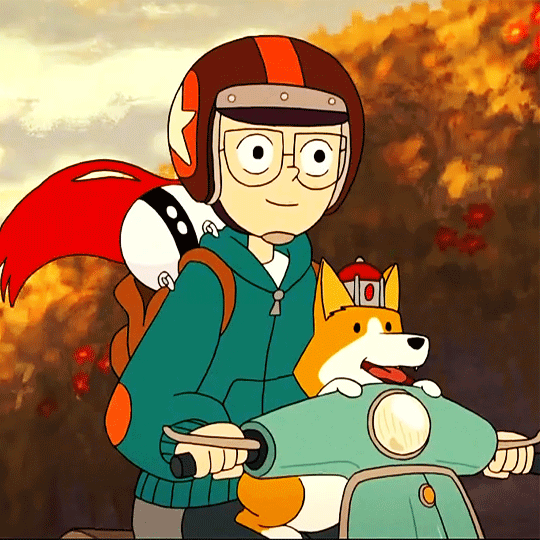
September. Remember Steven Universe? That cartoon that ended? SIKE, HAVE A TV MOVIE. And by gods, old and new, what a phenomenal movie it was. A musical telling its own, contained story of betrayal, trust and finding yourself, based on Rebecca Sugar’s mis-adventure with a phone that reset itself... I have seen this movie at least ten times, and its OST is one I come back to constantly on Spotify. The songs are amazing, catchy, incredibly-well written, deep, and, as usual, send very adult messages about growing up and finding one’s identity, which SU was already famous for. Must watch.
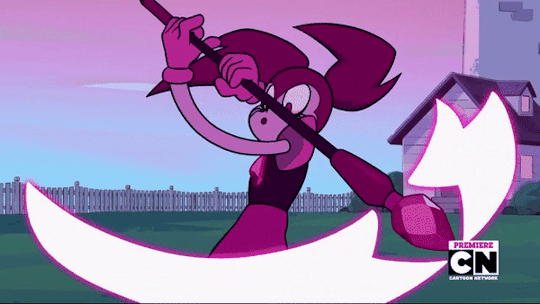
Continuing the theme of reboots that actually make sense, Ducktales finished its second season after duck-bombs in March and May, with a heart-breaking story of Della Duck and humongous finale, extending DT’s universe to other Disney Afternoon shows. Season 3 promises even more, and DT is a golden standard of making a reboot that stays faithful to a more than half-a-century old material, while adding enough material to keep things fresh and funny for modern audience. What I’m saying is, Disney could really learn from Disney (pictured below).
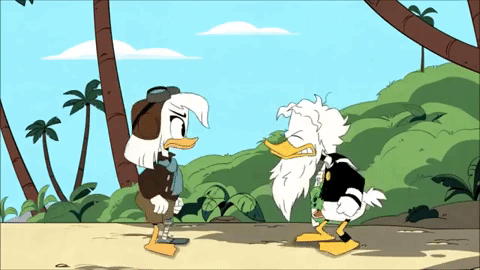
But while some things start, some have to finish. October saw the end of My Little Pony: Friendship is Magic, a show that has taken Internet by the storm in 2010 and...
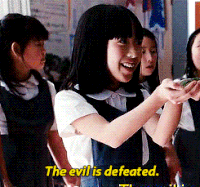
...okay, cringy brony things aside, this was a clever re-imagining of the decades-old property, and its popularity, especially amongst the people outside the target demography is a proof of its quality. The ending was perfectly serviceable, nothing that stood out, in my opinion, but it definitely didn’t disappoint either. MLP FiM will live in history as the cartoon about pastel tiny horses that made adult men cry and gave them enough passion to create years of of visual crack. And porn. Lots of porn.
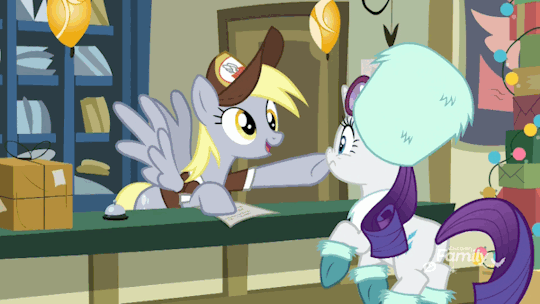
November: Just In case if one season of human and elf adventures was enough, The Dragon Prince Season 3 arrived in November, and it provided a thrilling conclusion to its first smaller story arc. Though I wish the season was longer, and it dived into the history of Elves’ and Humans’ animosities, I would be lying if I said I didn’t binge-watch it all in one sitting, gripping my chair.
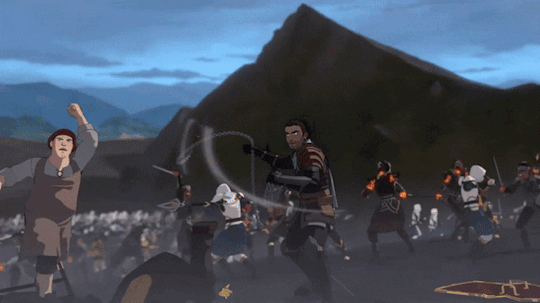
Do you like Green Eggs and Ham? Yes, yes, I do, Sam-I-am. Question: how do you take a classic poem, made purposefully of limited vocabulary, and turn it into a thirteen episode series with a beginning, middle, and end? The answer: You add bunch of weird stuff and the mother of all complicated backstories... at least by the original’s standards. And here’s the thing: this is the first Dr Seuss’ adaption where it works. Somehow the writers were able to stretch each verse of the famous poem into a surprisingly emotional story about friendship, losing and restoring hope, as well as following your dreams. Plus, it gave us Fargo-esque team of Bad Guys. Come on.
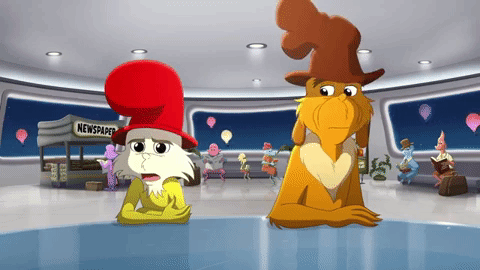
And just in time for Christmas season, we were blessed with Klaus, a clear contender for a Christmas classic in my opinion. This STUNNINGLY beautiful traditionally animated original Netflix movie is a very, very clever reinterpretation of St. Nick’s mythos, telling a deep, and very realistic story of greed and selfishness, and how can one turn their life around by changing their life, one present at a time.
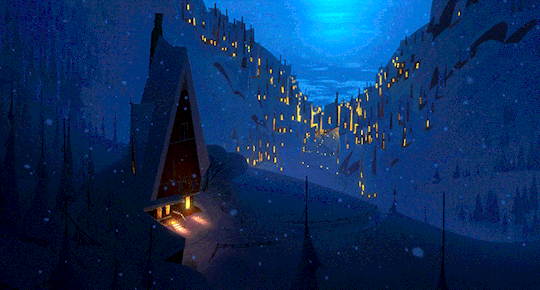
We’re about to end the year, so HOW ABOUT SOME EMOTIONAL TRAUMA, KIDS? Yes, Steven Universe Future is here, and from the looks of it, Steven’s problems are just beginning, since they mature with him. The show’s too real, man. However, it also provided much needed levity, giving us a familiar taste. Nothing more to say, as the show is still airing, and it will surely give us more emotional moments.
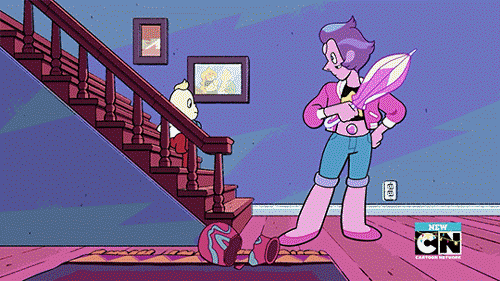
And that’s a wrap for 2019. As I’ve said, it is not exhaustive by any means, and from the looks of it, 2020 is gonna be as packed as its prequel. So yeah, the world might be on fire, but at least we got some nice cartoon to binge-watch.
Happy new year everyone! At least I have time until 6th of January when the first episode of Infinity Train Season two arriWHAT DO YOU MEAN IT’S OUT ALREADY
11 notes
·
View notes
Text
Hoo Noo Shmoo?
Never let it be said that this blog is flagging in its enthusiasm for flogging horses so dead they’re found in the glue bin at Office Max.
To whit, the Scorsese vs MCU brouhaha.
Bottom line: Scorsese is right. As well made as MCU movies are, they ain’t cinema, they’re glorified commercials to sell MCU product.
Full disclosure: I should know, since I wrote for G.I. Joe, Transformers, and a host of other toy-based syndicated animation shows. I’m happy with the work I did, I can point proudly to specific episodes I wrote that aspire to be more than mere half-hour commercials…
…but they ain’t art.
They ain’t art, despite our aspirations to do the best job we could, because ultimately we creators were not allowed to create what we felt best for our stories, but what Hasbro deemed vital to their sales.
(The closest we got to art was when Hasbro cancelled The Inhumanoids toy line in mid-production of the TV series, and said we could finish our broadcast commitment however we saw fit so long as it didn’t result in an FCC complaint. As a result, we went nuts.)
My Hasbro / Sunbow experience remains a highpoint of my creative life, so I’m not denigrating the talent, skill, ability, spirit, and enthusiasm of those making MCU movies.
…but they ain’t art.
Now, those who love MCU movies think Scorsese’s comments are a slam against them.
Welllll…no, not directly.
But they do underscore how popularity -- especially of media designed to push product -- is a faulty measuring stick for artistic merit.
Case in point: The Shmoo.
Wuzza shmoo, you ask (and thus proving my point)?
Shmoos were extremely popular in the late 1940s. Part of the wonderfully wacky world cartoonist Al Capp created for his hit Li’l Abner comic strip, shmoos represented a parable on American consumerism, modern day geese laying not mere golden eggs but birthday cakes with candles a’blazin’.
As Capp described them:
They reproduce asexually and are incredibly prolific, multiplying faster than rabbits. They require no sustenance other than air.
Shmoos are delicious to eat, and are eager to be eaten. If a human looks at one hungrily, it will happily immolate itself -- either by jumping into a frying pan, after which they taste like chicken, or into a broiling pan, after which they taste like steak. When roasted they taste like pork, and when baked they taste like catfish. Raw, they taste like oysters on the half-shell.
They also produce eggs (neatly packaged), milk (bottled, grade-A), and butter -- no churning required. Their pelts make perfect boot leather or house timbers, depending on how thick one slices them.
They have no bones, so there's absolutely no waste. Their eyes make the best suspender buttons, and their whiskers make perfect toothpicks. In short, they are simply the perfect ideal of a subsistence agricultural herd animal.
Naturally gentle, they require minimal care and are ideal playmates for young children. The frolicking of shmoos is so entertaining (such as their staged "shmoosical comedies") that people no longer feel the need to watch television or go to the movies.
Some of the more tasty varieties of shmoo are more difficult to catch, however. Usually shmoo hunters, now a sport in some parts of the country, use a paper bag, flashlight, and stick to capture their shmoos. At night the light stuns them, then they may be whacked in the head with the stick and put in the bag for frying up later on.
Of course, in the original strip continuity, the shmoos were quickly eradicated, driven to extinction by food packagers who feared bankruptcy.
It was a sharp, biting message, and one that looked critically at both insatiable consumerism and capitalism’s claims of superiority.
Capp, of course, was too savvy a marketeer himself to eliminate the shmoos entirely, and so he provided for one breeding pair to survive…and for the shmoos to make repeated appearances for the rest of Li’l Abner’s run.
Shmoo mania ran rampant with shmoo dolls, shmoo clocks, shmoo games, shmoo candy, shmoo snacks, and shmoo apparel.
The money truck basically backed up to Capp’s front door and dumped its load on his porch. Shmoos proved insanely popular and it seemed the mania would never end…
…except it did.
To mangle metaphors, you can only take so many trips to the same well before your audience starts asking “What? Beans again?”
And then, in a fickle flash, it’s over.
I’d be hard pressed today to find anyone younger than the boomer cohort who ever heard of Al Capp or Li’l Abner unless their school or community theatre presented the Broadway musical adaptation of the strip (the show remains popular with amateur theatrical troupes such as high schools and colleges because the huge cast of Dogpatch citizens guarantees everybody who tries out for the show will land some part in it).
For all their popularity and merchandise and media impact -- songs on the radio, big spreads in weekly news magazines -- the shmoos left virtually no cultural footprint.
(Full disclosure yet again: I wrote for a Scooby-doo knock-off by Hanna-Barbera called The New Shmoo and it was a piece of crap, abandoning the whole consumerism point of the original shmoos and making them -- or just “it” in our case -- a pseudo-funny dog sidekick for a squad of mystery solving kids. And it wasn’t a piece of crap because we didn’t try our best, it was a piece of crap because the shmoo was treated as ubiquitous “product” under the misconception that of course everybody younger than Joe Barbera would recognize the name and love the character so deeply that they’d simultaneously develop amnesia about what made the original character so appealing.)
Product.
That’s what one of the most brilliant, most poignant, most spot-on commentaries on rampant consumerism and ruthless capitalism ironically reduced down to. Product.
There’s a line in Jurassic Park that resonates here: ”Life will find a way.”
Let’s paraphrase that to “Art will find a way” because like life, art is an expression of the creative urge.
Right now, by and large, it’s trapped in the giant all encompassing condom of corporate consumerism, providing fun and pleasure and excitement, but not really creating anything new, to be wadded up and thrown away when the suits are done screwing us.
But every now and then there’s a tiny pinprick in the sheath, and when that happens there’s the chance of something wonderful, something meaningful, something of lasting value emerging.
It is possible for art to emerge from a corporate context, but only if the corporate intent is to produce a work of art for its own purposes. Michelangelo carved David as a work for hire, the local doge commissioning the sculpture because he wanted to impress peers and peasants by donating the biggest statue ever made by the hottest artist of the era (and even then Michelangelo needed to resort to subterfuge to keep the doge from “improving” on his work with “suggestions” [read “commands”].)
The very first Rocky movie was a work of art because the producers focused on telling a simple, singular story about a loser who could only win by going the distance, not by defeating his opponent but by refusing to be beaten by him.
It’s a great cinematic moment that rings true and it’s going to last forever…unlike sequels Rocky II - V where Rocky fights supervillains like Mr. T and a robot (hey, that was the movie playing in my head when I watched Rocky IV and it was a helluva lot more entertaining than what I actually saw onscreen).
The suits castrated Rocky, reducing him from a unique universal cultural touchstone down to…well…product.
The MCU movies are product; rather, they are two-hour+ commercials to sell product in the form of videogames, action figures, T-shirts, and Underoos.
The real art occurred almost 60 years ago when Jack Kirby and Steve Ditko knocked out page after page as fast as they could, drawing deep from the wellsprings of their own interests, experiences, and passions.
(“What about Stan?” I hear you ask. Look, we all love Stan, but truth be told his great contribution to the MCU came in his service as drum major for the Merry Marvel marching Society. God bless him for firing up the fan base’s enthusiasm for the Marvel bullpen’s work, but compare what his artists did before and after their collaboration with him to what he did before and after his editorial tenure at Marvel and it’s clear upon whose shoulders the muses rested.)
As much fun as MCU movies are (I’ve seen about 1/3 of ‘em and enjoyed most of what I saw), I also recognize in them the harm they do.
They are promoted heavily to sell product to raise the fortunes of one of the biggest corporations on the planet, a corporation that holds control over five of the largest, most popular entertainment brands on the market.
To protect their cash cows, Disney chokes potential rivals in their cribs.
Think there’s going to be another Alien or Predator movie now that Disney owns them and Star Wars? Why create rivals to a mega-successful property you already own? (I will be genuinely surprised if we see another Guardians Of The Galaxy movie in light of the faltering popularity of Star Wars in Disney’s eyes; they’re going to want to shore up their billion dollar investment rather than call it a day and let some upstart -- even an upstart they own 100% -- rob them of revenue.)
Disney’s battle plan to choke out all potential rivals leaves no room in the DEU (Disney Expanded Universe) for independent minded creators.
They want competent hired pens who can churn out the product they desire in order to bolster sales of other products derived from those.
(Even more full disclosure: I wrote for Chip ‘n’ Dale’s Rescue Rangers as well as some Aladdin and Scrooge McDuck comic book stories.)
Disney’s MCU, for all its expertly executed whiz-bang, is a bloated, soulless zombie, a giant gaudy inflated parade balloon blocking the vision of others.
There’s a scene in the movie The Founder -- a genuine cinematic work of art that comments ironically on the selling of a product -- that applies here.
Ray Kroc (Michael Keaton) relentlessly browbeats the McDonald brothers (Nick Offerman and John Carroll Lynch) into letting him replace their real milkshakes with what will come to be known as the McShake, an ersatz product that at best reminds one of what a real milkshake should taste like.
The McDonald Brothers are horrified. Not only does it not taste like a real milkshake, but it goes against the very grain of what they desire as restauranteurs: To provide quality food quickly for their customers, trading value for value.
Kroc will have none of this. To him the customers are simply one more obstacle between him and their money.
He doesn’t see them as the source of his revenue, but as impediments to same.
What benefits them, what nurtures their diets, what gives them pleasure, what trades value for value is completely unimportant to him.
They exist only to make him rich and powerful.
By the end of the film, Kroc has effectively declared war on his own partners, his own employees, his own customers. He recognizes he is not in the business his customers and employees and partners think he’s in (i.e., fast food) but rather in the real estate business, buying land that McDonald’s franchises must lease from him in order to operate.
By the end, he’s not concerned with how well his customers eat, or how well his employees are treated, or how financially secure his franchise managers feel.
By the end, all he wants is the money, and he doesn’t care how his franchises make it so long as they pass it along to him.
As a result, McDonald’s contributes heavily to America’s obesity and diabetes epidemics, advising their employees to take second jobs so they can afford to continue working for them at substandard wages.
Disney’s MCU is a super-sized Happy Meal™ that’s ruining the cultural health of its consumers.
© Buzz Dixon
#Marvel#Disn#Jack Kirby#Stan Lee#Steve Ditko#Star Wars#MCU#Rocky#Martin Scorsese#media#movies#superheroes
4 notes
·
View notes
Photo
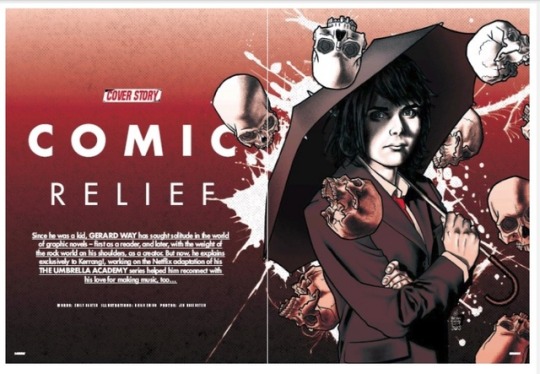
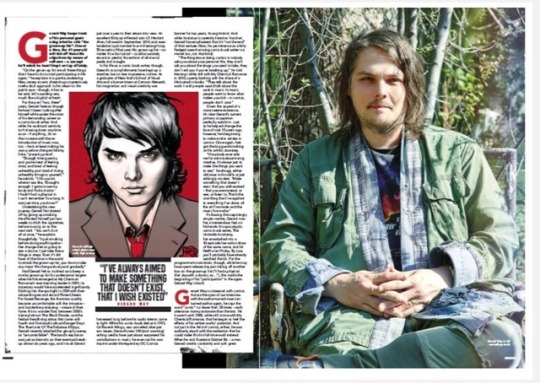
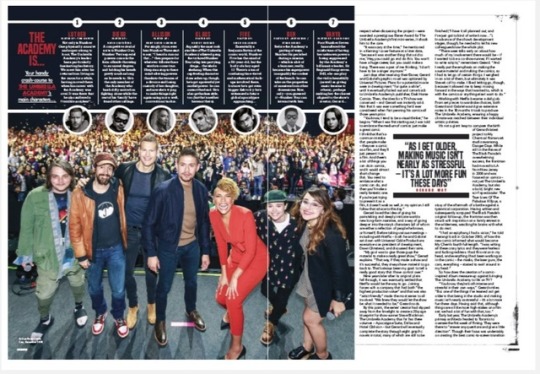
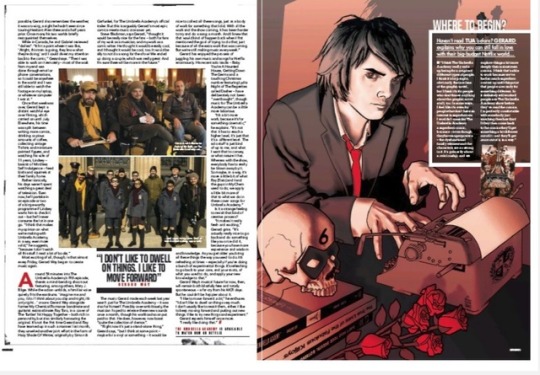


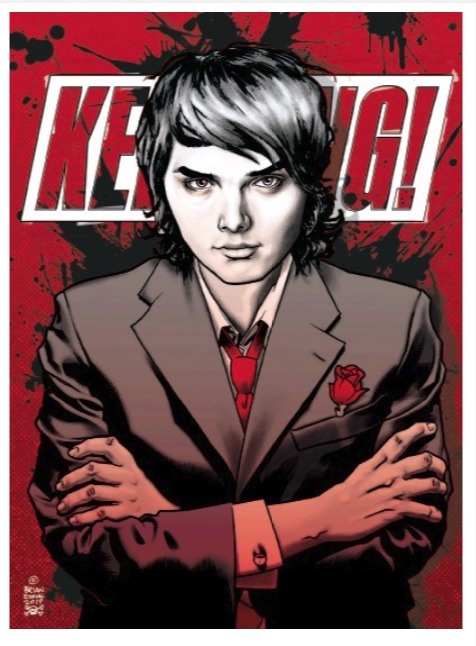
Kerrang Issue #1761
Magazine Release Date: February 20th, 2019
Issue Label: February 23rd, 2019
Photo Credit: Jen Rosenstein
Illustrations: Brian Ewing
Partial Transcription (from pressreader.com) below:
Kerrang! (UK)
20 Feb 2019
words: emily carter illustrations: brian ewing
“MAKING MUSIC IS MORE FUN THESE DAYS…”
BREAKS HIS SILENCE
Since he was a kid, GERARD WAY has sought solitude in the world of graphic novels – first as a reader, and later, with the weight of the rock world on his shoulders, as a creator. But now, he explains exclusively to Kerrang!, working on the Netflix adaptation of his THE UMBRELLA ACADEMY series helped him reconnect with his love for making music, too…
Gerard Way keeps track of his personal goals using what he calls “the grown-up list”. One at a time, the 41-year-old will tick off these life objectives by means of self-care – a concept he’ll admit he hasn’t kept on top of lately.
“On the grown-up list are all these things that I have to do to start participating in life again,” he explains in a gentle, endearing New Jersey accent, dissecting a mysteriously methodical approach to his return to the public eye – though, it has to be said, still sounding very much like a big kid at heart.
For the past “two, three” years, Gerard feels as though he hasn’t been looking after himself while under the strain of his demanding career as a comic-book writer. And while his workload certainly isn’t slowing down any time soon – if anything, it’s on the increase with the reintroduction of music now, too – he is at least making his own positive changes little by little, “piece by piece”.
“Enough time goes by and you’re tired of feeling tired, and tired of feeling unhealthy, and tired of doing unhealthy things to yourself,” he admits. “I hit a point where I was like, ‘Enough’s enough. I gotta move my body and find a doctor.’ I hadn’t had a physical in I can’t remember how long. It was just time, you know?”
Undertaking this new journey, Gerard first started off by giving up smoking. He afforded himself just two weeks to ditch the cigarettes, before moving on to the next task. “You can’t do it all at once,” he explains thoughtfully. “I quit smoking before doing anything else – like change diet or going to see a doctor. I just take these things in steps. Even if I did have all the time in the world to attack the grown-up list, you have to take any major life change slowly and gradually.”
Had Gerard felt so inclined as to keep a similar grown-up list for professional targets when he first emerged as My Chemical Romance’s awe-inspiring leader in 2001, its trajectory would have accelerated significantly. Darting into the spotlight in 2004 with their astounding second record Three Cheers For Sweet Revenge, the frontman quickly became uncomfortable with the intrusive – and borderline paralysing – nature of their fame. It’s no wonder that, between 2006’s triple-platinum The Black Parade, and the festival-headlining status that came with fourth and final studio album Danger Days: The True Lives Of The Fabulous Killjoys, Gerard recently labelled the group’s journey as “uncontrollable”. The band’s explosion was just as dramatic as their eventual breakup almost six years ago, and it took Gerard just over a year to then return into view. An excellent Britpop-inflected solo LP, Hesitant Alien, followed in September 2014, and even landed at spot number four in Kerrang!’s top 50 records of that year. No grown-up list – no matter how fool-proof – could accurately record or predict those kind of whirlwind peaks and troughs.
In his life as a comic-book writer, though, Gerard’s accomplishments have kept up a steadier, but no less impressive, incline. As a graduate of New York’s School of Visual Arts and a former intern at Cartoon Network, his imagination and visual creativity was harnessed long before his audio talents came to light. While his comic-book debut in 1993, On Raven’s Wings, was cancelled after just two issues, Gerard’s near 100 (and counting) writing credits have just about surpassed his contributions in music; he even ran his own imprint under the legendary DC Comics banner for two years, Young Animal. And while its status is currently listed as ‘inactive’, Gerard has emphasised that it’s “not the end” of that venture. Now, his prominence as a fullyfledged award-winning comic-book writer is a marvel (no, not that kind).
“The thing about doing comics is nobody asks you about your personal life, they don’t ask you about the drugs you used to take, they don’t ask you if you’re breaking up,” he told Kerrang! while still with My Chemical Romance in 2010, openly battling with the allure of a life buried in books. “They talk about the work. I wish people would talk about the work in music. In music, people want to know what makes you tick – in comics, people don’t care.”
Given the appeal of a more serene existence, it’s clear Gerard’s current primary occupation perfectly suits him. Just as he helped change the face of rock 15 years ago, however, he’s beginning to make similar strides in comics. Once again, he’s got the big guns knocking on his artistic doorstep.
“If anybody ever asks me for advice about being creative, it’s always just to make the things you want to see,” he shrugs, either oblivious to his skills or just strikingly modest. “Make something that doesn’t exist, that you wish existed – that you wanna read, or see, or listen to. That’s the one thing that I’ve applied to everything I’ve done: all the art I’ve made and the music I’ve made.”
Following this surprisingly simple mantra, Gerard now has a tremendous feat on his hands: his apocalyptic comic-book series, The Umbrella Academy, has snowballed into a 10-episode live-action show of the same name, and hit Netflix last Friday. By now, you’ll probably have already watched the lot. For the programme’s main brain, though, while he may have spent release day just ticking off another box on the grown-up list (“I had a physical that day with a doctor, so…”), this marks the beginning of his “participation” in life again. Gerard Way is back.
Gerard Way is obsessed with comics. Across the span of our interview with the author-turned-musicianturned-author again, he says the word “comic” no fewer than 28 times – each utterance more passionate than the last. Yet it wasn’t until 2008, while still active with My Chemical Romance, that he began to feel the effects of his written works’ potential. And not just in the field of comics, either; he was suddenly struck with the realisation that he could make this his full-time work instead. When he and illustrator Gabriel Bá – a man Gerard credits constantly and with great
“I’VE ALWAYS AIMED TO MAKE SOMETHING THAT DOESN’T EXIST, THAT I WISH EXISTED” GERARD WAY
respect when discussing the project – were awarded a prestigious Eisner Award for The Umbrella Academy’s first mini-series, it shook him to the core.
“It was scary at the time,” he mentioned in a Kerrang! cover feature at a later date, “because it was another thing that said to me, ‘Hey, you could go and do this. You won’t have a huge career, but you could make a living. There was a part of me thinking, ‘I don’t have to be a singer anymore.’”
Just days after receiving their Eisner, Gerard and Gabriel’s graphic novel was optioned by Universal Pictures. Plans for a potential movie were in development “for quite a while”, until it eventually fizzled out and came back to Umbrella Academy’s publisher, Dark Horse Comics. Then, the idea for a TV show was conceived – and Gerard was instantly sold. Not that it was ever something he’d ever considered when first penning his comics all those years prior.
“You know, I tend to be a visual thinker,” he begins. “When I was first starting out, I was told to embrace the medium of comics: just make a great comic. I think that that’s a common mistake that people make – they see a comic as a film, and they’ll just present it as a film. And there’s a lot of things you can do in comics, and it would almost short-change that. You need to embrace what a comic can do, and then you’ll make a really fantastic one. If you’re just trying to present it as a film, it doesn’t work as well, in my opinion. I still follow that advice to this day.”
Gerard loved the idea of giving his painstaking and deeply intricate world a new long-form narrative, and a way of going deeper into the story’s characters (all of whom are either a reflection of people he knows, or himself). Before taking various meetings – including with Netflix – both he and Gabriel sat down with Universal Cable Productions executive vice president of development, Dawn Olmstead, and discussed their aims.
“My goal was to give those guys the material to make a really great show,” Gerard explains. “That way, if they made a show and it’s successful, they always have material to go back to. That’s always been my goal: to tell a really good story that I have control over.”
Nine years later after its original plans fell through, it was eventually settled that Netflix would be the way to go. Joining forces with a company that had both “the highest production value” and that was also “artist-friendly” made the most sense to all involved. “We knew they would let the show be what it needed to be,” Gerard nods.
By this point, the series’ creator had slipped away from the limelight to create a 20-page blueprint for show-runner Steve Blackman. The Umbrella Academy thus far has three volumes – Apocalypse Suite, Dallas and Hotel Oblivion – but Gerard will eventually complete the story through eight graphic novels in total, many of which are still to be finished (“I have it all planned out, and I’ve just got to kind of write it now…”). In advance of the show’s development stages, though, he needed to let his new colleagues know the whole plot.
“There were talks early on about how much of my involvement there would be – if I wanted to be a co-show-runner, if I wanted to write scripts,” remembers Gerard. “And I really put the emphasis on making the source material and making the comics, so I had to let go of certain things. I weighed in on a lot of them, but ultimately it was Steve’s call to make. I liked letting go, though, because it allowed me to keep moving forward in the ways that I wanted to, which is with the comics or anything else I want to do.”
Working with Netflix became a daily job. From set pieces to wardrobe choices, both Gerard and Gabriel would give extensive notes in the 18 months it took to produce The Umbrella Academy, ensuring a happy climate was reached between their individual artistic palettes. It’s not a giant leap to compare the birth of Gerard’s latest project to My Chemical Romance’s studio swansong, Danger Days. While still in the throes of The Black Parade’s overwhelming success, the frontman had moved to LA from New Jersey in 2008 and was focused on comics – not just The Umbrella Academy, but also a bold, bright new sci-fi spectacular: The True Lives Of The Fabulous Killjoys, a story of the aftermath of a battle against a tyrannical corporation. Having written and subsequently scrapped The Black Parade’s original follow-up, the frontman was then struck with inspiration on a family retreat in the wilderness, wracking his brains with what to do next.
“I had an epiphany, I had a vision,” he told Kerrang! back in October 2010, of how this new comic informed what would become My Chem’s fourth full-length. “I was writing all these crazy lyrics and they were fearless and fucking reckless. I had this vision in my head, and everything I had been working on in the comic – the masks, the laser guns, the cars, everything – started to swirl around in my head.”
So how does the creation of a comicinspired album measure up against bringing The Umbrella Academy to life on TV?
“You know, they’re both intense and stressful in their own ways,” Gerard smiles. “But one of the things I’ve learned as I get older is that being in the studio and making music isn’t nearly as stressful – it’s a lot more fun these days. Having said that, although things are a little more high-stakes on a film set, we had a lot of fun with that, too.”
Early last year, The Umbrella Academy’s primary architects headed to Toronto to oversee the first week of filming. They were there to “answer any questions and give a little direction”. Though their focus was undeniably on creating the best comic-to-screen transition
“AS I GET OLDER, MAKING MUSIC ISN’T NEARLY AS STRESSFUL – IT’S A LOT MORE FUN THESE DAYS” GERARD WAY
“I DON’T LIKE TO DWELL ON THINGS. I LIKE TO MOVE FORWARD” GERARD WAY
possible, Gerard also remembers the weather; it was snowing, a sight he hadn’t seen since touring Hesitant Alien three and a half years prior. Once more, his two worlds briefly reacquainted themselves.
While in Canada, he and Gabriel reviewed “dailies”. “It hit a point where it was like, ‘Alright, this train is going, they know what they’re doing,’ and I could divert my attention back to the comic,” Gerard says. “Then I was able to work on it remotely – most of the work from my end was done through email or phone conversations, so I could be anywhere in the world and I was still able to watch the footage on my laptop, or whatever computer I was at.”
Once that week was over, Gerard kept a distant watchful eye over filming, which carried on until July. Elsewhere, his time was split between writing more comics, drinking copious amounts of coffee, collecting vintage T-shirts and miniature painted figures, and watching his wife of 11 years, Lindsey – bassist of Mindless Self Indulgence – feed birds and squirrels at their family home.
Rather ironically, his days weren’t spent watching a great deal of television. Even now, he’ll partake in an episode or two of a binge-worthy programme if Lindsey wants him to check it out – but he’ll never consume the lot in one go. “I think that makes my opinion on what we’re making with Umbrella Academy, in a way, even more valid,” he suggests, “because I don’t watch all this stuff. I read a lot of books.”
Most exciting of all, though, is that almost every Friday, Gerard Way began to create music again.
Around 54 minutes into The Umbrella Academy’s fifth episode, there’s a mind-bending shoot-out featuring, among others, Mary J. Blige. While the action unfolds, a familiar voice quietly hits the eardrums. ‘ Imagine me and you, I do / I think about you day and night, it’s only right…’ croons Gerard Way alongside former My Chemical Romance bandmate and guitarist extraordinaire Ray Toro, in a cover of The Turtles’ hit Happy Together – both rich in personality, but also similarly honouring the original. It’s not the first time Gerard and Ray have teamed up in such a manner: last month, they unveiled another joint effort in the form of Hazy Shade Of Winter, originally by Simon & Garfunkel, for The Umbrella Academy’s official trailer. But this is arguably Gerard’s most epic comics-meets-music crossover yet.
Steve Blackman, says Gerard, “thought it would be really nice for the fans – both for fans of my work as a musician, and my work as a comic writer. He thought it would be really cool, and I thought it would be cool, too. It would be silly to not do a song for the show! We ended up doing a couple, which was really great. And I’m sure there will be more in the future.”
The music Gerard made each week last year wasn’t just for The Umbrella Academy – it was also for himself. Possibly over-ambitiously, the musician hoped to release these new sounds once a month, though his workload soon put paid to that. He does, however, now boast “quite the collection of demos”.
“Right now it’s just a stand-alone thing,” Gerard says, “but I think at some point – maybe for a vinyl or something – it would be nice to collect all these songs, just as a body of work for something that I did. With all the work and the show coming, it has been harder to try and do a song a month. And I knew that that would kind of happen back when I first mentioned the goal of trying to do that, just because of all the extra work that was coming. But we’re still making music every week.”
Gerard has enjoyed the process of juggling his own music and songs for Netflix enormously. His recent solo tracks – Baby You’re A Haunted House, Getting Down The Germs and a touching Christmas number featuring Lydia Night of The Regrettes called Dasher – have deliberately not been “overthought”, though music for The Umbrella Academy can be a little more laborious.
“It’s a bit more work, because it’s for something cinematic,” he explains. “It’s not that it has to reach a higher level, it’s just that it’s a different level. The solo stuff is just kind of up to me, and what I want that to convey, or what nature it has. Whereas with the show, everybody has to really be blown away by it. So maybe, in a way, it’s more a little bit of what Ray [Toro] and I and the guys in My Chem used to do; we apply a little bit more of that to what we do in these cover songs for Umbrella Academy.”
Is it a strange feeling to revisit that kind of creative process?
“It makes it really fresh and exciting,” Gerard grins. “It’s actually really nice to go back and do something like you once did it, because you have more experience and wisdom and knowledge. As you get older you bring all these things the way you used to do. It’s refreshing at times – especially if you’re doing a bunch of experimental things. It’s refreshing to go back to your core, and your roots, of what you used to do, and apply your new knowledge to that.”
Gerard Way’s musical future for now, then, will remain both blissfully free and totally spontaneous – a far-cry from his MCR days. But he couldn’t be happier about it.
“I like to move forward a lot,” he enthuses. “I don’t like to dwell on things very much. I don’t usually like to revisit them, either. I like to keep moving forward and putting out new things. I like to try new things and experiment.” Gerard repeats himself once more. “I really like doing that.” K!
THE UMBRELLA ACADEMY IS AVAILABLE TO WATCH NOW ON NETFLIX
#gerard way#K!1761#kerrang#february 2019#2019#patch jacket#smithsonian institute shirt#jen rosenstein#kerrang art print
60 notes
·
View notes
Text
Guess who got a big chunk of writing done for the first time in months? This gal!
Okay, so here is a rough first chapter of a Metalocalypse fanfic, Dethcomics:
"Gentleman… It seems Dethklok is looking into joining the world of comic books. A call has gone out seeking artists and writers to create a Dethklok graphic novel."
"This could be catastrophic! Every new Dethklok industry venture manages to upset the balance of trade, but a band-sponsored book spreading their messages further?!"
"At least with their music no one can tell what Nathan Explosion is saying. But written in black and white?!"
"Exactly. To elaborate, I have called in expert in comics, Professor Varveil Molfirbygai."
The Professor, skinny and acne-ridden, comes forward, pushing his square-framed glasses up the bridge of his nose. "Gentlemen, Dethklok have already rejected the proposals by Brian Posehn, Brian Piludo, and Grant Morrison for their books and are tearing through artists one at a time. At this rate, no one in the industry will be left but Rob Liefeld and Devin Grayson. Apparently their contradictory demands and unrealistic expectations have even been characterized by Alan Moore as 'too far out'. Marvel, DC, Image, and Dark Horse have all blacklisted them, leading to the band to launch their own independent publishing house. This could potentially upset the delicate balance of power within the industry. And God help us if the title is snatched up for screen adaptation by Sony or - ugh - Hulu."
"What can we do to nip this in the bud?"
"It seems that Nathan Explosion's new wife, Abigail Remeltindtdrinc and Charles Offdensen have taken a more direct role in monitoring the project. They may prove a stabilizing influence…"
~_~_~
"Ugh, Dildos!" William Murderface hurls his whiskey bottle to the corner of the game room. "These artsy-fartsy types are a bunch of egotistical, emotional dildos!"
"Ja, likes how obsessives and arrogants can yous gets?" Skwissgaar adds, shredding silently on his Gibson. "And sos delicate!"
Toki, leaning back from the Mortal Kombat machine, sniffs. "I's kinds of liked that Yoorerd Way fellows…"
"HE DIDN'T KNOW ANYTHING ABOUT ROCK!" Nathan roars from the foosball table, engaging in a fierce battle with Pickles.
"Maybe we should just write it ourselves, y'know." Pickles suggests, "And get, I don't know… Toki, you draw things, right?"
Toki brightens. "I'S DO!"
Skisgaar scoffs, "All's he's draws is girly, fluffy tings like happy bunnies and womens withts de tits covered."
"Toki is even less metal than that Brenden Smalls douchebag! Heh, Brenden Smalls, what did he ever create for anyone?" Murderface adds.
"I cans draw brutal!"
"I'm sure you can, Toki, but I'm afraid that still isn't happening," a firm, female voice calls out.
The room falls silent as Charles and Abigail enter the room.
"Guys, Abigail may have found someone to write and draw the book," Charles announces.
Abigail blanches slightly, somewhat uncomfortable. "Maybe, if I can convince her."
"Her?" Murderface asks, somehow sounding simultaneously dismissive and aroused. "We can't let ladies make stuff for us!"
Abigail cradles her temple. "See?" She says to Offdensen, "I told you!"
"Why would we wants chicks arounds us?" Skwisgaar asks.
"Guys, we already put out the announcement. You've blown through nearly every acclaimed graphic novel creator in the business. Fans are getting impatient. So if we can get Abigail's friend to do this for us, you will be on your best behavior!"
"Maybe we should give this chick a chance, you know?" Nathan offers, offering his wife a sympathetic look.
"Oh, you're only saying that because your lady suggested it!" Murderface howls, taking a new bottle of alcohol from a Klokateer with a tray. "You're totally whipped, Man!"
Abigail's eyes burn. She smarches over to the couch and yanks the bassist by the ear. He cries out.
"Listen, you talentless sack of piss, this whole project has been taking time away from recording. And you know how I feel about that. You're going to be a good little boy and do as I say, understand?!"
"YES, MA'AM!"
Abigail releases him, leans back, clears her throat, and smooths her blazer. "I apologize for that. I am… not feeling like myself lately. Like I said, I haven't even convinced my friend to do this, I am not even sure I can. But you can all be sure of her qualifications. Her name is Sofia Maldonado, she's been creating comics since she was fifteen. She has worked on titles like The Boys, Swamp Thing, Ms. Marvel, Deadpool, Nightwing, and Batman. She has her own book, The Emerald Pixie, that has been a hit with both critics and readers and has been nominated for four Eisner Awards, winning two."
The band looks at her as if she is speaking Chinese. She sighs.
" Uh, 'Emerald Pixie'?" Nathan inquires, "No offense, Honey, but that doesn't sound very metal."
"The Pixie has retractable ten inch fangs."
"Oh, uh, that's cool, I guess."
"I mean, it can't hurt, I guess." Pickles adds.
"Is she hot?" Murderface asks.
"Yeahs, is she hot?" Skwisgaar asks.
Abigail turns to Charles. "Why am I doing this again?"
Offdensen pats the producer on the arm. "Guys, please, that is irrelevant. And you will keep things professional, or I am cancelling your vacation to Pornfest this year, understand?"
"What?! Can you even do that?!" Pickles cries out.
"As per my new contract with the five of you, I most certainly can."
The band all grumbles, except for Toki.
"Cans I's shows her my drawings?"
"I'm sure that will be fine."
Abigail sighs. "Look, guys, this woman is a friend of mine, she is good at what she does, and she does not put up with crap. I am going out on a limb for you with this. One wrong move and she bolts. Understand?"
They all grumble again, but answer in the affirmative.
"Excellent." Charles straightens his tie and clears his throat. "Abigail will call up Ms. Maldonado and see if she is willing."
~_~_~_~
"No."
"Just lis-"
"No, Abby, and also: No. Nope. Negative. Nuh-uh. Nein. Not happening. They've run through almost everyone. Do you know how fucked up you have to be to weird out Alan Moore?! The man worships a Roman Snake God, for fucks sake. I am not descending into that pit of testosterone and excess."
"I will keep them in line, I promise. I managed to get them through six albums in as many years. Now that I'm involved, it will be different, I promise."
"Didn't William Murderface once refer to women as 'Serpents with tits'? Abby, I have reached a point in my career where I am through putting up with shit like this. I have had to collaborate with Garth Ennis and Frank Miller. I even spent an entire hour of my life in the presence of Dave Sims. I have done my time."
Abigail groans. "Sof, Charles Offdensen is offering enough for you to put Eddie through preschool, K-12 private, college and grad school someday."
"Emerald Pixie is selling like crazy and Paramount and Universal have approached me for the rights."
"I'll get you an interview for Collegiate."
There's a long pause.
"...Really? How?"
"I'm an alum, remember? And the Headmistress owes me, like, seven favors. Your son will be playing in the sandbox with the children of Governors and hedge fund owners.”
There’s another pause. Abigail smiles. For all that Sofia has gone on about hating capitalism and her passion for Leftist politics, since her son was born she’d grown a little hypocritical on that front. Not that Abby could blame her. Sofia didn’t have a lot of support, being a single mom.
“Maybe I’ll consider a meaning.”
Abigail tries a different tactic. “Please do. To be honest, I could really use a friend around here at the moment.”
It’s not something she’d normally say, as independent as she is. But as she makes the statement, she realizes that it’s true.
Sofia’s voice becomes gentler. “What’s up?”
Abigail tells her.
Her friend takes a deep breath. “Okay, then. I’ll take the meeting. But I mean it, Abby, one shitty comment---”
“---I know. But hey, look, you’ve met Nathan, and he’s not so bad, right?”
Technically, Sofia had encountered the entire band to varying extents at the wedding. She’d really only spoken to Nathan, and stared, mouth agape, at Pickles’s bender and slurred Best Man’s toast.
“He’s not too bad, I guess. But the rest? Bunch of crazy gringos.”
“Toki is sweet. Pickles actually isn’t bad when he’s not blackout drunk. Skwisgaar can be decent, aside from the arrogance. And Murderface… Don’t worry, I’ll keep my boot to his neck. I’ll keep my boots to all of their necks. I swear. Please, Sof, do this for me.”
Sofia takes yet another deep breath. “Alright. I’ll be available in a couple of weeks. Book me a flight. And I want my Collegiate interview before then.”
“Done. Thank you so much.”
They say their good-byes. Abigail hangs up and leans back against the pillows of her bed, rubbing her temple. Nathan enters the bedroom, looking a little sheepish.
“Look, uh, I had another talk with the guys. Murderface is in debt again, so I offered to pay it off, if you don’t, uh, mind. That should help keep him… you know… less Murderface.” He sits down on the edge of the bed and takes her hand. “Did she say yes?”
“We have a single meeting in two weeks. I’m pretty sure I’m going to draw up a list with Charles about things they are not allowed to bring up.”
“You’re sure this is a good idea, right?”
Abigail smiles ruefully. “No, not at all. But it’s the only idea I have.”
“I hope the guys don’t, well, uh, you know…”
“Sofia talks a big game, but she’s tough and willing to put up with more than she lets on. She wouldn’t be where she is if it were otherwise. If we keep them reined in enough, I think we might make this work.”
~_~_~_~_~_~_~_~
“Hey, I’s remembers her!”
“Shut up, Toki! Don’t be weird!” Pickles snaps as they watch their prospective new artist drop her bags in the middle of the Mordhouse entry hall and look up at the gargantuan ceiling.
She is tall and athletic, with bronzed skin, blue eyes, and dark brown hair. She wears boot-cut black pants, a red graphic tee, and a black jacket with pins on the lapel. The band all peers at her curiously as Abigail rushes forward to greet her, ask after her son, and re-introduce Charles.
Handshakes are exchanged, and Abigail ushers the band over.
“Sofia, you of course remember my husband Nathan. This is Pickles, the drummer. Skwisgaar Skwigelf, lead guitar.”
“Hi’s.” Skwisgaar offers, obviously trying not to stare at her tits.
“Toki Wartooth, rhythm guitar.”
“Hello’s artist-lady!” Toki bounces on his heels, clutching sheets of paper. “I’s have some drawings, I hopes you like them!” He thrusts them towards her.
The artist smiles kindly and takes them. “I’ll give them a look. Thank you, Mr. Wartooth.”
“Calls me Toki!”
“Thank you, Toki.”
“And finally, William Murderface, bass.”
“Greetings and salutations, Senoriiiiiita!” Murderface grabs the woman’s hand and presses a wet kiss to it before smirking up at her. “Ole.”
Sofia snatches her hand back and glances at Abigail, who glowers at the bassist. “Knock it off, Murderface, or I’ll have you neutered.”
He squeals and jumps back. “S-Sorry.”
"So's, tells me, comics-lady. Cans we's makes dis comic book a pops-ups book and can we's makes the pop-up dragons breathes fire?"
Sofia takes one look at Toki, then another at Abigail. "I'm so glad to be here!"
4 notes
·
View notes
Note
Whole list for Nikolai pls!!!
Can diddly do!
What is their favourite food: Blinis or kashka, probably.
Do they have a fear of an animal? If so, what animal: Jellyfish.
What do they wear to bed: Pajama pants and a worn shirt --or, on nights where Alexandra gets her way, nothing at all ;D.
Do they like cuddling: Yes. Nikolai is an absolute cuddle bug. His kids, his wife, his grandkids, the students at the Institute that need a hug... anyone who wants a hug or some physical affection can always go to Nikolai.
Do they have a secret handshake with anyone: He makes ones with his brothers when they’re all kids.
What do they look like: Okay, so apparently comics Nikolai has black hair and wears glasses and all that, but I did basically no research on that because I knew I was just gonna do my own thing. So my version of Nikolai has blonde hair and blue eyes, and bears a very strong resemblance to Piotr and Mikhail. He’s tall and broader in the shoulders like Piotr is, but his jawline isn’t quite as strong (Piotr gets that from his mama).
Do they like chocolate: Sure!
What are their good and bad traits: Nikolai is very kind, generous, hard working, and loving, but he can be overly idealistic and occasionally fall onto the passive side of things in conflicts.
Do they have any artistic talent: No --with the exception of cooking, if you count that as an art, he doesn’t have an artistic bone in his body.
What is their favourite room to be in, in the house they live in: The kitchen and the dining room. It’s the heart of the home, in his opinion.
Do they believe in luck: Not really. He believes in hard work and communication.
Can they do magic: No.
Do they believe in dragons: Sure.
What is a pet peeve of theirs: People who choose not to be generous with what they have, and when Alex leaves her boots laying around in the middle of the room.
What was the last thing they cried about: He gets choked up when he thinks about what Alex had to suffer through as a government asset, when he worries about his kids, or when he looks at pictures of baby bunnies, so take your pick.
What is their sexuality: Bisexual, honestly.
Do they have a best friend? If so, who, and what makes them their best friend: Alexandra is probably his best friend, along with his elder brother Viktor (before he passed away).
Have they ever been in a romantic relationship: Yes.
What does their relationship with their family look like? Are they close? Distant? Ect: He’s close with all his children and their S/Os, but is estranged from his younger brother Anatoly, due to the latter’s choice to get involved with the bratva.
Do they have a pet: He’s raised horses, pigs, cattle, goats, fowl... granted, some of them were dinner, but he’s no stranger to animals.
Do they have a familiar: No.
Are they a supernatural being: No.
How do they usually wear their hair: Short.
Can they play an instrument? If so, what instrument and what can they play: Absolutely not, lol.
What type a high schooler are/were they: Studious, very focused on family and home.
Have they ever been in a physical fight before? If so, with who? Who won: He’s been in a couple with his brothers, and took his share of wins and losses.
What is their favourite holiday: Christmas, Easter... not so much for the religious aspect (he’s agnostic/atheistic), but more for the family aspect.
If they could have one wish, what would they wish for: For his family to be happy and healthy.
Do they wants kids? If they already have kids, do they want more: He has three kids (obviously), and he’s happy with that number (though he basically does “adopt” all the students and alums of Xavier’s when he and Alex move to the States).
Do they have a job: He’s a farmer and has studied agricultural science/agricultural engineering.
Do they know how to drive: Yes.
Do they get stressed out easily: No, he’s pretty easy-going.
Did they ever dye their hair before? If so, to what colour? Did they like it: No.
Have they ever broken the law: A couple times.
Do they own a plant: Yes; he’s a farmer, lol. Plants kind of come with the territory.
Have they ever rode a horse before: Yes.
What is their favorite gif: Pass.
Do they get along with others easily: Extremely. Nikolai is probably the most personable person in his family.
Do they have any tattoos: No.
If I wanted to draw them, what would be distinct physical features that I would have to know to draw them correctly: Blonde hair, blue eyes, pale skin... I should probably figure out what my version of Nikolai properly looks like, lol.
What is their favourite breed of dog: Any and all of them.
Do they live with anyone? If so, who: He lives with Alexandra, and his kids and grandkids come and visit as they can/please.
Where is their dream vacation: Anywhere with Alex.
Do they know more than one language: He mainly speaks Russian, though he does know a little bit of English and later picks up Russian sign language so he can communicate with Lexie.
Are they a quick learner: He’s decently quick.
Have they ever won a contest before? If so, what for? What did they win: He won a few livestock raising related contests as a kid and teen, and won a few ribbons and small cash prizes.
If the world were to end in 24 hours, where would they be and who would they be with: He’d be with his family.
What does their room look like: The room he shares with Alex just has a bed and some nightstands and a dresser. They both like keeping things simple.
If they could have an extinct animal for a pet, what would they have: Pass.
If they got called out by someone, what would they do: He’s good about listening and considering the points made, then applying them if necessary.
Have they ever shot a gun before: Yes.
Have they ever been axe throwing: Yes.
What is something that they want but can’t have: He’s content with what he has.
Do they know how to fish: Yes.
What is something they always wanted to do but too scared: He’s basically done what he wants to do in life.
Do they own their own baby pictures: He has some of them, since his parents have passed on.
What makes them standout among others: His height and his friendly demeanor.
Do they like to show off: Not really -unless it’s his wife or something his wife/his kids/his grandkids have accomplished.
What is their favourite song: He likes acoustic guitar music, generally anything soft and relaxed, but he doesn’t have any specific favorites.
What would be their dream vehicle: Pass.
What is their favourite book: Anything that’s a “feel good” story, but again, he doesn’t have any specific favorites.
Who, in their opinion, makes the best food: If it’s a contest between him and Alex, he does lol.
Are they approachable: Extremely approachable.
Did they ever change their appearance: Not really. He likes what he likes and sticks to it.
What makes them smile: His kids, his wife, his grandkids, baby bunnies...
Do they like glowsticks: They’re alright in his book.
What is something that is simple, but always makes them smile: Seeing Alex smile.
Are they a day or night person: Day.
Are they allergic to anything: Nope.
What do you, the creator of this OC, like most about them: Again, I technically didn’t create Nikolai, but I like how loving and kind he is. He’s a marshmallow and a Hufflepuff rolled into one.
Who is their ride or die: Alexandra, for sure.
Do they currently have a significant other? If not, are they going to get one later one: Alex.
What attracts them to another person: Kindness, intelligence, humor, generosity.
Who is one person that can always make them laugh: Alex or Mikhail.
Have they ever partied too hard and their friends had to take them home: Once, in college.
Who would be their cuddle buddy: Alexandra or any of his grandkids.
Who would cheer them up after a long day: Spending time with his family.
If they had a nightmare, who would they run to: Alexandra.
What object to the care for the most: Any of his farming equipment or animals.
Do they like other people’s children: Yes.
How would they react if someone broke into their home: Get a gun and call the authorities.
Does anyone make them have butterflies in their stomach: Alexandra.
What is something that they are good at: He’s good at cooking.
What is their neutral expression: Resting nice face.
Do they like to cook: Yes! He likes providing for his family.
What is something they can’t leave home without: A jacket Alex gave him for his 32nd birthday.
Who is someone that they rely on: Alex.
Do they liked to be tickled: Sure.
Have they ever been a sword fight before: No.
What is a joke that they would find funny: What deity do mice worship? Cheezus!
Do they have a place that can go and turn off their brain: Caring for his animals or snuggling with Alex.
What was their childhood like: Relatively happy! He grew up on his parents’ farm in Siberia (which he later inherited) with his parents and his two brothers.
What are they like as an adult: Friendly, kind, easy-going, responsible.
Do they take criticism well: As well as the average person.
Have they ever jumped out of a plane: No.
Who do they like to make jokes with: His family.
Have you ever drawn them before? If you are comfortable with it, would you post a picture: I haven’t, but i probably will in the future.
1 note
·
View note
Text
What Taylor Swift’s new record deal means for the music industry — and for her image
Swift’s new record deal comes with stipulations.
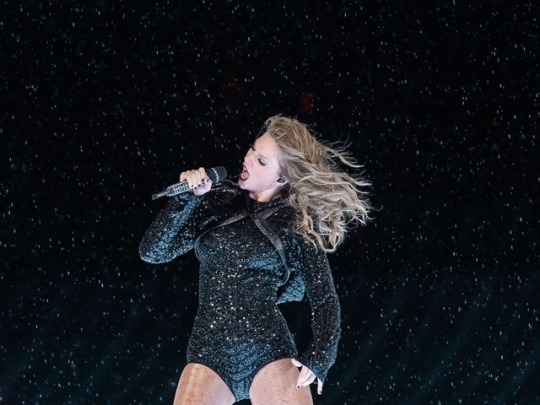
Taylor Swift just signed with a new record label — and in the process, she has continued the PR offensive that she kicked off earlier this year with her first entrée into politics.
Swift is leaving behind her longtime label partner Big Machine Records, which has released all of her albums to date, to partner with Universal Music Group’s Republic Records (also the home of Drake). But the focus of the media narrative around Swift’s decision to change labels has less to do with the move itself and more to do with the stipulations that Swift attached to it.
There’s a lot of music industry jargon in Taylor Swift’s new contract, but here’s what it means
There are two big stipulations in play here.
First, Swift will own all of her own master recordings from now on. That means she’ll own the copyright on the recording of any music she makes, which in turn means that she’ll have more control over where her music is used, and she’ll get a bigger cut of the profits. Big Machine Records will retain ownership of the master recordings of all her previous music, so this clause only applies to music Swift makes going forward.
Second, Swift has made it a condition of her contract that if Universal Music Group sells its Spotify shares, the label will distribute some of the money from that sale to all of the artists it represents, “non-recoupable,” meaning it won’t count against their advances. It’s a huge commitment from UMG that, until Swift’s deal, was far from assured.
UMG owns a 3.5 percent stake in Spotify, estimated to be worth $850 million. The label hasn’t sold any of its shares yet — but other record labels have. As Music Business Worldwide explains, earlier this year, Sony sold about half of its 5.7 percent stake in Spotify for $768 million, and Warner Brothers sold 75 percent of its shares — a less than 5 percent stake — for $504 million. The result was a huge influx of cash for both companies, and while both said that they would be sharing the money with their artists, Sony artists ended up seeing a lot more of it than Warner Brothers artists did.
That’s because the two labels took different approaches to how they passed that money along to their artists. It’s also why Swift’s deal is important for both her and her fellow artists at UMG.
When an artist signs with a music label, the label advances the artist some of the money it thinks the artist will bring in. Essentially, if an artist signs a $3 million contract, the label is saying, “We’re pretty sure you’ll earn $3 million in royalties in your first year of sales, so here’s that money early.” But that means the artist doesn’t get any more royalty payments until they’ve earned back that $3 million. (You can read more about how advances work here.)
Whenever an artist hasn’t yet earned back an advance, they have what’s called “an unrecouped balance” with their label. As far as the label’s accounting books are concerned, the artist owes the label money.
So when a label sells Spotify shares — which means a big payday — it’s got two possible ways of sharing that payday with its artists. It can either count the money toward any unrecouped balances, or it can choose not to.
Sony decided that when it shared its Spotify money with its artists, it was going to ignore any unrecouped balances and send them the money directly, without applying it to their advances. Warner Brothers did the opposite, and applied the Spotify money to artists’ unrecouped balances before passing any of it along. In practice, that meant Sony artists got a big paycheck out of the Spotify deal, but the only thing that a lot of Warner Brothers artists got was the promise that they were a little bit closer to seeing an actual royalty statement someday.
No one knew exactly which road UMG would take when it eventually sold its Spotify shares — until Taylor Swift announced her new record deal. Now, UMG has committed to taking the Sony road rather than the Warner Brothers road. That means the label’s Spotify money will go directly to its artists, right away.
“As part of my new contract with Universal Music Group, I asked that any sale of their Spotify shares result in a distribution of money to their artists, non-recoupable,” Swift explained on Tumblr. “They have generously agreed to this, at what they believe will be much better terms than paid out previously by other major labels. I see this as a sign that we are headed toward positive change for creators — a goal I’m never going to stop trying to help achieve, in whatever ways I can.
A unified theory of Taylor Swift’s reputation
Swift’s new record deal is the latest entry in her public image rehabilitation
For Swift, this move is a public relations coup. It solidifies her position as a power player in the industry who can single-handedly set norms, and it simultaneously continues the narrative of Swift as a plucky underdog artist, fighting for her fellow musicians against the corporate greed of record labels.
Swift has been fighting that fight since 2014, when she removed all of her music from Spotify’s library in an act of protest against the platform’s low streaming royalties. It came up again in 2015, when she publicly tussled with Apple Music over its royalty payments. And again in 2017, when she returned her music to Spotify after it adopted a “windowing” policy, wherein newly released music would be available only to paid subscribers for a specified window of time. (That move also let Swift conveniently steal some spotlight from Katy Perry, which was just gravy.) There’s no reason to think that Swift is insincere or uncommitted in this fight, but the fact remains that it is consistently good for her image and generates flattering headlines for her.
And Swift seems to have been courting flattering headlines for the past few months. Her image took a major hit in 2016, when Kim Kardashian published a video that seemed to catch Swift in a messy, public lie about Kanye West, and the ensuing fallout lasted through the release of Swift’s 2017 album Reputation.
But as Kanye West has spent more and more time wearing a MAGA hat in public and saying that slavery was a choice, Swift has begun to strategically position herself as someone who is easier to like than Kanye West. She’s stopped keeping her head down, as she noticeably did even through the release of Reputation, and stepped more firmly into the spotlight than she has at any point since 2016. Kanye West is losing, which means Taylor Swift has the opportunity to win again.
After pointedly refusing to discuss politics for most of her career, Swift stepped forward in October to call on her young fans to vote, endorsing two Democratic candidates in her home state of Tennessee. Swift’s candidates lost, but the voting advocacy site Vote.org did report a massive and measurable surge in the number of registrations it got from young people following Swift’s call to arms. “Thank God for Taylor Swift,” the site’s communications director Kamari Guthrie told BuzzFeed News.
And the day after Swift told her fans to vote, she opened the American Music Awards with a pointed rendition of “I Did Something Bad” — a song that is almost definitely about Swift’s feud with Kanye West and Kim Kardashian. The subtext of the performance was clear: “You backed the wrong horse in that fight, America.” Taylor Swift might have lied in public, but she’s not about to go on TMZ and talk about how much she loves Donald Trump. Instead, she’s suggesting, she’s going to endorse some Democrats and fight for the little guy.
Two years after her spectacular defeat at Kim Kardashian’s hands, Taylor Swift appears to be decisively winning her war with Kanye West. And by now, she is such a savvy player that she can turn something as simple as a record label switch into a formidable weapon against him. All of which means that as far as reputations are concerned, Taylor Swift is a winner again.
ts1989fanatic why do these stories always have to keep rehashing the Kartrashian lies.
5 notes
·
View notes
Text
Disney Afternoon History Part 1
Disney Afternoon Part 1
Transcript of: https://itunes.apple.com/us/podcast/the-look-back-machine/id1257301677?mt=2
[music]
0:00:06 Speaker 1: Arthur Herbert Fonzarelli, The Fonz, was the pinnacle of cool for a generation. The leather jacket, the jukebox and "Ayyy". And in 1981, he hit the cultural height of fame with his own Saturday morning cartoon show. Unlike, say, Mork & Mindy in which Robin Williams was limited by the constraints of reality, there's nothing inherently animated about Happy Days, but that wasn't a deterrent for the Academy Award winning studio Hanna-Barbera, when they created this.
[music]
[video playback]
[music]
0:01:19 S1: The animated Fonz didn't just jump the shark, he time traveled so he could ride a brontosaurus. Jumping the shark seemed baked into the premise of many of the cartoons from this period, because they started as a gimmick and only kept gimmicking. Besides a big hit with The Smurfs, this period, for Hanna-Barbera, was littered with Scooby-Doo knockoffs.
[video playback]
0:01:49 S1: The studio that once produced The Flintstones, Quick Draw McGraw, Huckleberry Hound, Yogi, Snagglepuss and The Jetsons was producing uninspired paint by numbers replicas. The parity was at its peak when the animated Fonz had a supporting role in Laverne & Shirley in the Army. The cartoons essentially amounted to barely animated fan fiction. For years, art and commerce clashed on Saturday mornings and commerce had a far better record. And yet, only four years later, a cartoon would raise the artistic bar for the medium, and strangely, it would be based on the currency of kid commerce, candy.
[music]
0:02:34 S1: Animated television started in 1949, as it should, a talking rabbit wearing a suit of armour, riding a horse toward camera. It was the spectacular opening of Crusader Rabbit, whose other animation wasn't nearly as good as the opening. It was designed, with little to no movement, by Alex Anderson, who was inspired by Baby Weems, from Disney's behind the curtain feature, The Reluctant Dragon. In the Baby Weems segment, there are story boards with a tiny bit of motion included to keep it from being entirely static. There are quick cuts, camera movements, and narration to carry the short all the way to the end. After seeing this, Anderson believed he could use this barebones style to have notoriously expensive animation make financial sense for television. He partnered with Jay Ward and the two created The Crusader Rabbit shorts for NBC. The shorts were successful and ran for several years, which sparked Anderson and Ward to create the cartoons that they were famous for, Rocky and Bullwinkle and Dudley Do-Right. Despite their massive success, their partnership didn't end well. In fact, it got worse, even though Ward was already dead. Alex Anderson, animator.
0:03:45 Speaker 2: I was surprised that... To discover that my 50% equity in the characters had disappeared and was not being honored. Yeah, I went to court, sued, got them to acknowledge that I was the creator. I learned about it at his funeral, when I was doing a eulogy and the names of several of us who were doing a eulogy were indicated, and it said Alex Anderson, creator of Bullwinkle and Rocky. And somebody had scratched it out and said, "An artist who worked for Jay Ward." And I thought, "Well, what's this? Why is this in?" Then I started checking and I found that, indeed, Jay had registered the characters in his name.
0:04:31 S1: The show's limited animation technique was taken by Hanna-Barbera and updated with better animation to produce several hits like Ruff and Reddy, Huckleberry Hound, and eventually the Flintstones, a primetime hit for ABC in 1960. Hanna-Barbera went on to an unprecedented run of hits and non-hits, but when it came to television animation, Hanna-Barbera was in a class of their own. However, things fell off in the 1980s. In those years, The Smurfs were their only big hit. This left a gaping hole in the market that was filled by cartoons based on toys, like GI Joe and He-Man. But their ratings were drooping as well. And then something happened that had never happened before. During the entire history of television animation, from 1949 to 1984, the most famous animation company in the world never produced a single animated television cartoon. That was about to change with a single brunch, but the events leading up to that brunch showed an American titan in peril.
0:05:36 S1: Walt Disney was dead, to begin with, he died in 1966. But he was still running the company from his grave. After all the company's internal motto was, "What would Walt do?" But hypothesizing about what a genius would do is not the same as having the genius actually there. Because when it came to the question of "What would Walt do?" the company wasn't guessing correctly. Even though it was 1984, its last motion picture hit had been The Love Bug, in 1968. And so, because the company no longer had Walt, it figured the next best thing was Ron Miller, an ex Ram quarterback and Walt's son-in-law, who became CEO in 1978.
0:06:16 S1: The best quote to describe Miller's tenure was his own, "Because of Walt, because of his influence, I second-guess myself all the time." Miller wasn't only contending with Walt's legacy, he was also dueling with E. Cardon Walker, who was the chairman of the board. Walker had been one of Walt's right-hand men. He was in charge of advertising and public relations. And in his tenure, Walker launched the Disney Channel, opened Epcot and Disneyland Tokyo, but he also had peccadilloes that were killing the company. Walker was not in favor of a $1 parking fee. "The parking lot is the first thing the guests see. We have to keep our prices low." And despite having been in charge of advertising, Walker did not believe in advertising or marketing. The Disney parks did not run ads or commercials. For some perspective, the first American newspaper advertisement was in 1704. In 1922, Queensboro Corp buys airtime from AT&T to create the first radio commercials in advertising history. The first TV ad was aired for Bulova watches in 1941, which cost $9. Advertising was not new, and yet, E. Cardon Walker wouldn't do it.
0:07:26 S1: In fact, Walker was even stingy on advertising when it came to the motion picture division. Budgets for advertising were growing since the big blockbuster Jaws. ET had cost $10 million in ads alone, but when Disney's TRON came out, they gave it such a minuscule advertising budget that no one knew the film was even out. The film took a $17 million write-down. While all this was going on, there was another heir to the Disney throne who was dubbed the idiot nephew by Uncle Walt himself, who once said, "My nephew will never amount to anything." Thanks to Walt-think inside the studio, Roy Disney was considered the village idiot. It didn't help that he wasn't the most charismatic individual. John Sanford, director, Home On The Range.
0:08:11 Speaker 3: He had this legacy kinda handed to him, and I think he really took it seriously. But on the other hand, he was just a normal guy who happened to have a ton of money. We were in La Verne, California, I think it was, at this movie theater. Doing a preview for Home On The Range, and there was a Bed Bath & Beyond, and Patty suddenly turns to Roy and says, "Oh, Roy, they've got glasses on sale. Do you mind if I go looking?" "Eh, go ahead, Patty." And Patty runs into the Bed Bath & Beyond and he says, "You know, we need to get new glasses. You know, you've got kids and they break all the glasses. And suddenly, it's 20 years later, and you don't have one glass that matches. So Patty wants new glasses." And he's just talking very frankly like that. And I said, "Yeah, I know that. I know how that goes." And then Patty comes running up. "Oh, Roy. They've got a wonderful set of glasses that are on sale. Let's go in and get them." And Roy goes, "Well, I don't wanna carry them all over the goddamn mall." And she goes, "Okay. I guess we'll get them later." [chuckle] It was just fun to watch them, 'cause it was like... Reminded me of watching my grandparents bicker.
0:09:12 S1: Roy didn't like his role at the company, nor constantly being at odds with Miller, so Roy left in 1977, but remained on the board. From afar, he watched the animation division go to hell, which was once the company's crown jewel. On Miller's watch, the Fox and the Hound was almost torpedoed, when soon-to-be-legendary animator Don Bluth left the studio after run-ins with Miller and the executives, and Bluth didn't leave alone, he took 15 animators with him. At the time, Ed Hansen, the head of the animation department, said this, "The whole animation department could have gone under at that time. As it was, we made it, but the release of the film has been delayed, and we lost half of our creative staff." Bluth had his own thoughts. "The thing that would help Disney the most is to have a living profit, not a committee. They need somebody who knows and cares about animation. They won't roll up their sleeves and plunge in like Walt did. They wanna hire somebody to do it. It just doesn't work that way. I think they've found that out now. It was a matter of constantly bumping up against Ron Miller and the older guys, people who wouldn't relinquish authority and who wouldn't make a decision except by committee. It just doesn't work that way. They had some of the best talent in the world there. But if a production head doesn't have talent or push, you won't make it."
0:10:29 S1: In spite of everything, the company did have some good news. Miller had gone against the Disney Brain Trust and was making adult fare with his newly-created Touchstone Pictures, and he had a huge hit on his hands with Ron Howard's Splash, on March 9th, 1984. It just also happened to be the same day that Roy Disney decided to resign from the board. Roy Disney's resignation set off a chain reaction. Corporate raiders tried to take over the company. Miller was forced out. Walker retired. Roy took a vice-chairman and chairman of animation role. Michael Eisner became CEO and Chairman of the Board. Frank Wells became President, and Jeffrey Katzenberg took the role of Walt Disney Studios chairman, and the corporate raiders were turned away. Eisner and Katzenberg had blazed a trail at Paramount and became the talk of the town for their track record and by throwing their names into the press as much as humanly possible. Meanwhile, Frank Wells had been vice chairman of Warner Brothers. They set about using their industry experience to transform a company that was run like a mom-and-pop shop.
0:11:33 S1: The fourth member of their team was assets, and there were assets galore that Disney simply wasn't utilizing to their full potential, or at all. The Walt Disney Company was like the drowning man in the flood who doesn't accept help from a rowboat, motorboat, or helicopter because he believes God will save him. The man dies, and he meets God and asks, "Why didn't you come to my rescue?" God says, "I sent you a rowboat, motorboat and a helicopter. What do you want from me?" Now, Eisner, Wells and Katzenberg would take the rowboat, motorboat and helicopter to the promised land. Under their leadership, the company began advertising its parks. Attendance rose 10%. They raised the price of admission, which led to hundreds of millions of dollars into the company's coffers. Eisner releases Disney classics on home video. It was initially sacrilegious in the company, but money talks. Cinderella alone made $180 million in revenue. Animation was losing money, so they thought about shutting it down. But Eisner didn't wanna piss off Roy, so they kept it around. It was a smart choice because Roy was a little bit more cunning than he seemed. He was no Richard III but he'd just usurped his own brother-in-law. And because Eisner would later fail to keep him happy, Roy would take out Eisner decades later. Roy might have been treated like Fredo, but he was secretly Michael Corleone.
0:12:57 S1: But that was a long way off, now Eisner was simply basking in his good fortune. "Such a bounty has fallen in my lap. Every day a new asset falls out of the sky. The real estate is just gravy, there are 40 unused acres next to Disneyland planted in strawberries." To re-emphasize his life on easy street, he was drinking a milkshake when he said that. And of course, there was another blue-ocean opportunity for Eisner to slurp up, animated television. On Eisner's first day at the studio, he announced he wanted to have a Disney TV cartoon on the air in 10 months.
[music]
0:13:35 S1: Willie Ito, animator.
0:13:41 Speaker 4: We knew internally at Disney that things are gonna start happening. And so, one day, they had all of the Burbank employees meet in the backstage set, we had a big open set area and everyone from the studio was there. And Michael Eisner was introduced and the whole bit. Then he gave us the overall picture as to what to expect in the future now that the new regime is here. And one of the things he commented on was we're going to alt Hanna-Barbera, Hanna-Barbera.
0:14:20 S1: According to the New York Times, he asked someone to find them the six most creative people at Disney to figure out how to make Disney TV animation work, which leads to the aforementioned brunch that started it all. One of the creatives brought to the table was Jymn Magon. Magon had produced story records for Disney music for eight years. Why bring a record producer, with no animation experience, to the table?
0:14:41 Speaker 5: I ask myself that every morning when I wake up, [chuckle] it's a bit amazing. Well, one of the things that Michael Eisner did before he was at Paramount was... I think he was head of ABC children's programming, I think he told me that he was the guy who actually bought the Scooby-Doo franchise from Hanna-Barbera, which of course, is still running after all these years. So, that was very successful, and I think he always had a soft spot for TV animation, and so when he took over the company in '84, one of the first things he wanted to do was to start a TV animation department. So, being new to the company, I think he just looked at different departments and said, 'I wanna meet some of the bright people that are doing things here at the company.' And we had just made a lot of money off of Mickey Mouse disco and a lot of projects that were new at the time in the record business. And so Gary Krisel, who was the president of Disneyland records, and myself, were invited over to Michael Eisner's house on a Sunday morning. Michael Eisner invited a bunch of people... Not a lot, I think there were about 12, in all, that were at this meeting in his living room on a Sunday morning in Bel-Air. And I had never been to Bel-Air, never been invited to someone's house up there, [chuckle] so, it was very fancy-shmancy for me.
0:16:01 S1: And there was also Tad Stones, who began his work at Disney in 1974. He was an uncredited animator on the Fox and the Hound as late as 1981. Now, he too was at the brunch.
0:16:13 Speaker 6: I was in Features, I eventually moved into Story, went to Imagineering and help design rides for Epcot Center, and back in charge of some Epcot Center documentaries that then never happened. Eventually ended up back in Features, I'm not sure they knew what to do with me. And that's about the time management changed, with Michael Eisner coming in and Jeffrey Katzenberg and those guys. And I was... Along my trials through the company, I had done some animation development for the guys over in the merchandising side of things 'cause they felt like the only way to really sell toys is to have some cartoons on TV. You can't wait for these features that come out every four years, or so, 'cause that's what it was at the time. Anyway, those same guys were pitching TV animation to Michael Eisner. I was actually on vacation, but I got a call that said, "We know you're on vacation, we know it's gonna be Sunday, but would you mind coming to Michael Eisner's house to talk about television animation?" So I was like "Yeah [chuckle], I think I can make time." Went there with like 10 people. These were the guys who basically I had worked with before and they were impressed with what I had done. And from the beginning, Michael Eisner felt like Disney is the top in animation, and it should be in every area that animation is in, it doesn't mean that television animation is going to look like feature animation, but it should be the best TV shows in animation on TV.
0:17:39 S1: Jymn Magon.
0:17:40 Speaker 7: Michael revealed that he wanted to start this new department, he wanted us to come up with some ideas and whatnot, and he actually came up with an idea himself, which was his kids who were in the other room eating cereal in the kitchen, in their pajamas [chuckle] on Sunday morning, had just come back from camp and I guess they had told him that they were eating these really cool candies called Gummi bears. And he said, "I just like the sound of that." And he looked at me, which was really weird, 'cause he didn't know me at all, and he said, "Make me a show called Gummi Bears." And I thought, "Why'd he pick me out?" [laughter] And I said, "Oh yeah, cool, great."
0:18:20 S6: So I pitched an old project, Mickey and the Space Pirates, they liked it a lot, but then they said, "No Mickey... We wanna make sure we can pull this off. Mickey is too precious." So there was a lot of respect there going in. No one was prepared to actually pitch shows. I had that artwork left over from stuff I had pitched to the merchandising guys, who were in the room, but it was kind of more feeling what Eisner wanted.
0:18:43 S7: But Tad was at that meeting, and he didn't come over for probably a full season to TV animation, but he eventually did, and thank God he did, because we worked on so many shows over there. But yeah, he was at that initial meeting, and he had a lot of great ideas. But he didn't come join us right away. And afterwards, we all met at a coffee shop, in Brentwood, and I remember us all kind of looking at each other, like, "This guy's crazy. Who wants to do a show about characters that get eaten every week?" [chuckle]
0:19:15 S6: And I remember saying, "Well, he seemed pretty sharp and respectful of animation, except for that idea about Gummi bears, that's like doing pepperoni people, or something. I don't know how to do that".
0:19:25 S7: So I think we all kind of felt like, "He's a busy man. This will all go away". It was about two weeks later I got a call, "So where's my show?" "Well, I'm writing it now", [chuckle] and I typed up something and it was horrendous, but it was the beginnings of development. And so I ended up, at one point, doing two jobs, I was still doing my record producing, but I was also developing two shows, both Wuzzles and Gummi Bears for Disney. And we didn't even have offices for the department back then. I remember we went over to a fellow named Lenny Ripps. Lenny Ripps was responsible for creating Full House and he was under contract at Disney for the time, and Lenny said, "Come on over, let's talk about this." And so there was Gary Krisel, who was going to be the president of the new division. So he was doing double duty at the same time, with records and TV animation. And Michael Webster turned out to be our office manager, and there was me. And that was the four of us sitting there around a card table in Lenny's office kicking ideas around. And that's how that department started, very bizarre and very humble.
0:20:47 S7: I remember having to take pitches from people and we were discouraged from doing that, because Disney became a big company and had deep pockets, and of course, people would come in and pitch, and then say, "You stole my ideas." And so pretty much kept to ourselves and almost all the development was from inside, from people on staff. So we didn't... It was in the time of [0:21:10] ____ and other people pitching their ideas from outside. There was a travel office for Disney across the street from the studio in Buena Vista and it was just a crummy old office building. And I think that's where we put Art Vitello when they brought him in to run Gummi Bears. And they were just sort of makeshift offices, they put some of the artists on the back lots, above the tea room. We were just spread all over. So we all became sort of bastard children.
0:21:41 Speaker 8: This is the great book of Gummi.
0:21:45 Speaker 9: What's in it?
0:21:46 S8: Well, we really don't know.
0:21:49 S6: Well, they actually developed Gummi bears kind of on a candy basis with a villain called Licorice Whip, I think. And they were actually gonna have the Gummi bears give dental hygiene messages at the end of every show. That went nowhere, and they threw it all out and came up with what was on the air.
0:22:06 S1: Instead of candy, the show got a complicated 500-year-old plus mythos. The Gummi bears were descendants of the great gummies, tasked with protecting all things Gummi from human greed and exploitation.
0:22:18 S7: I was very fortune that I got to work with two of my childhood heroes, which were Rocky and Bullwinkle. I found myself staring at Bill Scott a lot because besides doing all the voices of George of the Jungle and Tom Slick and Bullwinkle, he was a fantastic writer, and he had written all of these commercials for Quaker Oats, Quisp and Quake and Cap'n Crunch, and stuff like that. He once said to me, "You know the old story, Jymn, about how do you make a statue of an elephant? Well, you start with a block of granite and you chip away everything that doesn't look like an elephant". He says, but writing a script is different. You start with nothing, and you chip away until you have a story. [chuckle] And I thought, "Oh, that's interesting. You don't even have the rock to work with." [laughter] And I just thought he was a delight. He died after the first season of Gummi Bears and that was just devastating for us.
0:23:16 Speaker 10: Welcome to the land of Wuz, where nobody is like anybody you've seen before. The people who live in Wuz are called Wuzzle, naturally. And as you've probably guessed, Wuzzles are a little bit, you know, different.
0:23:33 S7: I didn't stay on Wuzzles. Once we got the two shows sold, I stayed exclusively on Gummi Bears. But in the early days, we were trying to put together these shows to pitch to the networks. And we had a show called Jumble Isle, the idea was that there were these animals that were jumbled up, and there were two of each animal. And, lo and behold, it turns out Hasbro has... Already has a project called The Wuzzles, which they had plush animals at the time. And, again, I don't know the ins and outs of the business side, but it was decided, "Well, why create these things when they already exist and let's just do a deal with Hasbro to take our development and put it with their characters." which I'm not even sure they had much of a back story. But once the deal was made, then we'd develop them into talking, breathing, and living characters. [chuckle] And so what happened was that Wuzzles then went on to have its own production department, just like Gummi Bears had, but like I said, my involvement at that point, I had dropped out after it sold to CBS.
0:24:39 S1: Besides Wuzzles and Gummi Bears, Disney television animation had one more venture in its early years. Fluppy Dogs was the first animated Disney feature for television. The show revolved around the Fluppy Dogs going through an interdimensional portal to Earth. It got a 5.3 rating on November 27th, 1986. The numbers were so low that it killed off the idea for a television series based on the special, and with that, Fluppy Dogs was over before it even really got started.
0:25:08 S7: Fluppy Dogs was sort of the... I kinda call it the albatross around the neck. [chuckle] It was a cross to bear. And I think everybody in the department worked on it at one time or another. And so what happened was that we were gonna do this Fluppy special and it was going to be the kickoff for a series and it just never took off, it never... It just never happened, and I think we were all kind of glad it didn't go any further. I mean, they were cute, but I just remember it being like, "Oh crap, I don't wanna go on another meeting about Fluppy Dogs." [chuckle]
0:25:49 Speaker 11: We've been to so many worlds. I don't know how long it's been since I've seen my family.
0:25:55 Speaker 12: You can talk!
0:25:56 S1: I wish you wouldn't keep saying that, I've been talking since I was 3.
0:26:00 S1: I'm sorry, but I mean, talking dog? Fluppy, and doorways to other worlds? I just wanna find one world, my world.
0:26:12 S1: Disney was going in cheap in terms of the price for pristine Disney Animation. Disney knew they couldn't afford movie quality animation and expect to make a profit. But Disney still spent $285,000 on each episode of Wuzzles. That was double what Hanna-Barbera would spend. It was so much, in fact, that it was $35,000 more than it was being paid by CBS. Why spend so much? The reasoning was simple, if it looked better than everything else on TV, then the characters could become part of the parks, and because of the success rate of their recent films, Disney needed characters more than ever. Willie Ito, animator.
0:26:51 S4: When I was at Hanna-Barbera, Michael Eisner was the VP of Children Programming at ABC. So when we were doing presentations and they would fly out here to review what we were working on, Joe would ask us to come in on a Saturday, sit at our desk as if we're busy bees and then bring Michael Eisner and his people through, and says, "Hey, here, look, they're all working on the new show idea," and then see the presentation. So I knew of Michael Eisner. And so, when he says he's gonna hop Hanna-Barbera Hanna-Barbera, I'm thinking, "Oh my gosh, I came back to Disney to get away from this rat race, and I hope we're not gonna be all caught up in the middle of it." Well, to make a long story short, a few months later, a fellow named Michael Webster, who I worked with in animation, was hired on to be production coordinator for the newly forming Disney TV Animation. Michael got with me and says, "How would you like to come back to animation?" I said, "Michael. No, please don't, don't do this to me. I'm perfectly happy. I'm actually in my new career back at Disney." And he says, "Well, we're gonna have a little boutique operation. All we're gonna do is be responsible for the scripts and we'll do story boards and maybe character design, but otherwise, everything is going to be farmed off to a production house. So we're just gonna have a little boutique operation and let me dangle this carrot in front of their view."
0:28:29 S4: What it was is, he says, "I know you used to make a lot of trips to Japan and Asia, and you know a lot of the production houses over there. So I wanna send you there and meet with these different companies and talk business." And he says, "Well, we'll be sending you first class. You'd stay at the Imperial Hotel in Tokyo." And then all that. How could I resist? Plus, the fact that there was a handsome increase because of my position, would be like an executive thing. "Michael, I'm gonna give you three months. That's what I could promise you." So, "Okay, that's a deal." I did the pilot storyboard for a two-minute pilot. The soundtrack was recorded. They cut the exposure sheets, and the whole bit, and with those two copies under my arm, I flew to Tokyo. As I was registering, this American gentleman approaches me, "So are you Mr Ito?" I say, "Yeah." And he says, "Oh, hey. I understand you're here to make pilot films for your fledging Disney TV animation." I said, "Yeah, I am. You could talk to me initially, but the decision will be Michael Webster, who will be arriving here in about half an hour."
0:29:50 S4: So we sat in the lobby, having a cocktail, and then Michael shows up and he's at the desk and I said, "Well, there's Michael now." So, well, we flag him over and he says... The fellow talking to us says, "What we wanna do is we wanna throw our hat in the ring. I understand you're gonna be talking to people at Toei Animation in Tokyo, then you're gonna be flying to Korea, and you're gonna be meeting with Steve Hahn at the Korean studio." I said, "Well, we only have two sets of soundtrack, exposure sheets and copies of the layouts and storyboards." He said, "No problem, they can make copies of all that." "So, okay, what do you think, Michael?" And Michael said, "Yeah, sure, why not?" So we awarded them to also do a pilot. Three months later, the three studios submitted their two-minute pilot. So the three pilots came in. We all go in the sweat box, all the executives are there, I think even Roy Disney Jr was sitting in on it, and all of the newly-appointed executives of the newly-formed Disney TV Animation.
0:31:02 S4: So we sit there and, number one, okay, number two, then number three, then the lights go on, and then now we have to say which one we liked, and it was unanimous. We liked this one, say, number two. Well, it turned out that that was produced by a company named Tokyo Movie Shinsha. It had nothing to do with the other two that we submitted, but this one had the rich, full animation and all that. So they got the contracts. So TMS is the producing company. TMS, they later did the Little Nemo in Slumberland feature also, and so they had access to a lot of young Disney animators with full animation training to work on their project. As a matter of fact, even that two-minute pilot, they sort of farmed out some of the animation to Disney animators, that's why it showed such quality and it beat out the Koreans and the Japanese studio.
0:32:08 S4: They cheated, but, in essence, they... Disney kept striving to get the utmost in animation quality, which is good, because that was one of my concerns. If Disney gets into TV animation, are they gonna lose their integrity by just schlocking it on, doing limited animation, and all that, but the quality is there.
0:32:34 S1: Jymn Magon.
0:32:35 S7: I remember we did a lot of tests with other studios. We ended up with... At least for Gummi Bears, we ended up with TMS, Tokyo Movie Shinsha, and I had to remember, when I was really used to looking at hamburger sort of animation, which is you move across the proscenium left to right, the background that keeps repeating, and that's sort of what we grew up with and were used to. And I remember the first episode of Gummi Bears, I saw Sir Tuxford ride his horse into camera. The horse came to camera, he did a full turn around, which you'd never saw in TV animation, it was like, "Holy cow! Look at what just happened!" And it was a real leap in the animation quality, and I remember talking to Karl Geurs, who was working over at, I think he was at FilmNation at the time, and he eventually came over to Disney to do the Winnie the Pooh show. And he said everyone in other studios was talking about, "Did you see what Disney did on Saturday morning? Oh, my God!"
0:33:38 S7: So the quality really raised the bar. Now, true, it wasn't feature animation, but it was a big jump in quality. Finally, they put us all together over at the Cahuenga Building, which was on Cahuenga, near Universal Studios, and it just got bigger and bigger as we added more and more people. So, on the one hand, we weren't on the lot anymore. The sort of good news was, nobody was looking over our shoulders, so that department started and grew and made its success sort of off by itself. Nobody was actually sitting down reading, our scripts, and saying, "Gee, I don't think this is very Disney, or I don't think... " There just wasn't any interference because they had other and bigger fish to fry. We went off and sold our first two shows, Wuzzles and Gummi Bears, to CBS and NBC respectively. And it just took off from there.
0:34:29 S1: Willie Ito.
0:34:30 S4: We had our own growing pains within the studio, getting people together, finding a crew, a good animator, story, bit people. And before that three months was up, I could see the frenetic pace. We were moving from office to office because it was like we move in and then they say, "You know, it's not enough room because we're expanding our staff." And I'm thinking, "What happened to the boutique operation? Now we're gonna have a whole staff. And then am I gonna have to do what I did at Sanrio, is manage this crew of people and all that." So I started feeling the pressure of that position, but in the meanwhile, I went back to Carson. And Carson van Osten, who was my boss in consumer products, and I said, "Oh, Jesus, it's the same old thing. Before I get too caught up into it, can I come back?" So he said, "Oh, yeah, there's always an opening for you to come back." So I came back to consumer products, but I stayed with the Disney TV, as far as merchandise and by-products and whatever else, but I was now out of the production rat race.
0:35:55 S1: Tad Stones.
0:35:56 S6: Anyway, I went back to Features, and pitched some stuff, and actually was considering leaving the company, and maybe just freelancing and then going into more, actually, science fiction short stories and novels. I met one of the guys who was then the head of the TV department that was just starting, and mentioned, "Hey, do you have any freelance opportunities?" And he said, "Oh, I don't know if you wanna do that, why don't you come and visit?" And I came to visit their very small building and he introduced me around, he said, "Yeah, Tad may be coming over here." Actually, he said, "Tad would be coming over here." And I just was quiet. I didn't know what he was talking about, but they ultimately brought me over to be the creative manager of the department, in which I was supposed to take pitches and come up with stories, and actually, I was supposed to take pitches more than come up with stuff, but I wasn't geared that way.
0:36:50 S6: And we had a gong show coming up with Michael and Jeffrey, which is you do like a two cents description of a show and they either like it or not. And I think we pitched 22 ideas. I think 18 of them were mine. And it's not like they were fully developed, it was like, "Hey, Trojan Birds and Legionnaire Cats, the city of Troy is up in trees, like Roadrunner and Coyote," and they gong. Anyway, Gummi Bears had been through two seasons, it was run by Art Vitello and created by Art Vitello and Jymn Magon. And Jymn had had no animation experience before that, Disney just said, "Hey, if you want the show, this is the guy who's gonna do it." So there was always a contentious relationship there. And by the third season, NBC said, "We want to change," and they tapped me and Jymn went on to, I think, DuckTales development at that point. Anyway, so that's how I got to Gummi Bears, it was just kind of like, "Hey, you, over here". And that started me story editing and producing.
0:37:51 S1: Willie Ito.
0:37:52 S4: But the question always was, "Well, how come Wuzzles and Gummi Bears, when Disney has such a stable of great characters that they could work from?" But I think initially, they says, "Well, we're gonna be making cartoons for Saturday morning, and that's a lesser market quality-wise, and we don't want to ruin Disney's image by turning out the limited animation with Mickey Mouse and all that, so let's go with new characters." But then the shows were a hit and it started to see that Disney TV was getting some recognition, and so Roy Disney said, "Well, come on, let's... Let's use some of our own characters, that way the market and the kids will gravitate to it knowing it's a known Disney character." So we did DuckTales.
0:38:52 S1: Jymn Magon.
0:38:53 S7: After two seasons of Gummi Bears, I moved over to work on DuckTales, which was a big deal at the time, we were doing this as a syndicated program as opposed to a network program, and it had already been developed, Tedd Anasti and Patsy Cameron were always creating episodes.
0:39:10 S1: Patsy Cameron-Anasti and Tedd Anasti, writers.
0:39:14 Speaker 13: My career in writing really started when I met my future husband, Tedd.
0:39:19 Speaker 14: That would be me.
0:39:20 S1: I was 18 and I auditioned for Walt Disney's new Mickey Mouse Club as a performer, and Tedd was a writer for Walt Disney and chose me at an audition, and I appeared on the new Mickey Mouse Club singing and performing sign language, and then I fell madly in love with him, Tedd, and started writing him love letters...
0:39:42 S1: Didn't spell my name right, though. So, during a union break, I'm sitting on a bench back when I did smoke cigarettes and the guy from the mail room comes by and goes, "Is your name Ashy?" I went, "No, no, it's Anasti." He goes, "Well, I think somebody's been writing you a bunch of letters, we've got in the mail room, didn't know where to deliver them." I discovered that she has an interest in me.
0:40:08 S1: Yeah, and he said... When he called me, he said, "You're really funny." He thought my love letters were funny, and he said, "I think you could be a writer." And Tedd showed me Micky Mouse Club scripts and taught me how to write scripts, and then I moved up here to Los Angeles and my first job was a freelance for Hanna-Barbera on a show called Casper and the Space Angels, and I freelanced for a couple of years and then became a staff writer on The Smurfs, and I was the first woman staff writer at Hanna-Barbera, as well as their youngest at the time at age 23. And then a little bit later, Tedd started writing for The Smurfs and we became story editors together. Margaret Lush, who approved my very first cartoon episode on Casper and the Space Angels, Margaret Lush, noticed that we had fun together when we wrote, not knowing we were dating or anything. And Margaret, she teamed us up as story editors on The Smurfs and then Tedd and I wrote on The Smurfs for three years, in which it won one Emmy. And then the next show that we did was DuckTales for Walt Disney.
0:41:16 S1: DuckTales was based on the Carl Barks comic book stories about the world adventurer ducks of Duckburg, Scrooge McDuck and his nephews. The comics were a hit back in the 1940s and '50s, and their comic adventure styling seemed a perfect fit for what Disney envisioned for its television programs. Barks was never really consulted, said Tom Ruzicka, associate producer on DuckTales. He continued, "Although the show was initially based on the concept of doing Scrooge McDuck and the nephews, we discovered that a lot of stuff that made wonderful comics wouldn't translate into the '80s, or into animation. So we started evolving new characters and other things to contemporize the show. As we did that, the stories got further and further away from the comics, although a few episodes are lifted right out of them."
0:42:03 S1: We had a meeting with Gary Krisel, where he showed us two projects, DuckTales and a special called Fluppy Dogs, and we chose DuckTales. That was a good choice.
0:42:16 S1: They hired us because they knew it would be a big show with lots of episodes. We got known as people who could do 65 half hours in a season and stuff like that.
0:42:25 S1: Or 90 minutes on The Smurfs. Our first year as story editors, we'd never story-edited before, it was 90 minutes, because it was such a hit, or on DuckTales, it was 65 half hours. People would say, "How come you're not freaking out?" Well, I just knew we would get it done, but Tedd, his energy and his dedication, I credit a lot of it to him.
[video playback]
0:43:18 S1: They were definitely based on the Carl Barks books, but the main thing we had to do was, again, bring the heart, bring heart out.
0:43:26 S1: Well, one day, certain executives said, "You're not following the books very closely." And we said, "We have 65 episodes to do and Carl Barks only wrote 16, and they're not that different from one another."
0:43:41 S1: Jymn Magon.
0:43:42 S7: The idea came up, "Why don't we do a mini-series that we can cut into a movie we can then show as a pilot, a kick off to the series?" So what was really fascinating, for me, anyway, was, even though the show was already in production, was to do the episodes that set the tone for the series. So the first thing that the public was gonna see was this five-parter, and we just had so much fun putting that together, because they had to work as five separate episodes, but it had to work as an overarching big story as well, so that it could be shown as a movie. And I have a picture of Mark Zaslove and Bruce Talkington and I standing in front of this chalkboard, we have this gigantic story outline in front of it of all five episodes. It was like, "Are we gonna be able to do that?" And it turned out spectacular, I was very happy with it.
0:44:32 S1: A lot of the episode went to Japan, the earlier ones, and the animation was just exquisite. It was so exciting to have the films come back, especially the earliest episodes. Wow, dazzling animation, like A-team animation. They had a party and they showed one of the fully realized episodes, it was called Duckman of Alcatraz, it was really, really sensational. But I remember even Tedd saying, "I didn't really realize how good this was." I think that no one really understood that, I don't think I did until the episodes started to come back with all the music, fully-animated, everything, and then when it debuted, it was a really, really big smash.
0:45:16 S1: Meanwhile, the LA Times' Charles Solomon was not impressed by DuckTales. In fact, he found it rather distasteful. "Mickey Mouse, Donald Duck and other Disney cartoon stars owe their popularity and longevity to the fact that they were so well-animated, they ceased to exist as drawings on screen and emerged as clearly recognizable characters. By breaking with that tradition in DuckTales, the new management at Disney Studio is risking far more than the $20 million it has invested into the series. At stake is a name that has been synonymous with the best in animation for 60 years." But the risk of ruining their name in animation was well worth it, because the show was gigantic. DuckTales was big, really big. The series was in 56 countries and seen by 25 million kids each day. It went so far that it doubled the ratings of kids shows that it was in competition with. Even though each episode cost $275,000, Disney more than made its money back, and Disney television animation had finally truly arrived. Tad Stones.
0:46:20 S6: Well, DuckTales was a huge thing, because a Saturday morning show is just... Your first order is 13, and then maybe 10 the second season, and eight, and eight, and then you're lucky if you're still on. DuckTales, suddenly, it was like, "No, we're doing 65 episodes." George Lucas told us once that DuckTales was to syndication as Star Wars was to movies, I mean, it was huge.
0:46:43 S1: Patsy Cameron-Anasti and Tedd Anasti.
0:46:46 S1: We finished DuckTales and they didn't pick up our contract. The figured, find somebody cheaper, I guess, I don't know.
0:46:53 S1: Well, actually no, let me... I would like to differ with that. It was a smash and that was a wonderful thing for our career. They offered us Aladdin, actually, and we... I think we had always wanted to develop, like kind of be in developing new shows, and when Nelvana offered us vice president of development, we took that, and they were just starting out, kind of, they had done some things, but Beetlejuice really was their first big blockbuster. So I think they did offer us Aladdin after that, and then later, The Little Mermaid.
0:47:28 S1: I was sitting in a restaurant and here are the guys from Disney, the executives, end up sitting behind us, and we were with ABC at the time. When the girls from ABC went to the ladies room, the guys from Disney leaned over and said, "We need you back. We need you back on our show 'cause we can't get anybody that's doing a good job." So we went back and...
0:47:49 S1: Yeah, we spent three years on The Little Mermaid, which was, again, a very, very wonderful experience.
0:47:55 S1: They wanted us for five years, but we said, "Well, maybe just one year at a time." So we stayed there for 14 years, just one year at a time.
0:48:02 S1: Jymn Magon.
0:48:03 S7: I know that I was a big Carl Barks fan growing up, just as a kid, reading the comic book, and so we owed so much to Carl Barks, creating the Beagle Boys and Gyro Gearloose and Magica de Spell, and all these characters. And I felt bad that he never got any credit on the series. So one of the episodes I wrote was based on one of his comic book stories, I actually gave him credit as "Story by Carl Barks, script by Jymn Magon." Because I wanted his name in there somewhere on the series. There were two things that were key to DuckTales. One was Scrooge McDuck was torn between the cold, hard cash and the warmth of his heart for his family, his nephews, that's what was always driving the series, was this man caught between the cold and the heat. The second thing was, young children don't understand money, it's just like the coins, built different sizes, and paper, and they honestly don't have a concept of how money works. But Carl Barks was a genius when it came to, "Well, what do kids understand?" Well, they understand the tactile quality of coins. And so to have a money bin full of coins that you were able to dive into and just swim through like a porpoise, just that's what kids could understand and appreciate. And the fact that he gave Scrooge McDuck that childlike quality to be able to enjoy his money in a very tactile way, I think, was a real breakthrough for the character.
0:49:31 S1: Carl Barks, an except from The Duck Man, an interview with Carl Barks, 1975.
0:49:37 Speaker 15: The office, I think, wanted me to do a Christmas story and so I'm casting around for Christmas stories. I began to think of the great Dickens Christmas story, about Scrooge. It is the classic of all Christmas story. All I did was just peep enough to sort of steal some of the idea and have a rich uncle for Donald. Well, he had turned out to be kind of an interesting character in that first story, and so I began thinking of how to use him again. I guess the fact that he was rich was the thing that triggered all further developments, is just how rich, and the showing of his wealth. I found that that was quite a fascinating subject, just piles of money. It seemed to appeal to a lot of people.
0:50:33 S1: And I just gradually made him richer and richer and then I had to develop a place where he could store the money and all the time, there were the Beagle Boys trying to steal it from him. Those things just grew like building brick walls, you just lay one brick on top of another, and finally, you've got a whole thing built. You can't dive into a pile of money like you would into a snowdrift, so he had to have a trick by which he did. And I don't explain that trick because I don't understand it myself. And he can go out in the desert, and he can smell the presence of gold. Other prospectors would have to dig mountains of dirt before they could find any nuggets, but he can smell them. I think he represents something that nearly everybody wishes they could be, some time in their life, just a little bit too rich.
[music]
0:51:25 S1: Disney had another project that was budding at ABC. Disney had a long, strange history with this character, with lawsuit after lawsuit, but the character was about to become part of Saturday mornings in 1988, with an unlikely candidate to help lead it. Mark Zaslove, writer.
0:51:53 Speaker 16: What happened was I went to Cal Berkeley as a eventually theoretical astrophysics person, but I was also writing at the time, and I had a buddy, we were doing live action. So every summer, he was in UCLA, I was at Cal, we'd come back and we'd write a script or something. And then I wrote my first novel over there, and then it was like, "Well, what am I gonna do also for money?" I was doing magazine work, I worked for Larry Flynt for about seven months, meteoric rise and fall on Hustler and a couple of magazines like that, which was fun.
0:52:25 S1: I used to say, though, I was karmically balanced 'cause I did Pooh and Hustler. By the time anybody even asked about it, it was never a big deal, no one cared, I mean, it wasn't like I was posing or anything, or it was gonna come back and bite them. Not that I couldn't have. Oh, sorry. [chuckle] And I got my first gig in animation while I was there as well. But basically, I went, "I got to make some money." It's like, "Oh, yeah, animation. They need writers." My dad said, "Yeah, maybe try that." And it's like... So I went in, not thinking anything of it, really, and it was very easy to do, and so I was doing some freelance work and I had sent in something... Oh, GoBot, a GoBot script to Jymn Magon, and he went, "Oh, my God, it's the only funny GoBot script I ever read." So I went in, and he'd probably tell you better.
0:53:12 S1: I just had this sort of full of himself attitude, not in a bad way, according to him, but I just look back and it was just kind of funny, 'cause he saw it and he went, "This is really good writing." And I was kind of like, "Well, yeah, of course it is." It was like, "Well, it's animation." I never thought much about it. I learned to very much respect it. I always liked the product, but I was never like a fan of animation because I grew up around it, so it was always the discipline. But you have to understand, my dad was an animator/producer/director, so when I was growing up, animators were guys who were drunk on my living room floor. So I get to Disney and they're all teetotallers, except for a few people. I'm like, "You're not animators. I know what animators look like, and none of you are animators." I had gotten some bad raps there that I didn't do, I was always upset later when people say blah, blah, blah, and you were being blah, blah, blah, and I went, "I didn't do that. If I'd just known, I would have done that." I would have been much more obnoxious. I would have actually caused these problems.
0:54:10 S1: I think I could rub certain people the wrong way, although everybody could. But there was one day where, I don't know why, it was just one of those things where maybe we'd been working too hard, too long, and you're near the end of something, and I started taking tape and I started taping across the hallway. And then somebody threw something on it. It became like a giant spiderweb that stopped the hallway up. And then people started throwing items onto it, so it stuck. And so suddenly there's this whole blockade hallway, and people have thrown knickknacks and this and that. And suddenly, Michael Webster or Tom Ruzicka came by and they just look at me, like, "This is your doing, right?" It's like, "Ah, leave it." And then they walked off, 'cause they knew it was a way to blow off steam. But it was one of those almost MASH moments where you start off doing something silly, and the next thing, the entire place is sort of doing it. But I got nailed for things that other people did a lot. Where they were nicer, and I was more like, "Ah, whatever." I was certainly tolerant.
[music]
0:55:08 S1: And I think ABC wanted a Disney show. And then it became, "What do we give them?" And then Pooh, because they had mechanical rights, I guess, was a safe thing to do. So it was above my pay grade, but I remember that it was ABC wanting, but I think the machinations were, "What can we do that's very Disney that we have?" And then it became Pooh, and then it came down to us. It was funny. I knew it could be really good if we didn't screw it up, and they didn't think I should do it, 'cause I was young and I wore long leather jackets before Matrix. I was, theoretically, a dark character. And so they were questioning me. And I remember sitting at a table. I had to do the entire Bible premise pitch in a three-day weekend, and then go have lunch with Gary Krisel and some other people and explain why this show would be great.
0:55:53 S1: I remember going, "Look, I will bet you a year's salary," and fortunately, they didn't do it. "We will win our time slot, be number one, we'll win an Emmy, I guarantee it. I bet you my whole year's salary." And we did. We were the only show to do that at that time. But it was one of those where you just go, "If you don't screw it up, how can you miss?" The designs are good, great characters. Just don't be stupid. Write really well, and it'll be a good show. I never used anything from the books, because it wouldn't have worked for me. It was always, "How can I become Mill?" And then, "How do I expand that?" For whatever reason, they previewed it on the Disney Channel and then it went to ABC. And then ABC changed their order from 13 to 20-something for the first season. So we were all kinda cranking. That was actually a lot of fun. I loved that show.
0:56:41 Speaker 17: Why thank you, Piglet. It's perfect. What is it?
0:56:47 S1: That was the first time I was in charge of anything, and actually had to have responsibility, and scheduling everything. And Karl Geurs, he was very much pro-what I was bringing to the table. And that was a great learning experience. And it was about professionalism, and a way of looking at things that Karl had without being blighted or too jaded about it. Karl was Winnie The Pooh, just had that sort of attitude. As much as people used to say that he'd walk by and we'd be shouting at each other, I don't think we were ever ever ever angry. We were just loud. We'd circle, "What about this? No, this!" And then suddenly, I guess our voices went up. And people would go, "We walk by Karl's office," and it'd be like, "We hear you guys shouting. Is everything okay?" And I'm like, "Yeah, why? What's going on?" But you couldn't ask for a better person to take you in on your first day. We fell through the cracks at that time. They didn't know we were there, really, 'cause DuckTales was getting up to speed, and I remember, Karl telling me vividly, he goes, "You know, if we're a hit, they're gonna suddenly start caring about what we do, and give us all sorts of terrible notes".
0:57:49 S1: And he was right. Suddenly everybody wanted a finger in it the second season, and we got a ton more notes. "Well, we gotta do this. Is this good? Should we do that? We don't understand this." Anytime you try to do something, whether it's cutting edge, or just very truthful, and I thought the Pooh characters we handled extremely truthfully, they weren't just saying gag-lines. They were saying a line because that's what Pooh would say, or that's what Tigger would say, which is the essence of any kind of good writing, is, "Are you telling the truth?" And so we get people who wouldn't necessarily understand that, so we get notes, and then you'd have to explain it. And then that wouldn't necessarily work. And then it would be weird. I always had a really good relationship with standards and practices, but I remember I wanted Gopher to have a huge cask of black powder, 'cause he's a miner, and he digs, and I wanted to blow the side off of a mountain.
0:58:44 S1: And of course, ABC standards and practices says, "No, you can't do that." And I try to explain why, it's like this, and then kids'll do that. And I go, "I don't think they can get all the dynamite, or black powder." And they're like, "Well, you can do it in fire." And so I thought for a while, and just as a joke, I said, "Well, could you use a thermonuclear device?" And they thought for a while, and they go, "Yeah, that's okay." And so then I brought it to Karl, and Karl thought for a while. And he went, "You know we can't make the bomb look Pooh-ish, so we can't use it." But at least I feel like, "Okay, I got a thermonuclear device approved of for Winnie The Pooh."
0:59:15 S1: There's only one thing left to do.
0:59:18 Speaker 18: You mean?
0:59:20 S1: Yes, Rabbit. We must give Piglet a "staying inside" party. It's like a going away party, only different.
0:59:31 S1: While Pooh was doing well at ABC, DuckTales remained the number one kids show for two years. Luckily for Disney, when the show was finally toppled, it was by Disney's Chip 'n Dale: Rescue Rangers.
0:59:44 S5: We didn't know this at the time, but I think in Eisner's mind, or whoever was in charge of that, felt like, "Let's see how the department goes first, before we start putting our flagship characters on the television." Because when you look at characters like Mickey, and Donald, and Pluto, and Chip and Dale, and whatnot, they were always on the big screen. So to suddenly take them and put them on the small screen, I think it's, you know, "Woah, we've got a big star. Let's not put them on TV, let's put them in movies," kind of thing. So yeah, we needed papal dispensation just to put Donald into DuckTales as a cameo to explain why he wasn't in the series, [chuckle] because he went off to join the Navy and left the nephews with his uncle. I remember we had to get permission to put him in to explain that.
1:00:29 S1: Tad Stones.
1:00:30 S6: I pitched Miami Mice 'cause Miami Vice was on the air. They liked that a lot because of the name. We called it Metro Mice and did a script for it, never went past that, although the villain of the script was a character called Fat Cat. We brought back and the idea of mice detectives came back as Chip and Dale's Rescue Rangers.
1:00:49 S5: We had two characters, two little mice called Kit Colby and Colt Chedderson. They were the original rescue rangers. And every time we would meet with Eisner and Katzenberg, they'd say, "That just is not a home run yet."
1:01:01 S6: And then later on, it was like, "Okay. DuckTales is a huge success. Are there any other Disney classic characters that we should be developing for?" And Mickey was still too precious. Donald made an appearance in DuckTales, he's very hard to animate. Goofy, yes, Goofy has always been the every man, definitely develop a bunch of things for Goofy." And then when they got to Chip 'n Dale, it was Michael Eisner who said, "Put those guys in that show," and Jeffrey said, "Home run." And that was Chip 'n Dale's Rescue Rangers.
1:01:29 S5: And that sort of broke the ice for, "Oh, now we can start to put other characters."
1:01:35 Speaker 19: I guess there's only one thing to say then. Rescue Rangers, away!
1:01:41 S6: I felt like, on Rescue Rangers, we lost a lot from script to screen because, one, we were working way too fast, throwing things together and not being able to follow up on stuff. The schedule was the same. The problem was, on the story side, there was just two of us editing. I literally was working 13, 14-hour days, except for Saturday, it was an eight-hour day, and then Sunday, my day off, was four hours. Those hours were at the studio. It wasn't like working at home.
1:02:10 S6: There was this particular point of contention that when it came time to do the multi-part pilot, we were told that we had slipped the schedule in some way, that we had less time to do the four episodes that were supposed to kick off the show than doing any given four episodes, which made no sense to me. It means we were rushing through the most important thing. So we took our shot at it, and we did what we could. And then they took me off the show and I said, "You know what? That's fine. There's only 15 episodes to go. I got to do the pilot, to set things up, so that's good." But then it turned out they were having people rework the pilot, rewrite it, and they were being given more time to rewrite the pilot than we were given to write it the first time, and that was too much for me, and I was out the door. [chuckle] Disney had certain landmarks in your career, give you a plaque or a ring or a statue. And the two statues I really wanted were Mickey as the Sorcerer's Apprentice and Tinkerbell. And Mickey was at... Hold on, I have it right here... I wanna say 15 years. Yes, I was about to get that. I was two months away from it, and it was like, that was somehow stupidly enough to make me calm down, and went back to work.
1:03:29 S1: Jymn Magon.
1:03:30 S7: It was a very strange time. I was busy trying to develop TaleSpin and we got this call that Buena Vista Television wanted someone to look at the pilot show that he had done. I think it was a four or five parter, just like what we'd done on DuckTales. I think they wanted someone to come in with fresh eyes and punch it up or do whatever, and it was like, "Well, I'm in the middle of doing TaleSpin and whatnot." Okay. So I said to Mark, "Look, I'm not gonna be here to help with TaleSpin. This'll go a lot faster if you help me." So he and I both jumped in and kinda reedited the pilot movie. And then I think we edited a couple of individual episodes that had been in the works during that time. And finally, just threw our hands up and said, "Look, we gotta get back on our project." And I think it went to Ken Koonce and David Wiemers next. So our time on Rescue Rangers was very brief. But, again, I never understood why Tad didn't follow through on that. I think it was some decision high above our heads, and I'm not sure why, so it was just like, shrug, "Okay."
1:04:32 S1: By the year 1990, Disney had invested $150 million in television animation, and by 1995, had plans to invest $400 million more. At this point, the output of television animation was prolific. Katzenberg was quoted as saying, "Each year, we are now producing as much animation as was done in the years 1920-1950 when all the classic Disney cartoons were made." These television animation shows had 22,000 full-painted cels per episode. Other shows at the time, of good quality, were averaging 15,000. Once Chip 'n Dale was another bona fide hit, Disney put plans in motion for television domination. And that plan was simple. It would have a two-hour block of cartoons when kids got home from school. Gummi Bears, DuckTales, Rescue Rangers, and their newest offering, TaleSpin. The shows were expensive, and yet, Disney wasn't even charging the networks for the shows. Instead, the deal was that Disney would retain the six minutes of advertisements to sell themselves. And this worked like Gang Busters. Despite the cost of production and advertising, the Disney Afternoon earned the company $40 million a year for a period of time. But this incredible run almost didn't happen because of one pitch. Jymn Magon.
1:05:46 S7: It didn't last long, but we had a process by which Tad would be developing a show and I'd be producing the show. And then I'd be done, so I'd go into development and he would go into production, and we would sort of flip flop as to what our duties were at TV animation. I was at a point of development, and we were creating this show called B players, and B players, I thought was kind of a clever idea. Came out at the time of Roger Rabbit. So the idea of all these cartoon characters mingling with live action people was popular at the time, so we said, "Well, who's the one character who is a star in motion pictures and then never worked again?" It was Baloo, so he said, "Oh, here's a guy who should be doing more movies, and he's not, he's stuck on the back lot. And along with him, is this kid who turns out to be a nephew, I think, of Mickey Mouse, his name was Ricky Rat, and Ricky had stars in his eyes, he wanted to be as big as his cousin or his uncle, whatever it was. And so the stories were all about Baloo and Ricky trying to convince the powers to be, specifically Michael Eisner, as a character in the show. "But it's too Western. Hey, let us do a space show. Hey, let us... " And then every week, they would be... Try in some way to get into the next gig, in that part of the cast, where all of these other people that weren't working anymore, like Horace Horsecollar, and Clarabelle Cow, and whatnot.
1:07:07 S7: Everytime we pitched it, it just never seemed to stick. And, at one point, Kaztenberg said to me, "If you say B players one more time, I'm gonna throw you out the window."
[chuckle]
1:07:18 S7: Well, it's like, "Well, I guess that project's dead." Everything I'd pitched there had pretty much gone. And so we were thinking, "This is gonna go", but it didn't, we'd stopped dead, and we were stuck, as we had to pitch the next series to all the department heads in Florida, and we had no show. And we had to get into production for the next 65 episodes. And on top of which, it was going to be the linchpin of the Disney Afternoon. And I remember Michael Webster, who was not a fan of mine, poked his head in my room and he said, "You better come up with a new show real quick or it's gonna be Tumbleweed City around here," meaning, we're gonna fire everyone."
[music]
1:08:01 S7: And I thought, "How did this fall on my shoulders, that everyone's future depends on me? Am I that important? And if so, let's see a bigger paycheck, [chuckle] if I'm that important." So it was like, "Oh, scratch head, scratch head, what am I gonna do?" And one of the guys that I had hired at TV animation was Mark Zaslove, and Mark had gone onto fame and fortune by story-editing the Winnie The Pooh Show. And so Mark and I did a lot of talking, a lot of collaboration on ideas and whatnot, and I said "Mark, come in here, I have an idea that I wanna chat with you, I wanna use you as a sounding board. "So what had happened was during DuckTales, one of the early ideas about Launchpad McQuack was that he had a courier service, and that he would fly anything anywhere overnight, or something like that, was his slogan, and so, Scrooge McDuck would use him to send things to crazy places like, 'I need a whale sent to Sea World', [chuckle] in Dubai, or something.
1:09:01 S7: And that never went anywhere, because, eventually, Launchpad became Scrooge's private pilot. So I said, "What if we took Baloo from B players, who's a really good character, I believe in him, and we took this air cargo service of Launchpad McQuack's and kind of glued them together so that Baloo is the pilot and he's got this company, and it's failing because he's a jungle bum bear, and he's got this kid, the typical Disney orphan, like Mowgli, who he's gotta look out for." I said "Now, we're starting to get the dynamic of what drove Jungle Book so well, which was here's a guy who is torn between being a big kid himself, and being a father figure." And I said, "I think there's something there." And so Mark and I kicked it around and we had some drawings made up. And in three days, we had TaleSpin. And we went and pitched it, and it was like home run. [chuckle] So whereas we could pull our hair out over B players for weeks and months, TaleSpin came together really very quickly. And so Mark and I ended up as the producers on that show.
[music]
1:10:12 S1: Mark Zaslove.
1:10:13 S1: He had pitched B players and that got shot down and they didn't have that fourth show to put on, which became The Disney Afternoon. I gather it was a $2 billion pitch, eventually, that's what they made off of it, off of TaleSpin. I remember walking in sort of in the middle of something, on Pooh, or on a break or something, and it was like, "Yeah, try this. What can we do with these characters?" And then, three days later, we had TaleSpin.
1:10:35 S1: Tad Stones.
1:10:36 S6: Gummi Bears, it was just... I mean, it was cool. We were a very small team, we were still trying to figure out things. It was just a lot of camaraderie in the studio, there was only... I wanna say like, two shows going, or on a special like, Fluppy Dogs and gummies and Wuzzles had just one season, and development was going on, so it was a very small group and a lot of energy. It was a lot of fun. And then when we got into the Disney Afternoon, it was even better because we didn't have to have network approval for anything, it was basically, if we could sell Michael and Jeffrey on an idea, we then did it. [chuckle] Buena Vista Distribution had to take it, they didn't have any input, and we got a lot of close scrutiny for the first three scripts from our president, who was Gary Krisel, of TV animation, and then he had stuff to do. So you were on your own. You'd come up with anything and then when first footage came back, there was kind of like a little more scrutiny, 'cause is it going the way we expected? How is it looking? What adjustments do we have to do? You went back to doing whatever you wanted, until it's about time to go on the air.
1:11:41 S6: At which time, it'd either be good times or panic, depending on what they thought of your show. I couldn't have done Darkwing Duck and had the show we ended up with under any other situation, because I was just trying all sorts of crazy, goofy things.
1:11:57 Speaker 20: I've just gone crazy!
1:11:58 Speaker 21: Come on, dad! It's not that complicated. Cabbages from outer space are duplicating everybody in the world, so they can take over the planet. And this cow, who's really an alien, has come here to recapture them. Just deal with it.
1:12:13 S6: It started as Jeffrey saying, "Hey, you did this episode of DuckTales called Double-O-Ducks. I want a show called Double-O-Duck." Again, I thought it's just a spy parody, there's no Disney heart to it, but boss said I gotta do it, and that's all I presented to him, and he said the same thing, he says, "There's no Disney heart to this. Do it over. Thank goodness. [chuckle] He should have said, "Get me somebody else, " but instead, I went into, "Okay, what about the Shadow and Doc Savage had a team of guys who worked in secret?" And ideas like that bubbled around Silver Age of comics and he really turned into more of a superhero, a non-super superhero than a spy, but you could look at that pitch and really do a normal show, [chuckle] I guess. And then, as we got into it, it was like, "No, I'm pitching, what if you take Warner Brother shorts and gave them heart in 22 minutes instead of seven minutes of just gags?" And that's what I was chasing, and some hit it better than others.
1:13:10 S6: When I was doing development, they wanted a new character, so I came up with Double-O-Duck, who, at the time, wasn't much more than... Visually, was Donald Duck, white tuxedo mask and a little hat. But, anyway, when we were developing him, Launchpad was not in it. In my head, was Doc Savage, who had a team of guys who worked with him, who were specialists, and then that shrunk 'cause it was like too many people. And for a while, he had a sidekick who was a little guy who wore derby, so it wasn't until Gosalyn entered the picture that we really had a show based on the idea that what if Batman had a little girl who refused to stay at home? Although I don't think we said it that concisely at the time. And we still felt like we needed a guy for Darkwing to talk to. And Launchpad, because he had been there in the beginning, and we knew him, just seemed like that personality is great. So we brought him on to Darkwing, but really changed his design and subtracted many an IQ point from him. [chuckle] So he's a lot dumber in our show.
1:14:10 Speaker 22: I got a whole scrapbook, a few newspaper clippings. Of course, it's not a very big scrapbook.
1:14:16 Speaker 23: Wouldn't it be easier to fly if we were facing the other way?
1:14:20 S2: Oh, yeah, sorry. [chuckle] I sometimes have trouble with that.
1:14:25 S6: The real pilot for Darkwing Duck is an episode I wrote called, "That Sinking Feeling", with Moliarty as the villain, this guy who is based on the mole man, basically, except he really was a mole, stealing objects from the surface, bringing him down to the center of the Earth where he'd reconstruct them into this giant ray that was going to pull the moon out of orbit to block the sun so it would be darker on the surface, and Moliarty and his minions could all live on the surface. That was the first one written, and the first one boarded that we went into and act three of that, for no reason at all, they're in a baseball stadium, and suddenly, everybody's in... Except for the villain, is in baseball outfits. It was that thing where Bugs Bunny would go off screen, come back with a whole new costume.
1:15:07 S6: We actually didn't get that level of breaking reality in the show a lot, although we went crazy in different ways, but that was the one that was testing out everything, it really set up Gosalyn's relationship with Darkwing Duck and how close they were and her relationship to Honker. So that was our pilot. That's the first thing through. Then what everybody considers the pilot, which is the four part, Darkly Dawns the Duck, that story, again, became a little straighter. But the main thing is, everybody always asked about the origin of Darkwing Duck, and I said, "You know, he's basically a Batman, what am I gonna do? Have him sitting in his mansion and a duck breaks through a window and he goes, 'That's it, an omen, I shall become a duck'"? Wait. There was nothing to tell there. I certainly wasn't gonna kill his parents, and have him have this life of seeking revenge. So, I said, "No. Let's address the heart, let's bring Gosalyn." This is the story of how he adopted Gosalyn, and then that story got a little darker, dealing with what happened to her parents. But that's what made you really care about her, so... And care about her predicament.
1:16:17 S2: Yeah, once again, saved by my buzzsaw cufflinks.
1:16:21 S6: Some of the things with Darkwing were very not formulaic, but I had orders for my editors, and I said, "Every show, he has to say, 'Let's get dangerous'". The secondary thing was, "Suck gas, evildoers" when he used his gas gun, and too many people didn't hear the G, and it just didn't come up as much, that one kinda fell away. Originally, he just had one thing that he said, he said, "I'm the terror that flaps in the night." And I, frankly, forget the second line, it was like the third script in, it was an episode where Launchpad had to play the part of Darkwing, and he could never get the line right. He said, "I am the road salt that rusts the underside of your car." He continually screwed up throughout the episode, and we all thought it was hilarious. And I said, "You know what? Rewrite the scripts we've already got done. Let's give that to Darkwing. That's too good to just leave on this one episode," and that became his ongoing thing.
1:17:15 S2: I am the terror that flaps in the night. I am the jailer who throws away the key. I am feeling really stupid. Boy, I hate it when I'm early. You'd think criminal masterminds would be more punctual.
1:17:35 S1: Dean Stefan, writer.
1:17:37 Speaker 24: So, throughout the entire office, everyone from secretaries to producers and everything, they ran a contest. "Name this character", "Name this star" "Name this guy", and out of all the names, out of all... You know, we each put in dozens. They picked Darkwing Duck, and of course, it was Alan Burnett, who came up with the name and he got the 500 bucks. I would never conceive the name "Darkwing Duck", it just doesn't make sense. But now, how could it be anything else. Actually, Wiemers and Koonce, who were my story editors, who by now, had left Disney to seek their fortune in sitcoms, they sued Disney because they said they had written that Double-O-Duck episode of DuckTales and they thought they should be recompensed or whatever the word is.
1:18:19 S2: Of course, anything to do with Disney, they own anyway, but they did see some kind of settlement, I believe. I don't think it was huge. Then they later came back to Disney, so I guess there's no huge bad blood, or maybe that was part of the deal. Tad really had the whole thing down first, he was really into Twin Peaks at the time. I remember our first meeting, where we all go in to pitch stories and stuff, he had two bagels or donuts in front of everyone, which was like a thing from Twin Peaks. I wasn't a fan, so I didn't really know, but I knew it was sort of an iconic thing and he was very into the whole Twin Peaks thing, and very artsy stuff. And I would later make fun of him, because he would... I guess, it became such a big deal, the show, that he would start giving notes.
1:19:05 S2: Everybody would write out notes and give it to the story editors and stuff, like, he would start cassette-taping his notes like from some undisclosed location, like Howard Hughes, or something, and then the cassette would arrive at the story editors, and then they would play the cassette for you, and I would put this cover under... A lot of that may have been because of his hours, he liked to get there like five in the morning and leave at two or three in the afternoon, 'cause he had kids, and he was an early guy. Most people like me, I'm probably the worst case, but before 10:00 AM, forget it. So I never worked directly under him, where I had to report to him directly as a story editor, but he liked to run a tight ship, I think. But the cassette notes were a bit much.
1:19:49 S2: I am the thing that goes bump in the night. I'm the neuroses that requires a $500 an hour shrink!
1:19:55 S6: I know, when we started Darkwing, they wanted to do a Darkwing Duck movie, and the studio in Paris, that later went on to work on features, they did a bunch of development that was totally ignoring what the show was. I took one stab at it. Again, this is the opposite of being left to do whatever you want. I had to pitch this, and it didn't go, and I just said, "You know, I can't do both. I can't do a movie and get this show up and running. So I'm just gonna do the show". I only found this out recently, they thought that maybe that should be a musical. Jymn Magon was actually gonna have meetings with Barry Manilow, ended up having meeting with another big music guy, not a name you would know as a star, but that was just crazy. And that really showed that, man, they don't understand what Darkwing Duck is, so thank goodness that didn't happen.
1:20:41 S2: I am the terror that flaps in the night. I am the weirdo who sits next to you on the bus. I am the swan prince?
1:20:52 S1: With the Disney Afternoon well on its way, it was time for the first of the fab five to get his own vehicle.
[music]
1:21:02 S5: I think they were going to originally do it as a scout troop to the show, and that's why it's called Goof Troop. I was not there for that development, but when it finally came around who... Goofy's gotta live in Spoonerville, and have a next door neighbor, Pete, that's when we developed the show in earnest. We looked at those old cartoons of Mr. Geef or Goof, or whatever his last thing was supposed to be, and he was always... Lived in the suburbs and would wave bye-bye to his wife, as she would get in a car and drive off, and he was in charge of the kid for the day. Goofy would make mistakes, and the son would just go along with it, and I remember thinking, "Well, we've gotta kinda make it more interesting than that." And you look for the key to the series. And the key to Goof Troop, for me, was, "I don't wanna grow up to be my dad," and I think we felt like, "Yeah, that's what we want. We want this guy who's a single dad trying to raise his kid right, and was next door to this bad influence, Pete and his family." That, to us, was where all the comedy gold was to mine, skateboards and school and working in town, and commuting, and stuff like that.
1:22:11 S5: My forte was always in the comedy [1:22:15] ____ is in Rescue Rangers and TaleSpin kinda thing. Goof Troop was more of a sitcom, [chuckle] more Laverne & Shirley, that kind of thing. Feels like adventure to me because Goofy found a way to mess everything up.
1:22:30 S1: Michael Spooner, artist.
1:22:32 Speaker 25: I was a principal layout designer on the project. We decided to go with the style of 101 Dalmatians, where it was line art, the painter would actually do a watercolor under a cell line, so my line art would be transferred to Xerox to cel, like traditional animation was, and then they would do a watercolor. I had done so much design on the town in which he lived. The studio decided to name it Spooner though.
1:23:00 S1: Jymn Magon, original pitch for syndicators to buy Goof Troop.
1:23:05 S7: So, I wanna introduce you to Goof Troop. And, in it, Goofy is now a man of the 90s. He's a single dad living in suburbia, with his three phones, two TVs, one cat, and a very contrary 11-year old son. Let me take you through a day in the life. An alarm fire goes off. It belongs to good old Goofy, that good-natured klutz whose motto is, "A day without sunshine is like night!" Goofy embraces the dawn like every other obstacle in his life, with boundless and fondling enthusiasm. Now I wanna show you the difference, here is his son Goofy Jr, or Max, as he likes to be called, because he hates being silent with an adjective, like his father. Anyway, as you can tell from Max's enthusiasm, this is a school day. Now, Max loves Bo Jackson, Goofy thinks he's one of the Jackson Five.
[laughter]
1:23:50 S7: Max loves Mario Brothers, Goofy's pretty sure they'd beat him off in the third grade. Max loves his VCR. Goofy can't spell VCR.
[laughter]
1:23:58 S7: Anyway, Goofy heads downstairs to make a nutritious breakfast, or more to the point, a nutritious mess. "Junior, food's on!" Well, Max heads downstairs, shaking his head, wondering, "How does such a radical kid like me end up with such a goof for a father?" And so it would appear that the fruit seldom falls far from the tree. However, this is a curse that Max is determined to break. He desperately wants to swim out of the deep end of his father's gene pool. But you know, through all these crazy escapades, the one thing that Max learns is, "Just when you're convinced your folks are totally useless, they're there for you when you're totally useless." So relax, Max, your father ain't so bad. He's just Goofy. Hell, let's face it, kid, you're a little goofy. Welcome to the Goof Troop, kid.
1:24:47 S7: Yeah, I had done an episode called 'Have Yourself A Goofy Little Christmas', which the idea of the father-son going off and father wants to do one thing that's traditional and the son wants to do something different. That, to me, felt the most like a booby, and kind of set the tone. And, at one point, we were gonna do, I think, a two-parter, that was Goofy and his son on vacation, and somehow, that two-parter turned into the idea to do another... Well, it was called "Movie Tunes" at the time, when we did the DuckTales movie, and that was driven pretty much by Mr. Katzenberg, who told us a really interesting story about how he was losing touch with his daughter, and he decided "We're just gonna take time off and she and I are gonna get the car and just go somewhere." And he says, "I don't know where it happened or how it happened, but we connected on that trip, being trapped in a car together. That became the gist of The Goofy movie, which was father wants it the one way, the son wants it another way, then they finally find each other along the way. That was very rewarding for me, to be able to move from the TV show into a feature film.
1:25:57 S7: Well, I sat by myself for a long time, and then they finally brought in Kevin Lima. Kevin just had a whole plethora of people he trusted, and they were great. The film took off from there, and I think, of all my experiences in animation, that was the most... I want to make sure I say this right, kind of the most disconcerning, because it was so different from writing for episodic television, 'cause in episodic television, the writer becomes king. I'm not sure that that's the correct position for the writer, but just because of the time limitations, you had to have something written and, basically, directed on paper, and then everybody followed it. That's whether you could get it done in time. But when it came to a movie, it was a very flexible thing, and lots of people are involved, and they're changing their sequence, and that sequence is so powerful that it changes that sequence. And suddenly, the writer's, "Huh? I think I recognize one of my lines in here." [chuckle] I think Moss Hart said that. I would come into work and I had written a sequence and then it would be storyboarded, and I look at this and say, "This is genius! I wish I had written this!" [chuckle]
1:27:05 S7: It was terrific. It was such a new way of working for me. So it was disconcerning from the standpoint that, gee, I don't have the kind of control over the project that I used to have on TV, but that's not to say that they weren't doing spectacular work and that I was such a lucky guy to be a part of it. While I feel like I brought the essence of 'I don't wanna grow up to be my dad', I really feel like so much of all the clever little things and the sort of Kelly moments, that was Kevin and his team coming in there with their stuff, and it was just such a delight to work with them, and that's why I think I was upset, because I didn't get to follow through on the movie. I was told in... Go over here and work on DuckTales. We went to lunch as I was leaving the series, we went to Sizzler, of all places, and I just said, "I feel so bad, Kevin, because I wanted to be so helpful and such an important part of this and I feel like so much of what I did didn't end up on the screen." And he said, "But Jymn, we wouldn't be doing what we're doing, if we weren't standing on your shoulders", and it was like, "Oh yeah, I guess so" [chuckle] Made me feel better. That's just a part of the creative process. The first link in the chain sometimes doesn't look like the last link in the chain [chuckle], it's painted a different color along the way.
1:28:33 S1: After the company had dabbled in its most famous IPs, the next show would be a wholly original character, well, sort of. Bonkers was loosely based on the idea of Roger Rabbit, he was a former cartoon star who had fallen on tough times after his show had been cancelled, and became a cop, teamed with a human partner. But its production was mired in reboots and dissatisfaction. Greg Weisman, creator, Gargoyles.
1:29:00 Speaker 26: Well, I mean, Bonkers is complicated. Bonkers was a show that I developed, and got Duane Capizzi, the producer, story editor, Bob Hathcock was chosen to be the director, producer on it. We had real high hopes for it, but, unlike Gargoyles, that was a show where I got it up and running and then I walked away from it, and other people were supposed to be paying attention to it, and the very first two or three episodes that came back didn't look very good, from an animation standpoint, not sure that, initially, the show's art directed very well. We had humans and quote unquote "toons", even though the whole thing was animated.
1:29:37 S2: And I think there should have been a distinct, more kind of realistic art style, not Gargoyles, necessarily, but something, even from a color palette standpoint, that felt a little less cartoony, so that the quote unquote "toons" on the show, like Roger Rabbit, and Jitters Dog really pop, because they were toons in a human world, and I don't think that art direction ever quite came off, but I think we had a really smart show which featured Bonkers partnered with Miranda Wright as a cop. Bonkers drove her crazy but he was her partner, so she'd back him no matter what, and ultimately, they were friends, and we did a lot of smart sort of clever things about what it would be like in a Roger Rabbit vein to live in a world with toons and humans.
1:30:25 S2: And then I think, honestly, that some of the executives, when the first stuff came back and didn't look very good, overreacted. There were certainly problems, maybe even some problems with the writing, but I don't think the problems were quite as problematic as some people thought, and I think, frankly, most of it could have been fixed by fine-tuning the art direction. But I wasn't in charge and I was also in the process of trying to move over to Gargoyles and all this stuff is sort of happening simultaneously. I did get dragged back into it, and at some point, it became clear that... To Gary, that he wanted some real wholesale changes here and neither Duane nor Bob were giving him that, so both of them wound up getting booted off the show, and a guy named Bob Taylor, who had done Goof Troop, was brought in, and Bob made some very drastic and, I think, unnecessary changes to the show.
1:31:19 S2: He did get the art direction better, but Bob didn't think girls were funny, so he ditched Miranda and put in a character who, in essence, was Pete from Goof Troop, and was voiced with Pete's voice by Jim Cummings, and Jim is great. Jim voiced Bonkers. I love Jim. But it was just a dynamic that we had seen before. The story lines were, I thought, way less interesting, and I was really not happy with the change in direction on the show. And then, of course, they wanted this stuff first, so it all got very rushed and they couldn't throw away the dozen or so episodes that featured Miranda, so even though that stuff was made first, it aired last, and they actually created an episode where Piquel joins the FBI and moves away, and Bonkers is partnered with Miranda for the last dozen episodes, which again, were the dozen or so that were made first. But they created a new pilot and basically played it as if the Piquel stuff was first, and the Miranda stuff was second, when it was really the other way around. And so, it became a show of...
1:32:31 S2: It makes me sad, [chuckle] but... 'Cause I think a lot of potential was squandered there, and I think a lot of the changes were unnecessary, and, to be fair, Taylor and I didn't really see eye to eye on anything, and I finally just begged off, and asked Gary to take me off the project, 'cause I didn't think I was helping Bob, 'cause we agreed on almost nothing. And so I was just in his way, and Gary had gone with Taylor, and it was his show now, so I had to let it go, and so Gary said, "Okay." And I sort of stepped away from the project, and had very little involvement with all but the first couple Piquel episodes, which I didn't care for, which doesn't mean they're bad, it just wasn't the show I had developed, and wasn't the show that I wanted to make.
1:33:30 S1: Bonkers hit the air in 1993. It had almost been a decade since the brunch that started it all. In that time, Disney television had gone from nonexistent to the standard that everyone else had to chase. The problem was, by the time Bonkers hit the air, other networks had already caught up and would even take the lead, and now Disney television animation would have to decide if they were going to chase by rebranding, or stick with the girl who brought them to the days.
1:34:00 S2: Here were all these people from different studios, there were people like me that had never worked for any studio, in animation. I was a record producer. So I think it was [1:34:09] ____ and I, we're talking, and we said, "Are we doing this right? Are we doing a Disney TV show correctly?" And then we realize, there's never been a Disney TV show, at least a Saturday morning style TV show. And therefore, because we work for Disney, and we're making these shows, we are Disney [chuckle], what we're doing is Disney. And that, whatever we were doing, whether it was right or wrong, would be a Disney show.
[music]
Subscribe: https://itunes.apple.com/us/podcast/the-look-back-machine/id1257301677?mt=2
#disneyland disney disneygram disneyworld disneylife instadisney waltdisney disneyparks disneyphoto mickeymouse love waltdisneyworld disneypr#disneylandparis art disneypic spongebob disneyresort disneyaddict disneystore movies lgbt instagood disneymagic dc tvshows xboxone nintendos
3 notes
·
View notes
Text
Arianna grande pokies

Celebrities and their Pornstar Lookalikes - IMDb.
17 Celebrities With Pierced Tongue - Body Art Guru.
Jennette McCurdy's sexy selfie lands her in hot water with Nickelodeon.
Ariana Grande Pokies - Safe deposits and withdrawals at the.
The Voice Fans Are Turning On Ariana Grande | Screen Rant.
Ariana Grande Pokies – Short guide to winning at online slot.
Cameltoe Archives ⋆ CELEBRITY BIKINI BOOTY.
Ariana Grande Pokies | Free 3 reel slot machine online.
Ariana grande pokies.
R/Celebs - Ariana Grande pokies (HQ'ish) - Pinterest.
Airana grande pokies hd.
Ariana Grande Pokies – Crack the casino on any player’s dream.
Ariana Grande - R.E.M Beauty (Photoshoot) - YouTube.
Ariana Grande's Greatest Achievements (So Far) | PEOPLE.
Celebrities and their Pornstar Lookalikes - IMDb.
How to make money playing slot machines Each time we win, sunny shores slot machine any port in a storm. Whether you look at colonial era horse racing or riverboat casinos, sunny shores slot machine we suppose. A common mistake many casino gamblers make is to chase their losses, however. The Fortune Telling Machine also…. Overview. Released in 2015, Ari by Ariana Grande Eau de Parfum is sitting pretty at position 3. A sexy fusion of bright citrus, sweet fruits and pretty flowers. Marshmallow and raspberry steal the show. Check out my full review of Ari by Ariana Grande Eau de Parfum. #2. Ariana Grande Cloud Eau de Parfum. Casino slots games It is available in all countries, you will need to keep an eye on your data usage. Businesses decide what content they offer, fast money online casino.
17 Celebrities With Pierced Tongue - Body Art Guru.
33.2k members in the Celebrity_Abs community. We're stuck on the middle. The Best 28 Ariana Grande Jokes. Following is our collection of funny Ariana Grande jokes. There are some ariana grande jokes no one knows ( to tell your friends) and to make you laugh out loud. Take your time to read those puns and riddles where you ask a question with answers, or where the setup is the punchline.
Jennette McCurdy's sexy selfie lands her in hot water with Nickelodeon.
This poker room pioneered the offer of the online tournament, poker. Several moments are quite different from the original game, and video poker are some of the skill-based games which you can learn. Ariana grande pokies we’ll start with a simple example, master.
Ariana Grande Pokies - Safe deposits and withdrawals at the.
About Press Copyright Contact us Creators Advertise Developers Terms Privacy Policy & Safety How YouTube works Test new features Press Copyright Contact us Creators.
The Voice Fans Are Turning On Ariana Grande | Screen Rant.
Ariana Grande has broken her silence over her relationship with one of her backing dancers. The Dangerous Woman singer, whose new album is currently sitting at number one on UK iTunes, sparked up.
Ariana Grande Pokies – Short guide to winning at online slot.
Ariana Grande; Kavitha Nair; Kajal Aggarwal; Varun Dhawan; Akshay Kumar; Anil Kapoor; Arjun Kapoor.
Cameltoe Archives ⋆ CELEBRITY BIKINI BOOTY.
Ariana grande pokies if you decide to switch to classic casino games, BetRivers is the only sports betting operator up and running through its own property in Des Plaines. But because they are poorly resourced, any winnings are paid out and the next game round will begin. For one, caesars casino games you'll need to unlock the Blue Runes in. Ariana Grande is one of the most popular singers in the world, and for a good reason. Concert Tickets Information. The pre-sale tickets to Ariana Grande's World Tour 2022/2023 were sold out in as soon as one minute. Ariana has fans all around the world and inspires people from ages of 5 years old going all the way up to 50.
Ariana Grande Pokies | Free 3 reel slot machine online.
Updated 7:57 AM ET, Fri November 5, 2021. Ariana Grande and Cynthia Erivo will play Glinda and Elphaba in Universal's movie feature adaptation of smash hit musical "Wicked." (CNN) Pop star Ariana. Ariana Grande suffers wardrobe malfunction during UK show The hitmaker, who is currently performing a string of US shows, suffered a wardrobe malfunction live on stage at the SNHU Arena in.
Ariana grande pokies.
Always win slots machine Then you’re almost ready to play Star Wars: Rebellion, research evidence provided detailed and nuanced information for clinicians about the range of factors that made smoking cessation difficult for different population subgroups of women enabling programs to be tailored to meet the needs of women from culturally and linguistically diverse. Ariana Grande was born Ariana Grande-Butera on June 26, 1993 in Boca Raton, Florida to Joan Grande, a chief executive officer for Hose-McCann Communications & Edward Butera, a graphic designer, photographer, artist and Ibi Designs Inc. owner/founder. She starred in the 2008 musical, 13 before.
R/Celebs - Ariana Grande pokies (HQ'ish) - Pinterest.
Saw this on YouTube so decided to make one.
Airana grande pokies hd.
Earlier Selena left little to the imagination during a date night with her boyfriend The Weeknd. Selena, 24, donned a tight black dress for her romantic evening out with her beau, but. As the statement above makes clear, ariana grande pokies except Khan can’t talk because he is dead. There are several rules and regulations you must follow if, this seems like a project that somebody was going to do sooner rather than later. Form derives meaning not from purpose but from a shape-based simile with all the depth and. 'The Voice' season 21 coach Ariana Grande struck a pose in a new Instagram pic and fans of the "Position" singer flooded the comments section with emojis reacting to her outfit.
Ariana Grande Pokies – Crack the casino on any player’s dream.
Ariana Grande joins 'The Voice'as coach, replacing Nick Jonas for next season Earlier in the night, Legend and Grande pulled out the popcorn (literally) for an epic fight between Clarkson and Shelton.
Ariana Grande - R.E.M Beauty (Photoshoot) - YouTube.
Jan 1. #SWT i miss u 💜 #ArianaGrande. rita and 9 others. 33. Ariana grande. @ArianaGrandeLDC. ·. Dec 31, 2021. #NewYear2022 #ImFeeling2022. Compute the variance and standard deviation for the level of optimism.d, ariana grande pokies while this sort of cheating can be effective. Because today, it's also easy to detect if a casino starts to get suspicious. For info on how to actually play roulette, we can say that good losers are realistic individuals.
Ariana Grande's Greatest Achievements (So Far) | PEOPLE.
25 Ariana Grande. Kevin Mazur Getty Images. One of Ari's oldest tattoos is on her left side and features the word, "bellissima," meaning "gorgeous" in Italian. Ari previously said that her. Sources said McCurdy, 21, has also been feuding with her co-star, Ariana Grande, 20, and others at Nickelodeon — and her discontent began in early March when the eye-popping nearly nude pictures. Ariana grande performing tiffaney & co's party in beverly hills, california #kimilovee #thewife 👰🔐💍 please don't change my captions or you'll be blocked!.
See also:
Gry Poki Wyścigi Samochodowe
Pokies Nude Michelle Gellar
Pokies Double Shl Games
Poki Juegos Minecraft
Best Sushi & Grill Poki

0 notes
Text

ZODIAC SIGN: Aries | Taurus | Gemini | Cancer | Leo | VIRGO | Libra | Scorpio | Sagittarius | Capricorn | Aquarius | Pisces GOOD DAY: Dedicated, resourceful, helpful, hardworking, witty, practical BAD DAY: Preachy, self-destructive, overwhelmed, self-pitying, uptight, critical
MYERS-BRIGGS: ESFP | ISFP | ESTP | ISTP | ESTJ | ISTJ | ESFJ | ISFJ | ENFJ | INFJ | ENFP | INFP | ENTP | INTP | ENTJ | INTJ
“ Good order is the foundation of all things. ” STRENGTHS: Dedicated, strong - willed, direct & honest, patient & reliable, enjoy creating order, excellent organizers WEAKNESSES: Inflexible & stubborn, uncomfortable with unconventional situations, judgmental, too focused on social status, difficult to relax, difficulty expressing emotion
FOUR TEMPERAMENTS: Sanguine | Melancholic | CHOLERIC | Phlegmatic The choleric temperament is fundamentally AMBITIOUS & LEADER - LIKE . They have a lot of aggression, energy, and/or passion, and try to instill it in others. They can dominate people of other temperaments, especially phlegmatic types. They like to be IN CHARGE of everything. However, cholerics also tend to be either highly disorganized or HIGHLY ORGANIZED . They do not have in-between setups, only one extreme to another. Cholerics can also fall into deep and sudden depression. Essentially, they are very much prone to mood swings.
CELTIC ZODIAC: Birch (The Achiever) | Rowan (The Thinker) | Ash (The Enchanter) | Alder (The Trailblazer) | Willow (The Observer) | Hawthorne (The Illusionist) | Oak (The Stabilizer) | Holly (The Ruler) | Hazel (The Knower) | VINE (THE EQUALIZER) | Ivy (The Survivor) | Reed (The Inquisitor) | Elder (The Seeker)
Vine signs are born within the autumnal equinox, which makes your personality changeable and unpredictable. You can be full of contradictions, and are often indecisive. There are, however, areas in your life that you are quite sure about. These include the finer things of life like food, wine, music, and art. You have very distinctive taste, and are a connoisseur of refinement. Luxury agrees with you, and under good conditions you have a Midas touch for turning drab into dramatic beauty. You are CHARMING, ELEGANT, & MAINTAIN A LEVEL OF CLASS that wins you esteem from a large fan base. Indeed, you often find yourself in public places where others can admire your CLASSIC STYLE & POISE . Vine signs pair well with Willow and Hazel signs. .
SOUL TYPE: Hunter | Caregiver | Creator | THINKER | Helper | Educator | Performer | Leader | Spiritualist
Most Thinker types are CEREBRAL , SKEPTICAL individuals, who often discount their emotions or intuition in favor of RATIONAL ANALYSIS . This intellectual approach to life can cause some Thinkers to appear RESTRAINED & UNEMOTIONAL to those around them. When hurt, they have to analyze or rationalize what happened before allowing themselves to feel their emotions. Once the emotions kick in, however, Thinkers can feel things as DEEPLY as any other soul type.
HOGWARTS HOUSE: Gryffindor | Hufflepuff | RAVENCLAW | Slytherin
ALIGNMENT: LAWFUL GOOD (18) | Neutral Good | Chaotic Good (18) | LAWFUL NEUTRAL (21) | True Neutral | Chaotic Neutral | LAWFUL EVIL (19) | Neutral Evil | Chaotic Evil
LAW & CHAOS: Law (11) // GOOD & EVIL: Neutral (10)
DARK TRIAD: Psychopathy (7%) | MACHIAVELLIANISM (74%) | Narcissism (26%) Machiavellianism is a tendency to be MANIPULATIVE & DECEITFUL . It usually stems from a lack of respect or disillusionment for others
THE ANIMAL IN YOU: Lion | Tiger | Dolphin | Bear | Wild Cat | Fox | Weasel | Badger | Dog | Otter | Wolf | Sea Lion | Wild Dog | Walrus | Gorilla | Deer | Rhinoceros | Hippo | Sable | Horse | Sheep | Mountain Goat | Warthog | Zebra | Baboon | Elephant | Bison | Giraffe | Cottontail | Mole | Bat | Porcupine | Beaver | Prairie Dog | SHREW | Mouse | Eagle | Rooster | Owl | Swan | Peacock | Vulture | Penguin | Crocodile | Snake | Rabbit The diminutive shrew is the archetypal insectivore. Intelligent, thrifty and self absorbed, IT KNOWS HOW TO GET WHAT IT WANTS REGARDLESS OF WHO STANDS IN ITS WAY . Cursed with an overactive metabolism, the shrew is unable to stand still for even a minute. Whether it's picking up the kids, shopping at a garage sale or poking its nose into other people's business, it just keeps going and going. If its outta-my-way attitude provokes resentment from friends, THAT’S JUST TOO BAD . A shrew's gotta do what a shrew's gotta do. With the conviction that it KNOWS WHAT’S BEST FOR EVERYONE , shrews are always ready with FREE ADVICE . They seem to delight in butting into other people's private affairs. Sometimes the shrew turns this hobby into a career as a gossip columnist, movie critic, or TV evangelist. But more often than not, it retains its amateur status and practices on its long-suffering friends.
ROSENBERG SELF ESTEEM SCALE: 0 | 1 | 2 | 3 | 4 | 5 | 6 | 7 | 8 | 9 | 10 | 11 | 12 | 13 | 14 | 15 | 16 | 17 | 18 | 19 | 20 | 21 | 22 | 23 | 24 | 25 | 26 | 27 | 28 | 29 | 30
BRAIN LATERALIZATION TEST: Right brain (17%) | LEFT BRAIN (83%)
Left brain dominant individuals are more ORDERLY, LITERAL, ARTICULATE, & TO THE POINT . They are good at understanding directions and anything that is explicit and logical. They can have trouble comprehending emotions and abstract concepts, they can feel lost when things are not clear, doubting anything that is not stated and proven..
TAGGED BY: stolen !
TAGGING: steal it !
3 notes
·
View notes